
After Zionism: One State for Israel and Palestine
by
Antony Loewenstein
and
Ahmed Moor
Published 14 Jun 2012
Today, in 2012, any move to evict large numbers of settlers from the West Bank will likely be met by mass insubordination. It is a fact that the fathers of the movement, such as Ariel Sharon and Shimon Peres, understood all too well. The occupation was never meant to be temporary. It was never about “security”. It was always about establishing irreversible facts on the ground. A key tenet of Zionism is expansion and demographic majority. Although the founders of the state could never have imagined the exact trajectory of twentieth-century history, post-1967 Israeli behaviour has followed Yishuv logic: more land, fewer Palestinians. Among the Palestinians, the second intifada’s renewed focus on armed resistance and suicide bombings resulted in political isolation and the destruction of Palestinian society.
…
Moving from the discussion over how to achieve the unjust two-state solution – something that still occupies the minds in the White House, much of the corporate media and elements of the Palestinian and Zionist lobbies – to another, more equitable outcome is the challenge we seek to address. After Zionism is a series of steps along that road, with the necessary twists, turns and contradictions at a time when facts on the ground are finally bringing a realisation that the one-state solution is the best way forward. The idea that Palestinians and Israelis can share a single country is not a new one, but it was buried and forgotten for a long time. As the two-state outcome has faded from the minds of people who know the region, many are beginning to revisit the idea.
…
Establishing a new framework: The end of negotiations as defined by the US under Oslo The failure of the US-led Oslo process and the illegitimacy of the Palestinian political system were powerfully underlined in January 2011 by the release of the Palestine Papers, which some observers regard as a critical turning point in Palestinian politics. These documents highlighted the bankruptcy of the negotiation process as it had existed since the Oslo period; characterised by open-ended negotiations with no terms of reference, allowing Israel to dramatically alter the facts on the ground; and in which the Palestinian leadership offered concessions that went well beyond the national consensus yet were rejected by Israel. During this period, Israel made it clear that its conditions for accepting a Palestinian state included: annexation of settlement blocs, fragmenting the Palestinian state; demilitarisation of the state; no Right of Return; no sovereignty over the Jordan Valley, which is nearly 30 percent of the West Bank; and no sovereignty over Jerusalem.

The Evolution of God
by
Robert Wright
Published 8 Jun 2009
The Bible, of course, favors the first interpretation: Elijah and his followers, in the grip of divine truth, opposed the worship of Baal, and so became the enemy of anyone who favored such worship. Then again, the Bible has a natural bias in favor of the power of religious belief, the ability of ideas to shape facts on the ground. The book you’re reading, in contrast, emphasizes the power of facts on the ground; it seeks to explain how the conception of God has changed in response to events on earth. So it takes seriously the possibility that, for all Elijah’s religious fervor, his fight against Baal may have had mundane motivations. The theological conflict with Jezebel and her husband, Ahab, may have had as much to do with Jezebel and Ahab as with theology.
…
It is the main reason for that crucial synergy between ethics and universalism—the main reason that the circle of moral consideration has expanded over time, beyond the bounds of tribe and race. This lofty drift of the divine can be understood only by appreciating divinity’s subservience to the facts on the ground. The Moral Compass Of course, for the moral circle to expand, it has to exist in the first place; there has to be a code encouraging people to treat their neighbors considerately. But there is always such a thing in human society. And in ancient states—more than in chiefdoms and much more than in hunter-gatherer societies—this code drew support from religion.
…
But what about people in other cities, other states, other societies—people with different beliefs, different skin colors? Was there any reason not to malign them, or not to steal their land or kill them? Why would religion encourage expanding the circle of moral consideration? Where would this divine inspiration come from? From the facts on the ground. Gods as Geopolitical Lubricant Mesopotamia at the beginning of history was a melange of city-states. Most city-states had a central temple devoted to a single, dominant god—Enlil in Nippur, Enki in Eridu. 40 Occasionally a city had two major gods, as in Uruk, where An shared top billing with Inanna, his reliably gratifying consort. 41 Each temple also had its minor gods—the major gods’ relatives, advisers, and other helpers.

The Biggest Prison on Earth: A History of the Occupied Territories
by
Ilan Pappé
Published 21 Jun 2017
However, should they cooperate they could enjoy an open prison run autonomously by them. As we shall see, this policy was already being carried out in June 1967. A third question was how to market this generous idea of an autonomous open prison as a peace proposal while hiding the unilateral establishment of facts on the ground. This question was insistently put by the Foreign Minister, Abba Eban, but seemed to concern other members of the government much less. Finally, there was the question of domestic consumption: how to market the new reality to the Jewish public, which at least at that stage was not entirely convinced that the occupation would work as a long-term strategy.
…
The Minister of the Interior, Haim Moshe Shapira, who understood early on that after the occupation the government would have to get used to double talk vis-à-vis the international community, suggested that, rather than rushing out official declarations, they should quietly speed up establishing facts on the ground. But most ministers were deeply convinced that in the case of Jerusalem there was no need for any double talk – it should be declared, from the outset, as an issue that would always be outside any future negotiations. So in those early days the Knesset was asked to pass a law that recognized Israel’s undeniable right to be for ever the only sovereign in the holy city.24 The one insistent voice of caution was that of Haim Moshe Shapira.
…
Long before Israel tried to justify the colonization of the West Bank and the Gaza Strip as a necessary security response to terrorist activities or a unilateral act in the face of a long-standing diplomatic deadlock, the West Bank in particular was fated to be bisected, settled and Judaized in such a way that from the outset any notion of turning it into an independent state was doomed. The politicians made the decisions, and they were, as we have already seen and will see again here, determined to establish the facts on the ground that would keep both the West Bank and the Gaza Strip as part of a new and larger Israel. But it was the bureaucrats who were busy charting the new geographical and demographic maps of the Occupied Territories. They were supervised by a group of experts, including some of Israel’s leading academics of the day, men of great international repute such as the economist Dan Patenkin, the sociologist Shumel Noah Eisenstadt and the demographer Roberto Bachi among others.2 So in 1967, politicians, academics, generals and civil servants set about turning the West Bank and the Gaza Strip into a mega-prison – the biggest ever seen on earth.
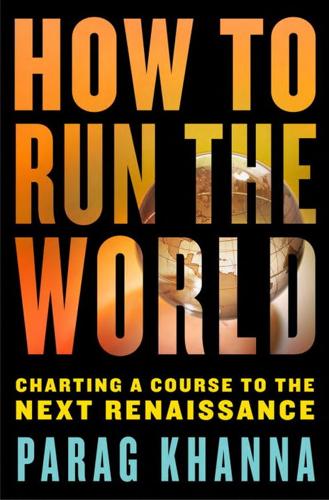
How to Run the World: Charting a Course to the Next Renaissance
by
Parag Khanna
Published 11 Jan 2011
Stateless Statesmen and Super-NGOs Flash Diplomacy: The World Economic Forum The Broker: The Clinton Global Initiative Chapter Three The (Fill-in-the-Blank) Consensus “Twenty HUBS and No HQ” Who Has the Money Makes the Rules Public and Private Part Two SAVING US FROM OURSELVES Chapter Four Peace Without War A World of Complexes Can an Oxymoron Stop a War? Making Borders Irrelevant Facts on the Ground: Africa Facts on the Ground: The Middle East Facts on the Ground: South-Central Asia Chapter Five The New Colonialism: Better Than the Last Colonialism New and Old The Responsibility to Be Responsible Finding the Peace to Keep Taking the Reins of “Chaos-istan” Chapter Six Terrorists, Pirates, Nukes Terrorism as War Terror on the High Seas Nuclear Terror Chapter Seven Getting Rights Right Democracy Über Alles?
…
If this “Iron Silk Road” of publicly and privately financed pipelines and rail lines across landlocked central Asia is completed in the coming decade, it will triple the region’s GDP while assuring that the region isn’t bypassed in favor of the maritime Silk Road linking the Persian Gulf to the Far East. The places that most need to start emulating the European model today are Europe’s former colonial spheres of Africa, the Middle East, and South Asia. Facts on the Ground: Africa We know to always be suspicious of straight lines on a map—and Africa is the continent left with more of them than any other. Many African states take their boundaries from the 1884 Congress of Berlin, which divided Africa among European powers along lines of latitude and longitude rather than by rivers or ethnic territories.
…
Furthermore, just about every sub-Saharan African border should be turned into a trans-boundary conservation park jointly managed by sustainable tourism agencies and tax authorities. Their collective motto should be “make safari, not war.” Africa will achieve a broad renaissance only if its many micro-economies fuse into just a few. Facts on the Ground: The Middle East The artificial confines of the state have always been uncomfortable for Arabs, who once presided over mighty caliphates that fostered prosperous relations among the great cities of Cairo, Baghdad, and others. The post-Ottoman Arab world has suffered particular cartographic trauma ever since the Sykes-Picot agreement of 1916, in which the British and French divided up Arabic-speaking nations.

The Other Israel: voices of refusal and dissent
by
Tom Śegev
,
Roane Carey
and
Jonathan Shainin
Published 15 Nov 2002
But military force is used effectively and with impunity to suppress resistance to the occupation and as a deterrent ("teaching the Palestinians a lesson," conveying a "message"). Although justified by security concerns, in the long term Israel prefers to control the Palestinians administratively—through the issuance of thousands of military orders and by "creating facts on the ground." Extensive use is made of collaborators and undercover mustarabi army units. The dependency that Israel's stifling administration engenders turns thousands of Palestinians into unwilling (and occasionally willing) collaborators. Simple things such as obtaining a driver's or business license, a work permit, a permit to build a house, a travel document or permission to receive hospital care in Israel or abroad is often conditioned on supplying information to the security services.
…
Mass arrests and administrative detention are also common features of the military side of the matrix of control. In the March and April 2002 raids on West Bank cities, towns, villages and refugee camps, about 3,000 people were detained, 280 of them held in administrative detention—which can last for months or years—without being either charged or tried. Creating Facts on the Ground Massive expropriation of Palestinian land is an ongoing phenomenon. Since 1967 Israel has expropriated for settlements, highways, bypass roads, military installations, nature preserves and infi-astructure some 24 percent of the West Bank, 89 percent of Arab East Jerusalem and 25 percent of Gaza.
…
While a number of Israeli highways were built in the occupied territories before the Oslo accords, construction of a massive system of twenty-nine highways and bypass roads, funded entirely by the United States (at a cost of $3 billion), was begun only at the start of the peace process. Designed to link settlements, to create barriers to Palestinian movement, and, in the end, to incorporate the West Bank into Israel proper, this project, which takes up an additional 17 percent of West Bank land, contributed materially to the creation of "facts on the ground" that prejudiced the negotiations. Another mechanism of division and control that came into being with the signing of the Oslo II agreement in 1995 was the further carving of the occupied territories into Areas A, B and C (in the West Bank),* H-1 and H-2 in Hebron, Yellow, Green, Blue and White in Gaza, Israeh-controlled "nature reserves," closed military areas, security zones, and "open green spaces" which restricted Palestinian construction in more than half of East Jerusalem.

It's Easier to Reach Heaven Than the End of the Street: A Jerusalem Memoir
by
Emma Williams
Published 7 Nov 2012
(In order to counter the continuing Palestinian national movement in the early 1980s, Ariel Sharon, then minister of defense, devised a system of civil administration and village leagues run by Palestinians with no PLO connection; seen as traitors by the Palestinian population, these failed.) Universities were frequently closed, and censorship, collective punishment, curfew, and widespread demolition of homes imposed. Meanwhile, Israeli “facts on the ground” were being laid down: Palestinian land confiscated, settlements built for incoming Israelis, and other measures put in place to link the Occupied Territories’ economic and administrative infrastructure to that of Israel. And in 1987 the Palestinians rose up to “shake off” the occupation that controlled their lives in what became known as the first Intifada.
…
And the Arabs do nothing either.”* There was a logic, they told me, behind the IDF decimating everything, even the Palestinian police, thereby creating a security vacuum in the Occupied Territories: it drew attention away from the ongoing building program, the creation of the Israeli government’s “facts on the ground.” The West Bank had long been a building site but now the pace had quickened. The diggers and bulldozers cut quickly into the loam and hills of the West Bank: ribbons of ocher soil across the Palestinian valleys expanding the settler road network and linking the planned industrial sites; swinging cranes and troops of trucks building settlements; loops of new-cut earth among the stripes of rocky land becoming the concrete drives and layouts of new suburbs.
…
The speaker was a Palestinian American who had been involved in negotiations and was disillusioned on many levels, not least with the role of the American government. (“My friend understood US ‘balance,’” he said, “when one senior White House official stated frankly during talks, ‘We don’t want to hear from the Palestinians.’”) And “ironically,” said the Palestinian American, these “facts on the ground” may physically prevent the two-state solution* from happening. “Ask why no one really tries to stop this happening beyond a little meaningless posturing by the West.” The West let it happen: Arafat just provided the excuse to let Israel continue. The small figure of Arafat lurked like a djinn in the background.

Gaza in Crisis: Reflections on Israel's War Against the Palestinians
by
Ilan Pappé
,
Noam Chomsky
and
Frank Barat
Published 9 Nov 2010
It started with a Michael Neumann article stating that “the one-state solution was an illusion” and was followed by articles by Assaf Kfoury entitled “‘One-State or Two-State?’ A Sterile Debate on False Alternatives” and Jonathan Cook entitled “One State or Two? Neither. The Issue Is Zionism.” What’s your opinion on this and do you think that in view of the “facts on the ground” (settlements, bypass roads) created by Israel a two-state solution is still possible? Pappé: The facts on the ground have rendered a two-state solution impossible a long time ago. The facts indicated that there was never and will never be Israeli consent to a Palestinian state apart from a stateless state within two bantustans in the West Bank and Gaza, totally under Israeli control.
…
And they have not been disappointed. It is not that Israel does not want peace: everyone wants peace, even Hitler. The question is: on what terms? From its origins, the Zionist movement has understood that to achieve its goals, the best strategy would be to delay political settlement, meanwhile slowly building facts on the ground. Even the occasional agreements, as in 1947, were regarded by the leadership as temporary steps toward further expansion.84 The 1982 Lebanon war was a dramatic example of the desperate fear of diplomacy. It was followed by Israeli support for Hamas so as to undermine the secular PLO and its irritating peace initiatives.
…
Mainstream media and politicians reject out of hand the one-state solution, but may be willing to accept that their historical narrative so far was distorted and wrong and that they should view the conflict as a process that began in 1948, even in 1882, and not in 1967. In other words what should be hammered in is that what the “desperadoes” call the facts on the ground that gradually made the desired two-state solution impossible were not an accident. They are the outcome of a strategy aiming at granting the State of Israel control over all of Mandatory Palestine. This strategy was and is the cornerstone of pragmatic Zionism and it divided the land into two territories: the one that Israel rules directly and in it wishes to implement what Shimon Peres coined “maximum territory and minimum Arabs.”8 And the other territory is the one that Israel controls indirectly of through proxies such as a collaborationist Palestinian Authority.

Ten Myths About Israel
by
Ilan Pappe
Published 1 May 2017
During the period of the talks—between 1996 and 1999—more settlements were built, and more collective punishments were inflicted on the Palestinians. Even if you believed in the two-states solution in 1999, a tour of either the West Bank or the Gaza Strip would have convinced you of the words of the Israeli scholar, Meron Benvenisti, who wrote that Israel had created irreversible facts on the ground: the two-states solution was killed by Israel.9 Since the Oslo process was not a genuine peace process, the Palestinians’ participation in it, and their reluctance to continue it, was not a sign of their alleged intransigence and violent political culture, but a natural response to a diplomatic charade that solidified and deepened Israeli control over the occupied territories.
…
The Strip was also divided between Palestinians and Jewish settlers, who took over most of the water resources and lived in gated communities cordoned off with barbered wire. Thus the end result of this supposed peace process was a deterioration in the quality of Palestinian lives. This was Arafat’s reality in the summer of 2000 when he arrived at Camp David. He was being asked to sign off as a final settlement the irreversible facts on the ground that had turned the idea of a two-states solution into an arrangement that at best would allow the Palestinians two small Bantustans and at worst would allow Israel to annex more territory. The agreement would also force him to give up any future Palestinian demands or propose a way of alleviating some of the daily hardships most Palestinians suffered from.
…
Bush’s more secular neocon advisers had been impressed by the war against Hamas, which accompanied Israel’s promises of eviction and peace. The seemingly successful Israeli operations— mostly the targeted assassinations in 2004—were a proof by proxy that America’s own “war against terror” was bound to triumph. In truth, Israel’s “success” was a cynical distortion of the facts on the ground. The relative decline in Palestinian guerrilla and terror activity was achieved by curfews and closures and by confining more than 2 million people in their homes without work or food for protracted periods of time. Even neoconservatives should have been able to grasp that this was not going to provide a long-term solution to the hostility and violence provoked by an occupying power, whether in Iraq or Palestine.

Enemies and Neighbours: Arabs and Jews in Palestine and Israel, 1917-2017
by
Ian Black
Published 2 Nov 2017
‘Such demonstrations of divergences of opinion between the Mufti’s clique and other Arabs are all to the good’, a Zionist official noted.50 GAINS ON THE GROUND In these turbulent times, the Zionists made more important gains. From March 1938, as the British moved to abandon partition and, as seemed likely, to impose new restrictions on the growth of the Jewish national home, there was a scramble to create new ‘facts on the ground’. Hanita, on a ridge overlooking the Lebanese border, was the most famous of the ‘stockade and watchtower’ (Homa ve’Migdal) type of settlement. The point was to build on land that had been purchased but not yet settled. If a roofed structure could be erected by nightfall, it would be considered legally permanent.
…
‘Because my aircraft got up a bit early on Monday morning and they struck the Egyptian airfields and they blew them to smithereens and now we can dictate to these people.’ Well, you can only do that for a short time. You can’t do it for ever.15 Military victory, it was to turn out, was indeed the easy part. FACTS ON THE GROUND By the end of the fighting the separate parts of Mandatory Palestine had been reunited; the Jordanians and Egyptians had gone, replaced by Israeli military governors. The conquest of Sinai and the Golan added to the feeling that ‘little’ Israel had acquired an empire. Emotions ran highest over East Jerusalem, with its Jewish, Muslim and Christian holy places, which had been inaccessible to Israelis since the fighting ended in 1948.
…
Within a few months the government had decided to establish – or re-establish – a Jewish neighbourhood in the city. This landmark episode combined official dithering, dubious legality, sympathetic nodding and winking and, above all, determination by an ideologically motivated minority to create irreversible facts on the ground. And subterfuge became official policy. In July 1970 Dayan and other officials discussed how land would be confiscated ostensibly for security purposes, and decided that buildings on it would be falsely presented as being for military use – and thus communicated to the mayor of Hebron.10 The pattern was to be repeated again and again in years to come.
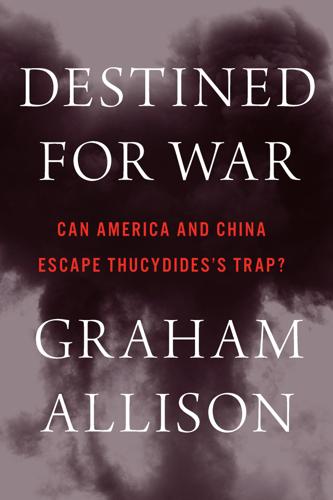
Destined for War: America, China, and Thucydides's Trap
by
Graham Allison
Published 29 May 2017
As sinologist François Jullien writes, if a master strategist’s action “is taken at the ideal moment, it is not even detectable: the process that leads to victory is determined so far in advance.”46 Or, like “setting a stone in motion on a steep slope,” says Sun Tzu, “the force applied is minute, but the results are enormous.”47 War for Chinese strategists is primarily psychological and political; military campaigns are a secondary concern. In Chinese thinking, an opponent’s perception of facts on the ground may be just as important as the facts themselves. Creating and sustaining the image of a civilization so superior that it is the “center of the universe,” for example, deters enemies from challenging Chinese dominance. The sheer size of the Chinese economy relative to those of outsiders also plays a role in subduing them—for instance, through access or denial to trade.
…
It is also safe to assume that the Chinese government will be ruthlessly realistic in assessing the military correlation of forces between China and the US, and thus in forecasting the outcome of any potential military encounter. Because it will take at least another decade or more for China’s military capabilities to match those of the US, even in arenas closest to China, Beijing will be cautious and prudent about any lethal use of force against the US. Instead, by gradually changing facts on the ground and in the waters throughout the South China Sea and adapting to resistance it encounters, as in the game of weiqi, the Chinese will win by the accumulation of overwhelming advantages. Furthermore, China will be “strategic” with Chinese characteristics, treating military force as a subordinate instrument in the orchestration of its foreign policy, which seeks not victory in battle but the achievement of national objectives.
…
But the Chinese held the plane for longer, allowing them an opportunity to extract its top-secret surveillance technology. Since that incident the PLA has been altering the landscape and balance of forces in its adjacent waters. By building islands, deploying missile batteries, and constructing airfields across the South China Sea, it is creating new facts on the ground to pose greater threats to US forces in these critical sea-lanes. Together, these four cases suggest that when considering when and how China may use military force, it is not sufficient to ask what we would do in its shoes. For Chinese leaders, military force is an instrument in an orchestra of engagement, one they may use preemptively to surprise a stronger opponent who would not have done likewise.
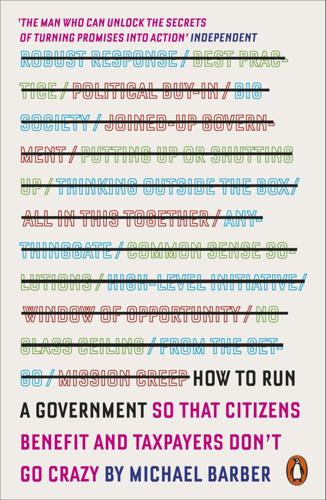
How to Run a Government: So That Citizens Benefit and Taxpayers Don't Go Crazy
by
Michael Barber
Published 12 Mar 2015
More importantly, a health academic who had become president of Dartmouth College was beginning to believe it too. During his tenure at Dartmouth, Jim Yong Kim took to carrying Deliverology 101 around with him – or so he told me when we met. Its rigour appealed to him as someone who in his work as an academic had tried to change the facts on the ground, rather than simply write about them. Along with Paul Farmer, he founded Partners in Health which, in places such as Haiti and Peru, had enormously beneficial effects for hundreds of thousands of people. In some ways, Jim Kim was an unlikely candidate to be president of the World Bank. In the book he co-edited, Dying for Growth, published in 2000, he and his colleagues had questioned the conventional wisdom of the World Bank and other global institutions.
…
Implementing a government programme may not involve quite the same drama (and certainly won’t involve the degree of force), but however good the plan, it won’t survive contact with reality. The planning should, though. It ensures the resilience and the foresight to persist. The key then is how those responsible know whether the facts on the ground are changing in the way that was anticipated and hoped for. More than anything else, that is about building routines into the way government works. This is the subject of the next chapter. 5 Routines One of my favourite walks is to climb England’s highest mountain, Scafell Pike, from Langdale.
…
There was not an adult in sight and no water ran from the pump. Soon enough the headteacher came running; he had been relaxing in his house nearby. Such a visit doesn’t tell you everything, but it is a reality check. Importantly, too, it affects your emotions. It redoubles your energy and commitment; the need to change the facts on the ground. The master of the unannounced visit was Theodore Roosevelt. His stellar career, which catapulted him to the presidency by the age of forty-two, saw him appointed police commissioner of New York City in his mid-thirties. Roosevelt was a larger-than-life character, destined to dominate any room he walked into.
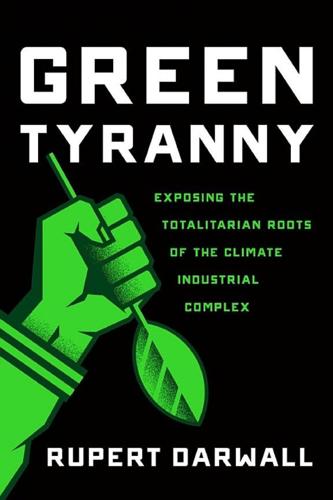
Green Tyranny: Exposing the Totalitarian Roots of the Climate Industrial Complex
by
Rupert Darwall
Published 2 Oct 2017
Its federal system—particularly the Senate—empowers minorities to block action, though Antholis forbore from reminding his audience that the Senate had unanimously given the Kyoto Protocol the thumbs down, instead blaming the Bush Administration for America’s “ugly” declaration of independence from Kyoto. American politics prioritize economic performance almost entirely to the exclusion of other policy priorities, he complained. To get around the Senate and enable the United States to be a credible participant at the Copenhagen climate summit, the plan was to create facts on the ground: first pass the Waxman-Markey cap-and-trade bill, then base the international negotiations on that law. In what Gärtner says was one the most compelling presentations of the conference, John Podesta put more flesh on the bones of this strategy.25 “I can say with great confidence that the new American president sees climate change as the challenge of our time,” he told them, emphasizing the point with the spurious claim that 300,000 deaths a year are already attributable to climate change.26 “Without a doubt, change has arrived,” as he castigated the Bush Administration for deliberately blocking progress on the climate change negotiations.† “The United States is ready, willing, and able to negotiate an aggressive climate treaty in Copenhagen,” he declared.
…
To operationalize the Clean Power Plan, the EPA overthrew the established interpretation to redefine “system” as embracing the whole grid. A wind or solar farm or a gas-fired power station can then set a performance standard a coal plant cannot meet. Despite its questionable legality, creating facts on the ground would, its supporters thought, make the Clean Power Plan irreversible. Joining the December 2015 Paris climate agreement, structured to avoid a two-thirds vote in the Senate, would create too many obstacles for a future president to repudiate. European leaders had long been signed up to global warming catastrophism.
…
Granting a stay to implementation of the plan, Donald Verrilli warned the Supreme Court justices, would harm the public’s interest in “preventing the risk of ‘catastrophic harm.’” Delaying the rule’s implementation, Verrilli continued, “would also disrupt the United States’ leadership on the international stage.”13 The EPA was also adept at creating new facts on the ground by operating at the outer limits of the law and beyond. The agency snubbed its nose at the Supreme Court after a June 2015 ruling against its MATS rule on reducing mercury emissions from coal-fired power stations. The rule had been issued over three years previously; “investments have been made and most plants are well on their way to compliance,” it bragged.14 In December 2015, the General Accountability Office found that the EPA had violated federal law by engaging in covert propaganda supporting its own proposed rules.
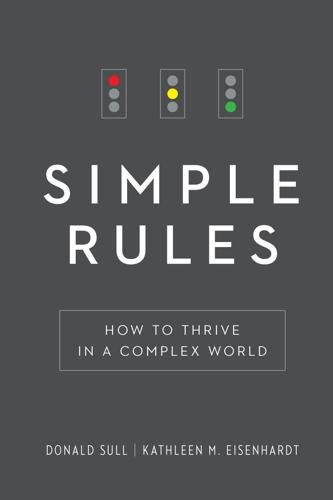
Simple Rules: How to Thrive in a Complex World
by
Donald Sull
and
Kathleen M. Eisenhardt
Published 20 Apr 2015
To foster battlefield coordination, Napoleon is reputed to have issued a standing order to “march toward the sound of gunfire,” a simple rule that enabled his officers to coordinate their activities without knowing exactly what was happening. Generals and soldiers could locally adapt to the facts on the ground, such as deteriorating weather, a gap in enemy defenses, or unexpectedly intense resistance, which were impossible to anticipate. But the rule also helped ensure that the fighting force would arrive where it was most needed and would have the most impact. In contrast, a detailed coordination plan would likely not work well because the units could not adapt to changing local circumstances.
…
At eToro, Yoni picked a few account managers responsible for cultivating Popular Investors to help develop the rules, while Martin asked Weima’s sales representatives to help develop the rules for screening customer requests. Having users make the rules confers several advantages. First, they are closest to the facts on the ground and best positioned to codify experience into usable rules. Because they will make decisions based on the rules, they can strike the right balance between guidance and discretion, avoiding rules that are overly vague or restrictive. Users can also phrase the rules in language that resonates for them, rather than relying on business jargon.
…
Complex rules, in contrast, attempt to anticipate every contingency and dictate what to do in each scenario, thereby reducing people to automatons who do what they are told. But human discretion is not a defect to be eliminated, it is our greatest hope in the battle against complexity. Close to the facts on the ground, individuals can draw on their judgment and creativity to manage risks and seize unexpected opportunities. The latitude to exercise discretion not only makes simple rules effective, it makes them attractive. People thrive when given the opportunity to apply their judgment and creativity to the situations they face from day to day.
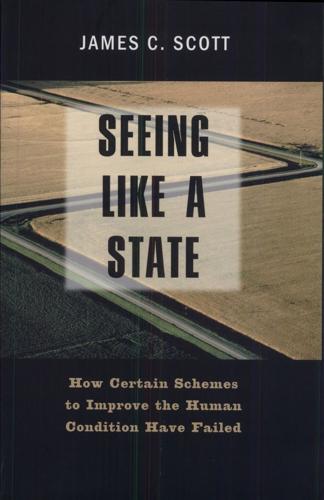
Seeing Like a State: How Certain Schemes to Improve the Human Condition Have Failed
by
James C. Scott
Published 8 Feb 1999
After the Revolution more than a century later, the radical Francois-Noel Babeuf, in his "Projet de cadastre perpetuel," dreamed of a perfectly egalitarian land reform in which everyone would get an equal parcel.95 He too was thwarted. We must keep in mind not only the capacity of state simplifications to transform the world but also the capacity of the society to modify, subvert, block, and even overturn the categories imposed upon it. Here it is useful to distinguish what might be called facts on paper from facts on the ground. As Sally Falk Moore and many others have emphasized, the land-office records may serve as the basis for taxation, but they may have little to do with the actual rights to the land. Paper owners may not be the effective owners.96 Russian peasants, as we saw, might register a "paper" consolidation while continuing to interstrip.
…
Land invasions, squatting, and poaching, if successful, represent the exercise of de facto property rights which are not represented on paper. Certain land taxes and tithes have been evaded or defied to the point where they have become dead letters.97 The gulf between land tenure facts on paper and facts on the ground is probably greatest at moments of social turmoil and revolt. But even in more tranquil times, there will always be a shadow land-tenure system lurking beside and beneath the official account in the land-records office. We must never assume that local practice conforms with state theory. All centralizing states recognized the value of a uniform, comprehensive cadastral map.
…
Once the job of the agricultural specialist is defined as one of raising all farmers' plots to the uniform condition that will realize the new cultivar's promise, there is no further need to attend to the great variety of conditions-some of which are unalterable-on actual farmers' fields. Rather than have the facts on the ground muddy a simple, unitary research issue, it was more convenient to try to impose a research abstraction on the fields (and lives) of farmers. Given the intractable ecological variety of the Andes, this was a nearly fatal step.101 Rarely have agricultural specialists asked themselves, as did the Russian S.
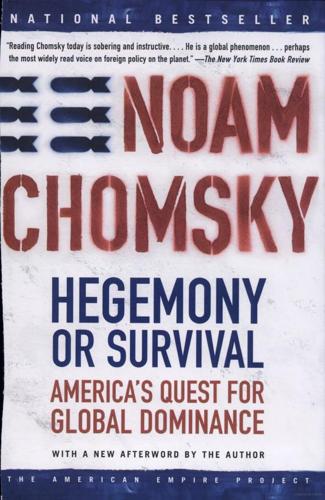
Hegemony or Survival: America's Quest for Global Dominance
by
Noam Chomsky
Published 1 Jan 2003
The plan is described by Israel’s leading newspaper as a “new theory, . . . according to which the US openly intervenes in forcing a neo-liberal order in Israel”—a theory that is welcome to the Israeli business sector but led immediately to a strike of 700,000 workers.35 Also quite specific are operations to create “facts on the ground” while talk proceeds, in the traditional manner. Notable among them is the construction of the “separation wall” that incorporates parts of the West Bank within Israel. The justification offered for the barrier is security: for Israelis, not Palestinians, whose security problems are far more grave.
…
She suggests further that “the wall’s design [may be] aimed at carving out and encircling the 42% (or less) of the West Bank that Sharon has said he is prepared to cede to a Palestinian state.” If so, Sharon may have in mind something like the plan he proposed in 1992, now recognizing that the political spectrum has shifted so far toward the extremist-nationalist pole that what seemed audacious then may be portrayed as a dramatic concession today.37 “The facts on the ground,” Israeli journalist Amira Hass comments, “are determining—and will continue to determine—the area where the road map will be applied, the area where the entity known as the ‘Palestinian state’ will be established”: A visit to the [places] where the Public Works Commission, the Defense Ministry, Housing Ministry and the IDF bulldozers are busy at work, makes it possible to see why it’s easy for Prime Minister Ariel Sharon to talk about a “Palestinian state.” . . .
…
The northern enclave, from Jenin to Nablus, will be cut off from the center by the massive settlement bloc of Ariel-Eli-Shiloh.38 As for the “settlement freeze,” when Sharon persuaded his extremist cabinet to accept the road map he explained that “there is no restriction here, and you can build for your children and grandchildren, and I hope for your great-grandchildren as well.”39 At the rhetorical level, the road map appears to offer more to the Palestinians than the Oslo process: it uses such terms as “Palestinian state,” “end to the occupation,” “freeze on all settlement activity,” etc., all phrases missing from the Oslo protocols. But the appearance is deceptive. Apart from extremist elements, Israel and its sponsor have no intention of taking over territories beyond useful and desirable limits or of having Israel administer the bulk of the Palestinian population. Construction of “facts on the ground” has proceeded sufficiently to allow the free use of terms that might previously have impeded plans that have been implemented for the past decade and are now being established more firmly. Apart from the rhetoric about “visions,” there is a more significant source of information: actions.
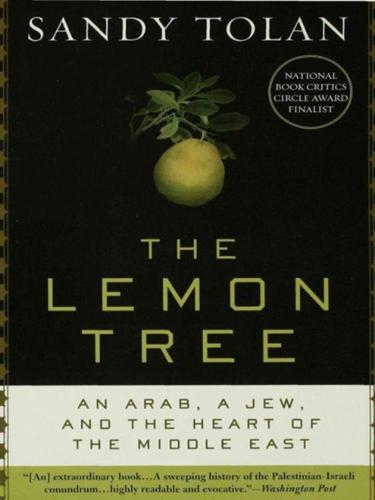
Lemon Tree: An Arab, a Jew, and the Heart of the Middle East
by
Sandy Tolan
Published 1 Jan 2006
These battered refugees-turned-soldiers were highly motivated to defend their new homeland and joined an organized infrastructure that had been decades in the making. The Haganah would soon develop detailed battle plans, including the control of Jewish areas beyond the UN partition line, in an area designated as part of an Arab state. The future shape of Palestine, it was increasingly clear, would be determined by the facts on the ground, not by what the United Nations had put on paper. "The boundaries of the state," Ben-Gurion wrote, "will not be determined by a U.N. resolution, but by the force of arms." In early 1948, a series of bombs planted by Arab and Jewish militias killed scores of people in Jerusalem—at the Semiramis Hotel, at the Palestine Post, and on Ben Yehuda Street in West Jerusalem.
…
Demonstrations against Sadat and Camp David erupted across the occupied territories. In the coming years, the Begin government would refuse to withdraw from the West Bank and instead intensified Israel's construction of settlements in the territories. Led by Ariel Sharon and the religious parties, the ruling coalition of Begin's Likud government rushed to create new "facts on the ground," laying claim to Eretz Yisrael in the West Bank and Gaza. Palestinians were required to present proof of ownership or make way for bulldozers, barbed-wire fences, and Israeli settlers. Palestinians thus came to see their deepest fears realized: They were still stateless, the occupation was becoming more entrenched, and now they would need to go forward without Egypt, their most powerful ally in their decades-long liberation struggle.
…
Already the Israeli government had announced plans for thousands of new housing units in East Jerusalem, which the Palestinians envisioned as their capital, and Israeli construction crews were building new "bypass" roads to better facilitate the travel of settlers from the West Bank to Israel. These plans were being undertaken within the Oslo framework, and many Palestinians worried that the new facts on the ground would permanently alter their chances for a viable, sovereign state. These fears were made more acute with the sudden surge in political violence and assassination, which had begun less than six months after the famous handshake on the White House lawn. On February 25, 1994, a medical doctor and American settler named Baruch Goldstein walked into the Cave of the Patriarchs, part of the Ibrahimi Mosque in Hebron, where Bashir had received his aqiqa ceremony in 1943.

On Palestine
by
Noam Chomsky
,
Ilan Pappé
and
Frank Barat
Published 18 Mar 2015
The Israeli government understands that without this “peace process” Israel would become a pariah state and would be exposed to international boycott and even sanctions. As long as the process is alive, Israel can continue to expand its settlement project in the West Bank and the dispossession of the Palestinians there (including in the Greater Jerusalem area) and establish facts on the ground that would render any future settlement unfeasible and impossible. Because of the dishonest brokering of the United States and Europe’s impotence in international affairs, Israel continues to enjoy immunity in this process. The Palestinian leadership is divided on the question of how desirable the continuation of the process is.
…
He explained that there would be no security problem if Israel were to accept the international call to withdraw from the territories it conquered in 1967, but the country would not then be able to “exist according to the scale, spirit, and quality she now embodies.” For a century, the Zionist colonization of Palestine has proceeded primarily on the pragmatic principle of the quiet establishment of facts on the ground, which the world was to ultimately come to accept. It has been a highly successful policy. There is every reason to expect it to persist as long as the United States provides the necessary military, economic, diplomatic, and ideological support. For those concerned with the rights of the brutalized Palestinians, there can be no higher priority than working to change US policies, not an idle dream by any means.

Demystifying Smart Cities
by
Anders Lisdorf
The architect sometimes lives in a completely idealized world, and he is tasked with implementing these ideals. However, often this fails precisely because the ideals rarely conform to the reality. The architect fails to appreciate what in military parlance is sometimes referred to as “the facts on the ground.” He is too often the desktop general, an idealist. There are some symptoms of an idealist realm that can be spotted in an organization:“There is a guideline for that.” Templates for any occasion. “We have it documented in our Enterprise Architecture tool, any other questions?” More than 3% of the IT organization are architects.
…
More than 3% of the IT organization are architects. CMMI level 5 is viewed as the minimum requirement for doing any kind of serious work. Now consider the architect’s counterparts: project managers, developers, or system administrators who just want to get the job done in a predictable way or any way really. These guys live “the facts on the ground.” They know all the peculiarities of the environment or system being worked on. They are pragmatists. The symptoms of a pragmatist realm are the following:“If something breaks, we fix it so we can get back to our coffee break.” Upgrade what is already in place when it has run out of support (urgency promotes action).

I Shall Not Hate
by
Izzeldin Abuelaish
Published 15 Jan 2010
Hundreds of correspondents from the international community—BBC, CNN, CBC, Fox News, Sky News—were stuck on a muddy hill outside Ashqelon, the town closest to the Erez Crossing, because the Israeli military refused to allow them access to Gaza. Israeli reporters were refused entry to Gaza as well. Their cameras could capture the plumes of smoke from the exploding bombs, but there were no eyewitnesses from the media to report the facts on the ground. So the Israeli media started calling me on my cellphone since I speak Hebrew fluently and was living in the middle of the catastrophe that their soldiers had created in Gaza. Shlomi Eldar, my friend from Israeli TV’s Channel 10, regularly called me in the late afternoon to ask what had happened that day.
…
Judge Goldstone called for a public inquiry on both sides, but his pleas fell on deaf ears. The Israeli government described the report as full of “propaganda and bias” and Hamas said it was “political, imbalanced and dishonest.” That’s how things happen in the Middle East—the size of the rhetoric trumps the facts on the ground. In my experience, the vast majority of Israelis and Palestinians were horrified by the terrifying events of the three-week war. The reaction of ordinary people strengthens my case about our need to talk to each other, to listen, to act. And it reinforces my lifelong belief that out of bad comes something good.

Radical Technologies: The Design of Everyday Life
by
Adam Greenfield
Published 29 May 2017
Their argument, broadly, is that going forward, there simply won’t be enough meaningful work to furnish a global labor force of five billion or more with employment capable of sustaining them—and that it is in any event perverse to defend jobs we know full well to be bullshit.48 Instead of squandering energies in the sentimental defense of a proletarian way of life that no longer corresponds to any set of facts on the ground, they propose that there is a far more valuable effort progressive forces could dedicate themselves to at this moment in history: the struggle for a universal basic income, or UBI. As the name suggests, most UBI plans—and the variants are many—propose that the state furnish all of its citizens with some kind of sustaining stipend, regardless of means tests or other qualifications.
…
Furthermore, this sort of accountability is ill-suited to the time scale in which algorithmic decisions take place—which is to say, in real time. Explanation and redress are by definition reactive and ex post facto. The ordinary operation of a sorting algorithm will generally create a new set of facts on the ground,72 setting new chains of cause and effect in motion; these will reshape the world, in ways that are difficult if not impossible to reverse, long before anyone is able to secure an explanation. It’s evident that the authors of this well-intended regulation either haven’t quite understood how algorithms achieve their effects, or have failed to come up with language that might meaningfully constrain how they operate.
…
They suffer high average commute times, astronomical pedestrian fatality rates, and massive percapita spending on the private automobiles that, given today’s inadequate public transit system, even the very poorest need to get by.” And this will remain true for all the time between the present and any appearance of an automated mobility system capable of serving their needs. Again, by being politically useful, the mere perception that automation is imminent has produced a new set of facts on the ground. Here the imaginary folds back against the actual, constraining the choices we have in the here and now, forcing us to redesign our lives around something that may never come into being. The lesson for all of us is clear: beliefs about the shape of the future can be invoked, leveraged, even weaponized, to drive change in the present.

The Berlin Wall: A World Divided, 1961-1989
by
Frederick Taylor
Published 26 May 2008
It was at this time that Ulbricht uttered to Leonhard the famous sentence that perfectly summed up Communist strategy in newly occupied Berlin: ‘It has to look democratic, but we have to hold everything in our hands’.12 The Ulbricht group’s agenda in Berlin was urgent. Within a little less than eight weeks, the three Western allies would enter ‘their’ sectors of the city. Meanwhile, the Communists’ task was to establish as many ‘facts on the ground’ as possible. The division of Berlin between the three wartime allies—Britain, the ‘IT MUST LOOK DEMOCRATIC, BUT WE MUST HAVE USA and the Soviet Union—had been agreed by the inter-Allied European Advisory Commission (EAC). This was set up in January 1944 in London. Its task was to draw up plans for the temporary administration of the defeated country, pending its political rehabilitation and the establishment of a German government.
…
The British had part-occupied Mecklenburg on the Baltic coast. Western forces had taken a third of the territory due to be Soviet-controlled. The question was, would America and Britain withdraw from those places before the Soviets allowed them to take over the proposed Western sectors of Berlin? Churchill was aware of the importance of ‘facts on the ground’. He had wanted to march on to Berlin during the final weeks of the war. He warned Washington of the ‘Iron Curtain’ that a Soviet presence in the heart of Europe would create. The British Prime Minister was in favour of retaining all conquered territories until ‘we are satisfied about Poland and also about the temporary nature of the Russian occupation of Germany’. 38 / THE BERLIN WALL Churchill was overruled by the new US President, Harry S.
…
Instead, Khrushchev suggested, ‘we will work out with you a tactic of gradually crowding out the Western powers from West Berlin, but without war’.21 Ulbricht was to behave like a good, obedient satellite leader. Not for the first time, Khrushchev’s hopes proved illusory. Ulbricht was a master of pinprick politics, of creating facts on the ground by changes so small that only the keenest observer could realise his ultimate aim. He kept to the letter but not to the spirit of his agreement with Khrushchev. Throughout the winter of 1960-1, the East Germans continued to harass border-crossers and German trans-sector visitors. There were temporary closures of crossing points, spot checks, swoops on public WAG THE DOG / 123 transport at the sector borders at which East Berliners who worked in West Berlin were turned back, and threatened with future punishment if they persisted.
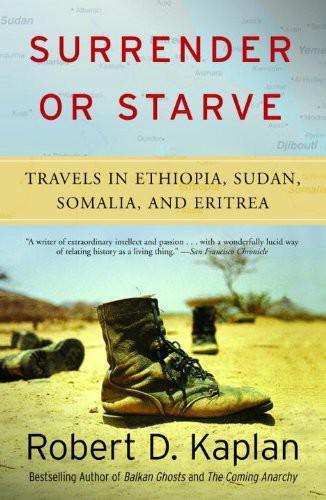
Surrender or Starve: Travels in Ethiopia, Sudan, Somalia, and Eritrea
by
Robert D. Kaplan
Published 1 Jan 1988
The looks of burning hatred registered by some of the older children would have made President Reagan's eyes water, had he been able to visit this desert hovel. In a continent infected with a double standard on nonalignment, it seemed that these people were drawing the proper distinctions. One would have to search far and wide for another issue on which official Washington appears as unknowing of the facts on the ground as in the case of Eritrea. Ironically, this ignorance continues despite the recent media attention lavished on the Horn of Africa, at a time when undermining Soviet client states in the Third World is particularly in vogue. But it is easily explained. No U.S. government official has visited the EPLF base area because the United States still recognizes Ethiopian sovereignty there, and so few correspondents of major U.S. media have made the trip that the amount of secondhand information available to people in Washington is incredibly sparse.
…
However, even if we should all wake up one morning to hear that Gaddafi has been overthrown, his bold moves to take advantage of a vacuum of power in Sudan in the mid 1980s should cure those in the West of the delusion that humanitarian means are sufficient to achieve humanitarian ends in Africa. USAID officials have pointed out to me that the equation I make is an unfair one. Humanitarian assistance, they say, by its very definition is designed to have a humanitarian impact, not a political one. The real-life facts on the ground prove, however, that such logic is a cop-out because, first, it lets Third World leaders morally off the hook. If leaders like those in Khartoum and Addis Ababa placed as much priority on the well-being of their peasants as the United States does, there would be no question about granting a political payoff commensurate with the amount of U.S. famine aid.

What Doctors Feel: How Emotions Affect the Practice of Medicine
by
Danielle Ofri
Published 3 Jun 2013
Her resilient body was fighting back, as was her spirit. She talked about esperanza—hope—and I could feel myself being pulled into that optimistic orbit, despite my intellectual knowledge that this was foolhardy. We hugged tightly that day, and it felt so good to allow her buoyancy to peel me away from the facts on the ground. Maybe everything would be okay. I’d just witnessed Julia beat death at its own game, after all. Maybe she was that rare biological exception to the rule, the exception that confounded the rules. Why not? When she left my office, I was convinced that somehow it would all work out. I couldn’t say how, but I was sure that it would.
…
All these years of her good health had allowed the denial to nest within me, to the point that I had convinced myself that she would never die. I knew that her heart was doomed, but every month or two she’d appear in my clinic for an appointment, looking basically the same as at the previous visit. Year in and year out. Facts on the ground, you might call it. It was like I’d had a long-term relationship with the healthy, robust Julia, the one who wasn’t going to die, and like any creature of habit, I wasn’t prepared for when the relationship changed. But as the months wore on, I could no longer delude myself. That healthy Julia was fading before my eyes, aging and weakening in real time.
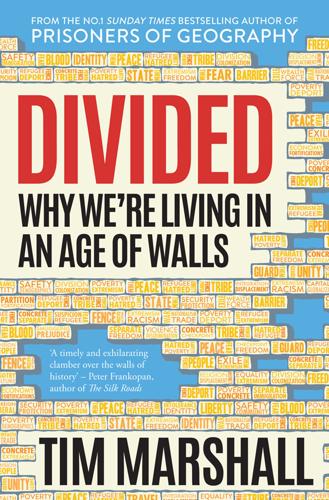
Divided: Why We're Living in an Age of Walls
by
Tim Marshall
Published 8 Mar 2018
After some years of fragile peace, during which Israel continued to occupy Gaza, the decades-long land dispute exploded in sustained violence again in 2000, and it was at the outbreak of this Second Intifada that the wall started to go up. The Palestinian view is that the barrier is an excuse for a land grab and to put ‘facts on the ground’, carving out the contours of a possible two-state solution but on Israeli terms, which would result in Palestine losing at least 10 per cent of the West Bank land, as the wall’s current position lies well inside Palestinian territory. Israel cites topographical reasons for the path of the wall, but in certain areas it strays east of the Green Line, around Jewish settlements.
…
They move the Wall hundreds of yards into Palestinian land so that later they can say we must negotiate for it even though it was ours all along.’ As we drive alongside the wall he gestures angrily towards Palestinian areas, which were once populated by olive trees, now uprooted to create a no man’s land which he fears will one day be Israeli territory. ‘They have always done this,’ he says. ‘Create what they call facts on the ground, but it’s their facts, and it’s our ground.’ The Israelis, on the other hand, have a very different view of the wall: even the graffiti and artwork on their side of the barrier tells a different story. Some is anti-Palestinian and makes the case for the necessity of the wall; some is pro-Palestinian and depicts their suffering; but a lot consists simply of images of landscapes designed to make the wall ‘invisible’ – and indeed that is what it is to the majority of the Israeli population.
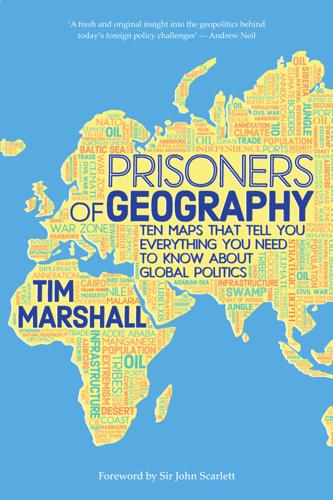
Prisoners of Geography: Ten Maps That Explain Everything About the World (Politics of Place)
by
Tim Marshall
Published 10 Oct 2016
They see it not through the prism of human rights, but that of geopolitical security, and can only believe that the Westerners are trying to undermine their security. However, Chinese security has not been undermined and it will not be, even if there are further uprisings against the Han. Demographics and geopolitics oppose Tibetan independence. The Chinese are building “facts on the ground” on the “roof of the world.” In the 1950s, the Chinese Communist People’s Liberation Army began building roads into Tibet, and since then they have helped to bring the modern world to the ancient kingdom; but the roads, and now railways, also bring the Han. It was long said to be impossible to build a railway through the permafrost, the mountains, and the valleys of Tibet.
…
Most countries and international organizations recognize the islands as being under (limited) Norwegian sovereignty, but the biggest island, Svalbard, formerly known as Spitsbergen, has a growing population of Russian migrants who have assembled around the coal-mining industry there. The mines are not profitable, but the Russian community serves as a useful tool in furthering Moscow’s claims on all of the Svalbard Islands. At a time of Russia’s choosing it can raise tensions and justify its actions using geological claims and the “facts on the ground” of the Russian population. Norway, a NATO state, knows what is coming and has made the High North its foreign policy priority. Its air force regularly intercepts Russian fighter jets approaching its borders; the heightened tensions have caused it to move its center of military operations from the south of the country to the north, and it is building an Arctic battalion.
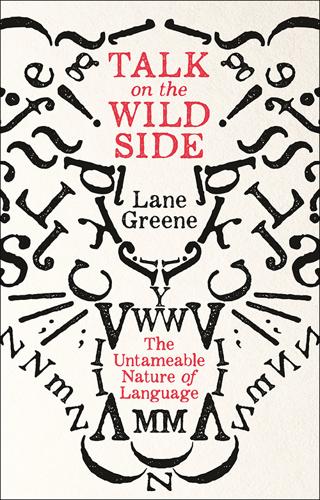
Talk on the Wild Side
by
Lane Greene
Published 15 Dec 2018
Most unusually among the big Anglophone countries, New Zealand gives two languages official status: Maori and New Zealand Sign Language, but not English. Needless to say, English dominates public life in all of these countries, regardless of whether it’s in the constitution or not. No declaration can change the facts on the ground. Witness Ireland, where the “national” and “first official” language, Irish, is spoken natively only by a small minority of the population, and learned only grudgingly by much of the English-speaking majority. Or witness South Africa, where all 11 languages are in theory equal, but where one – English – easily dominates the rest on the official level, despite being spoken by just under 10% of the population at home.
…
(Given the dozens of Canadian comedians and comic actors who’ve made it in America, with about a ninth of America’s population, it’s quite possible that the boringness-per-capita ratio is higher south of the border.) But Canada’s language policy, in any case, is anything but boring: it has fascinated students of the subject, for its vast transformation of the linguistic facts on the ground. That transformation has been peaceful, but it continues to irritate many Canadians – of both big languages – on a daily basis. France lost the French and Indian war – known as the Seven Years’ War in Europe – and as a result, New France became the English dominion of Canada. Canada went on to sprawl across the continent, adding new provinces and becoming a confederation in 1867.
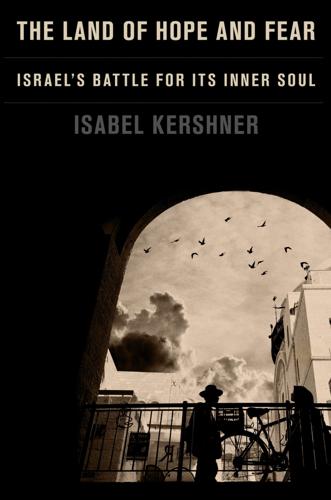
The Land of Hope and Fear: Israel's Battle for Its Inner Soul
by
Isabel Kershner
Published 16 May 2023
The Allon plan did not lead to any negotiated arrangement and the subsequent shock of the 1973 war spurred into action the messianic zealots of Gush Emunim, the Bloc of the Faithful, a fervently ideological Jewish settlement group. They viewed the triumph of 1967 as a sign of redemption and the settlement of the newly won territories as a sacred mission. Adopting the dunam-by-dunam, goat-by-goat approach of the old Mapai state-builders, they forced the government’s hand by placing facts on the ground. Determined to push into the heavily Arab-populated biblical heartland of the West Bank, they called the territory by its biblical names, Judea and Samaria. One early deception was carried out by the group of radical settlers who had moved into a hotel in the southern West Bank city of Hebron for Passover and refused to leave.
…
In his view, the Trump map was just a covert way of evacuating or deporting the settlers in isolated settlements without paying them compensation. For the settlers, the main battle in recent years was for full control of Area C, the 60 percent of the West Bank under exclusive Israeli authority. They were livid that the Palestinians had adopted the settlers’ tactic of establishing facts on the ground, and Damri sent me out with an aide for a tour of the area. Looking out from Mitzpe Yair, an illegal outpost on a wild and thorny ridge in the South Hebron hills named for another settler who was killed in the area, the aide pointed to a string of what he called Palestinian “outposts” that he said had sprung up over the past decade on the empty slopes down below.
…
The outpost settlers had adopted the Arabic concept of sumud, or steadfastness and sticking to the land, the West Bank Palestinians’ fundamental tool of resistance. The settlers and the supporters of the illegal outposts, or “young settlement,” continued to lobby the government and establish their presence, as they put it, by “creating more facts on the ground.” When the last, chaotic months of Netanyahu’s fifth term finally gave way to the diverse coalition led by Naftali Bennett in the spring of 2021, the former government left a poisoned gift in the form of a new outpost, Evyatar, which had sprung up in record time near the Ariel Junction in the central West Bank while the army and the rest of Israel were distracted by an abrupt but deadly eleven-day-long air war with Gaza.

Israel: A Concise History of a Nation Reborn
by
Daniel Gordis
Published 17 Oct 2016
India would achieve independence in 1947, and in the Middle East, the cost of maintaining the Mandate had simply climbed too high. Some one hundred thousand British soldiers (one-tenth of the empire’s entire army) were stationed in Palestine, one soldier for every eighteen inhabitants.12 In the meantime, the leadership of the Yishuv sought to establish as many facts on the ground as it could to expand whatever future borders the Jewish state would have. On October 6, 1946 (immediately upon the conclusion of the Yom Kippur fast), the Jewish Agency worked feverishly to establish—over the course of a single night—eleven new settlements in the northern Negev. They were built in an area that had not been included in the territory allocated to the Jewish state by the Peel Commission, and which, presumably, might not otherwise be included in future partition plans.
…
Eventually, after numerous requests, the (left-wing government) acquiesced and approved what the settlers had already started. The issue of settlements in the newly occupied territory was perhaps the most divisive political question of the time, and largely in hopes of dodging it, Labor governments waffled. That indecisiveness allowed the settlers to create their facts on the ground. Begin, in contrast, was committed to continuing that policy, as a matter of principle and not only political expediency. In May 1977, two days after the elections, Begin and Ariel Sharon visited the temporary Elon Moreh site. “Soon,” Begin said, “there will be many more Elon Morehs.”20 When reporters following the prime minister-elect asked whether Begin’s firm commitment to the settlements implied a future annexation of the West Bank, they got a tongue-lashing in return: We don’t use the word “annexation.”
…
They believe that the occupation is proving Yeshayahu Leibowitz correct. They fear that occupying another people has forced Israelis to be something they did not want to be, and yet for many, it is not clear at present what the alternative is. Polls show that most Israelis would like to end the occupation; polls also show that given the facts on the ground, most Israelis are not willing to take the security risks that relinquishing that land in the present circumstances would likely mean. The occupation in all its manifestations remains one of the most pained dimensions of contemporary Israeli life. Yet many other facets of the Zionist dream have more than exceeded the Jewish people’s wildest hopes.
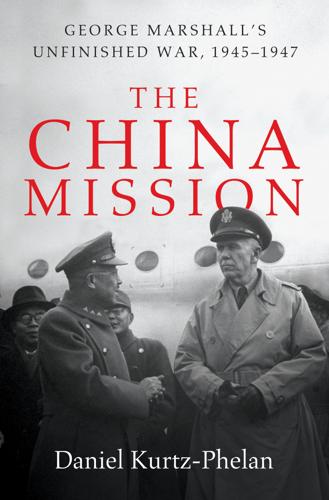
The China Mission: George Marshall's Unfinished War, 1945-1947
by
Daniel Kurtz-Phelan
Published 9 Apr 2018
The next day, Byroade was in room 308 of a Beijing hotel launching a new body called the Executive Headquarters. What the Committee of Three had managed in the living room of Happiness Gardens, three-man Executive Headquarters “truce teams” would attempt in disputed territory across China. It was Marshall’s way of turning principles on paper into facts on the ground. There was a three-day lag between the signing of the order and the start of the truce. Although Marshall worried that both sides would use any delay to maneuver for final advantage, Zhou and Chang jointly overruled his objection, on the grounds that they needed time to get the news to commanders.
…
American intelligence had concluded by the beginning of May: “Due to their initially favorable strategic position the Communists gained an early political and military advantage in the race for control of Manchuria.” The Communists knew it. After months of restraint—staying away from large cities, focusing on political work, establishing “facts on the ground” without being too conspicuous—they were, reporters said, “cocky.” Some 300,000 of their troops had made their way in, picking up conveniently abandoned Japanese arms and demonstrating “high morale and fairly capable leadership,” according to American officers. Mao had sent a proven commander, Lin Biao, an insomniac and hypochondriac who was anxious in his personal habits but calm and tenacious in battle.
…
Marshall’s, 193. 174 wrote the university’s president GCM to Conant, 20 April 1946, GCM Papers 122/25, GCMRL. 174 “I’ve exhausted” Papers Vol. 5, 534; “difficult man” FRUS 1946 Vol. 9, 804. 175 “watch a city die” JM to Hellman, 2 February 1946, JM Papers 36, HSTL. 175 “Minor civil war” Gillem to GCM, JHC Papers 1/7, GCMRL. 175 his party’s survival Tanner, Where Chiang, 29; “expansion of Soviet power” May, Truman, 66–67. 175–176 “completely unprepared for occupation” FRUS 1945 Vol. 7, 628; Kremlin would respond Levine, “New Look,” 354; Moscow had long warned Heinzig, Soviet Union, 67; Wedemeyer AW Memorandum for CKS, 10 November 1945, AW Papers 81/2, Hoover. 176 would likely win Tanner, Battle, 60; prudent move CKS diary, 20 April 1946 and 23 April 1946, Hoover; “a unified country” Spector, In the Ruins, 225; “no choice” Life 24 December 1945. 176 “waste paper” FRUS 1946 Vol. 9, 720; Marshall pointed out Final Report, 104. 176–177 Soviets threatened Heinzig, Soviet Union, 93; American dominance Yang, “Soviet Union,” 26; “fight without restraint” Westad, Brothers, 60; Communist commanders Sheng, Battling, 132; boats and trains Tanner, Battle, 109. 177 OSS detachments Yu, OSS, 24; Strategic Services Unit Revised plan for SSU operations, 20 April 1946, AW Papers 91/2, Hoover; “lookouts” FRUS 1946 Vol. 10, 1134; persuasive evidence Papers Vol. 5, 421; Byroade assessed FRUS 1946 Vol. 9, 727; Marshall had pressed Papers Vol. 5, 500; “Russian game” JM to Hellman, 9 March 1946, JM Papers 36, HSTL. 177 “Due to their” Military intelligence review, 25 April 1946, Naval Aide Files 17/3, HST Papers, HSTL; “facts on the ground” Tanner, Battle, 100; “cocky” Papers Vol. 5, 526; 300,000, “high morale” Lau to Byroade, “Situation in Manchuria,” 17 April 1946, Alvan Gillem Papers, MHI; Lin Biao Tanner, Where, 33; “Everything is decided” Westad, Cold War, 160. 178 they were sure Qing, From Allies, 81; “Chiang has no choice” Tanner, Battle, 111. 178 sadistic methods Iris Chang, The Rape of Nanking, 6.
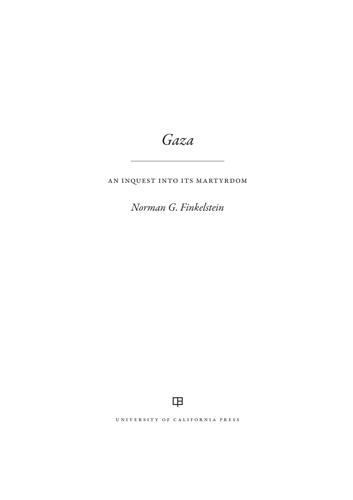
Gaza: An Inquest Into Its Martyrdom
by
Norman Finkelstein
Published 9 Jan 2018
He brandished Israeli press releases as well as “Israeli Ministry of Defense claims” affirming it, and even cited no lesser a personage than Defense Minister Ehud Barak: “We are well aware of the humanitarian concerns; we are doing and will continue to do everything possible to provide all humanitarian needs to the residents of Gaza.”45 The facts on the ground looked rather different, however. “UN agencies and humanitarian NGOs continued to carry out operations despite extreme insecurity,” the United Nations Office for the Coordination of Humanitarian Affairs (OCHA) observed. “In the course of the three weeks of hostilities, five UNRWA [United Nations Relief and Works Agency] staff and three of its contractors were killed while on duty, and another 11 staff and four contractors were injured; four incidents of aid convoys being shot at have been reported; at least 53 United Nations buildings sustained damage.”46 Foreign Minister Tzipi Livni audaciously declared in the midst of Cast Lead that “no humanitarian crisis” existed in Gaza.
…
Hamas War CrimesThe UN Report set the stage for its indictment of Hamas by citing directly or indirectly official Israeli sources depicting a formidable Hamas weapons arsenal.37 But the battlefield performance of these weapons strongly suggested that the bulk of them consisted of little more than enhanced fireworks.38 The Report also dutifully regurgitated Israeli claims regarding the dazzling performance of the Iron Dome antimissile defense system,39 even though recognized experts and the facts on the ground refuted them.40 In an unusual acknowledgment, the Report did observe that according to “security experts,” Hamas’s “declared official policy” during Protective Edge was “to focus on military or semi-military targets and to avoid other targets, especially civilians.”41 It went on to document instances in which Hamas appeared to be targeting Israeli combatants and military objects, while Israel itself acknowledged that Hamas mortar shells killed ten IDF combatants positioned on the Israeli side of the border.42 The Report also observed that Hamas attempted “in a few instances” to warn Israeli civilians of impending attacks and, in fact, these Hamas alerts were more effective than those issued by Israel “because—unlike in Gaza—residents could flee to other areas of Israel less exposed to threats.”43 However, the Report found that the “vast majority” of Hamas projectiles targeted “population centers in Israel.”44 It devoted fully 15 paragraphs to depicting in graphic detail the effects of these Hamas attacks, even though only six civilians in Israel were killed and property damage was negligible.
…
Thus, states are under an obligation to refrain both from acts defeating the object and purpose of a rule and from any other acts preventing its implementation.”112 3.5.3.3.6.1. Israel’s ongoing settlement enterprise constitutes a case study of bad faith in negotiations, as these ever-multiplying “objective” facts on the ground are “defeating the object and purpose” of negotiations, which under treaties,113 norms,114 and principles115 of international law requires Israel’s withdrawal from the occupied Palestinian territory. “The Israeli Prime Minister [Benjamin Netanyahu] publicly supports a two-state solution, but his current coalition is the most right-wing in Israeli history, with an agenda driven by its most extreme elements,” US secretary of state John Kerry observed in his last major address on the Israel-Palestine conflict.

Extreme Rambling: Walking Israel's Separation Barrier. For Fun.
by
Mark Thomas
Published 13 Apr 2011
But no matter how isolated she looks, Nadia will probably set up her settlement at Beit Sahour, the place she calls Shdema. The army is escorting settlers in already and, once settled, the army will set up buffer zones and watchtowers to protect her religious squatters and future prime ministers. She is being allowed to create ‘facts on the ground’, because no one, in Israel at least, will stop her. chapter 21 ALL SMOKE AND NO MIRRORS ‘What’s that!’ ‘Hummer! …’ ‘… a Hummer?’ It’s two o’ clock in the morning and the house where we are staying, which was raided last night, is woken again. Phil and I are instantly alert to the loud banging and whirring noise. ‘… Get a torch …’ BANG!
…
It is no good saying, “We’re not like them,” if no one takes responsibility for them. The settlers are de facto government policy: they build and expand into the West Bank unless stopped. All the Israelis, the ones I didn’t meet, have failed to stop the settlers and take control of them. And until they do, Israel will allow the settlers to create facts on the ground.’ Nava and I have talked throughout the walk and although it was not her job to defend Israel’s actions, she does passionately want me to understand. ‘During the Second Intifada people were terrified,’ she says. ‘A bomb went off near where I live; it was in a coffee shop. When my girlfriends and I would go out, instead of saying “Which coffee shop shall we meet in?”
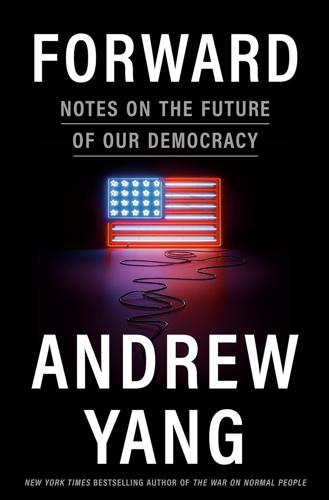
Forward: Notes on the Future of Our Democracy
by
Andrew Yang
Published 15 Nov 2021
Can this dynamic be changed? It’s an open question whether we can reinforce more disciplined communications that call out the reality of our situations without descending into happy talk. We must start distinguishing between compassionate and conformist statements, on the one hand, and actually improving the facts on the ground in a world where action and statement have become the same, in part because very few are capable of actually taking steps that would improve the reality on the ground. The previous sentence was constructively institutionalist. You see how it works. Or doesn’t. * * * — IN PART 3 we will survey a number of improvements that I believe would genuinely help change things for the better.
…
Michael Grunwald wrote in Politico in 2020, “There is a line of thinking that America has entered a kind of postmodern political era where the appearance of governing is just as politically powerful as actual governing, because most Americans now live in partisan spin bubbles that insulate them from facts on the ground.” Passing laws, solving problems, and measuring impacts don’t matter anymore. You can simply argue for your version of reality and aligned media outlets will trumpet and reinforce that narrative to your people. Value statements and virtue signaling have assumed the role of laws and policy for many in the day-to-day back-and-forth of cable news.

Can We Talk About Israel?: A Guide for the Curious, Confused, and Conflicted
by
Daniel Sokatch
Published 18 Oct 2021
Most of the West Bank settlements are not “Wild West” outposts or temporary tent cities, but villages with tidy red-tile-roofed homes, parks, schools, cafés, shopping centers, libraries, and synagogues. They pretty much look, feel, and operate just like any village or city in Israel proper—except they aren’t in Israel. They are in the occupied territories—Area C, to be exact.* And that’s the point. They were built, and intended, to be permanent communities—facts on the ground that will make it difficult, if not impossible, for Israel to withdraw from the whole of the West Bank in any peace treaty. And, of course, the West Bank is what the Palestinians want, and the international community expects, to be the bulk of an eventual Palestinian state. The majority of Israeli settlers live in large towns, or “blocs” of communities, built close to the border with Israel proper or in the post-1967 Jewish neighborhoods built in East Jerusalem.
…
And ironically, while the Oslo Accords are still ritually condemned by the Israeli right, they actually made Israel’s control over the West Bank much easier: First, they created the Palestinian Authority, which oversees many aspects of governance in Area A and some in Area B, including policing, thus serving as Israel’s security contractor, even as Israel retains ultimate control. Second, the Oslo Accords mitigated international pressure on Israel by serving to reassure the international community that, despite what the facts on the ground seemed to indicate, the status quo is only temporary and will one day lead to a two-state solution. And so, even the leaders of Israel’s right-wing governments knew better than to poke the hornet’s nest that is the West Bank with talk of annexation. After all, why buy the cow when you get the milk for free?

The Moon: A History for the Future
by
Oliver Morton
Published 1 May 2019
Jan Woerner, the director general of the European Space Agency, champions what he calls the “Moon village”, a vision of relatively small-scale settlement in which different public and private ventures co-operate, either on a shared site or in a more distributed way, in the development of a lasting human presence on the Moon. Common goals, common values, common technical standards: it is an appealing vision. It would surely be even more so in the presence of a clear, permissive legal structure. In the presence of such a structure, control of the facts on the ground would still matter—but it would do so all the more in the absence of such frameworks. That is an argument for landing early crewed missions, perhaps even the first crewed missions of the Return, at one of the most appealing polar sites and for building some sort of base there, rather than sitting in an orbital Gateway plopping down landers for short stays now and then.
…
The idea of mining ice and volatiles at the lunar poles is not unlike the idea of exploiting fossil fuels on Earth, running down in double-quick time a resource accumulated very slowly. If the resource is large enough (or the draw on it small enough) and it is more profitably exploited than equivalent resources elsewhere, this could come to matter—hence the importance of a governance regime and of establishing facts on the ground. It is worth noting that, when it comes to exploitation, there are advantages to the Moon’s unworldliness, or at least so it might seem. For all that it would destroy something literally irreplaceable, if not necessarily all that their hearts are beating, their reserves depleting valuable, eating through the fossil ice and volatiles at the poles would have far less impact on the Moon than the exploitation of fossil fuels has had on the Earth.
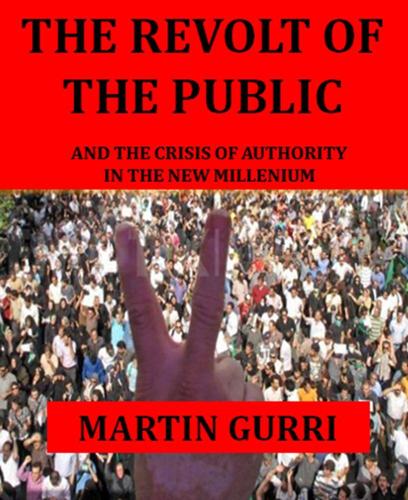
The Revolt of the Public and the Crisis of Authority in the New Millennium
by
Martin Gurri
Published 13 Nov 2018
The Green Movement was almost certainly not a Twitter revolution or reliant on social media, although it was certainly a digitally-assisted revolt: protesters used cell phone text and video to powerful effect. But the main lesson here was the violent repression of the Green Movement by regime militia. Scissors cut paper. While it was really impossible to say, as I did with Hoder’s incarceration, that nothing had changed, the political facts on the ground in Iran remained fundamentally the same: for the next four years, Ahmadinejad and his faction ruled. Matters turned out differently in Tunisia with the uprising of December 2010-January 2011. Less than three weeks after the first anti-regime protests, the country’s president of very long standing, Zine El Abidine Ben Ali, fled to Saudi Arabia.
…
“He has faced illness and even death in his 43 years, but defeat is something new to him, and Cuba was a clumsy and humiliating defeat, which makes it worse… How he reacts to it,” Reston concluded, “may very well be more important than how he got into it.”[157] In private, Kennedy despaired that the incident had cost him any chance at re-election. Publicly, he met with Republican worthies in a show of bipartisanship, and he delivered two statements on the Cuban situation: a nationally broadcast speech to the American Society of Newspaper Editors on April 20 and a televised press conference on the following day. More than the bloody facts on the ground in Cuba, those presidential statements shaped US public perception of the Bay of Pigs crisis. It makes for a fascinating analytic exercise to imagine how they would be received today. In his speech to the newspaper editors, the president denied what everyone knew to be true: that the invasion had been a US show from start to finish.
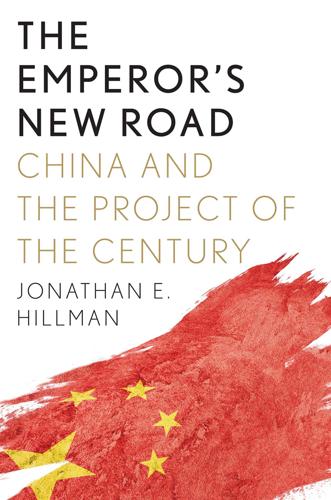
The Emperor's New Road: How China's New Silk Road Is Remaking the World
by
Jonathan Hillman
Published 28 Sep 2020
Its overland and maritime ambitions converge in South and Southeast Asia, where it faces fierce competition from regional powers. Australia, Japan, India, and the United States are all working to provide alternatives to Chinese investment. Still, China is often its own worst enemy. Where the facts on the ground have not suited its position, it has changed the ground, creating artificial islands in the South China Sea and militarizing them with runways and missiles. Most countries want China’s investment and trade but find its increasingly aggressive behavior alarming. China’s partners might be smaller, but they are no less savvy.
…
In 2010, during an annual ASEAN security forum, China’s foreign minister, Yang Jiechi, stormed out after Secretary of State Hillary Clinton challenged China’s claims. He returned with an aggressive message for the ASEAN countries: “China is a big country and other countries are small countries, and that’s just a fact.”7 China’s actions in the South China Sea have been even more alarming than its words. Where the facts on the ground have not suited its position, China has changed the ground. Between 2013 and 2017, Chinese dredgers added thirty-two hundred acres to land features in the Spratly Islands, nearly the equivalent of the Los Angeles International Airport.8 International condemnation has grown louder as China has outfitted artificial islands with runways and deployed antiship and antiaircraft missiles.
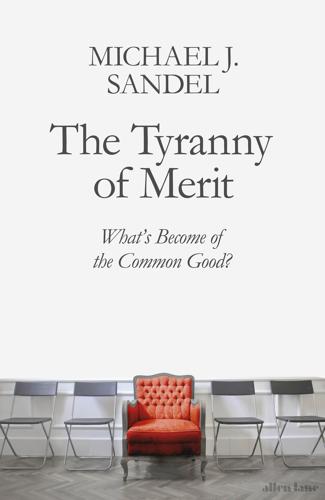
The Tyranny of Merit: What’s Become of the Common Good?
by
Michael J. Sandel
Published 9 Sep 2020
At Harvard and other Ivy League colleges, there are more students from families in the top 1 percent (income of more than $630,000 per year) than there are students from all the families in the bottom half of the income distribution combined. 8 The American faith that, with hard work and talent, anyone can rise no longer fits the facts on the ground. This may explain why the rhetoric of opportunity fails to inspire as it once did. Mobility can no longer compensate for inequality. Any serious response to the gap between rich and poor must reckon directly with inequalities of power and wealth, rather than rest content with the project of helping people scramble up a ladder whose rungs grow farther and farther apart.
…
But they share the assumption that the aim is to provide everyone, whatever his or her starting point in life, a chance to rise. They agree, in other words, that mobility is the answer to inequality—and that those who rise will have earned their success. But the American faith in the ability to rise through effort and grit no longer fits the facts on the ground. In the decades following World War II, Americans could expect that their children would do better, economically, than they had. Today, this is no longer the case. Of children born in the 1940s, almost all (90 percent) earned more than their parents. Of children born in the 1980s, only half surpassed their parents’ earnings. 36 It is also harder to climb from poverty to affluence than the popular belief in upward mobility would suggest.
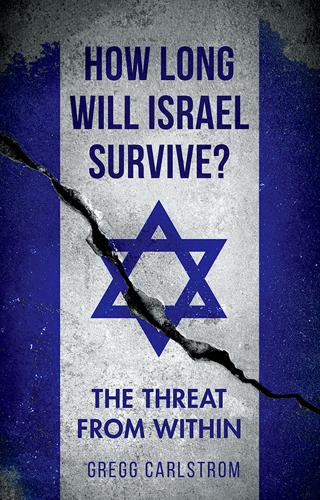
How Long Will Israel Survive Threat Wthn
by
Gregg Carlstrom
Published 14 Oct 2017
As this book went to press, more than a year after the cabinet decision, the prayer area still hadn’t been opened. During the High Holidays in 2016, a group of Orthodox Jews even erected a curtain in the mixed-gender area and started conducting segregated prayers there, creating their own “facts on the ground”. Lawmakers also introduced a bill to impose criminal penalties on women who tried to read from the Torah at the Wall. Far from offering religious equality, the Knesset was contemplating whether to throw Reform Jews in jail. Little Jew boy A few weeks before the rabbis were warned about the Knesset, Dan Shapiro found himself on the receiving end of a different insult.
…
He shuttled between various cabinet posts until 1974, when Rabin named him defense minister, a position that allowed Peres to play another fateful role in his country’s history. The settler population grew slowly in the first few years after the 1967 war, because the government was unwilling to approve major construction. Around the time Peres entered the defense ministry, a prominent right-wing activist named Yehuda Etzion decided to create facts on the ground. He secured a contract to build a fence around a military base near Ofra, northeast of Ramallah, and brought a group of would-be settlers (a “work brigade”) with him. After eight months on the site, they decided to start sleeping there overnight, the first step toward establishing a community.

The Secret Lives of Buildings: From the Ruins of the Parthenon to the Vegas Strip in Thirteen Stories
by
Edward Hollis
Published 10 Nov 2009
Eventually the United Nations condemned the occupation of Jerusalem and the destruction of the Mugrabi quarter, and in a gesture of reconciliation the Israelis returned the Haram e-Sharif to the jurisdiction of the Waqf. The Israelis kept the keys to the door at the top of the Mugrabi path, though—they still have them. As Teddy Kollek, the mayor of Jerusalem, said at the time, “We need to establish facts on the ground.” Once you have those, international resolutions and condemnations carry all the weight of hot air. The facts weren’t just on the ground, but under it, too. On 27 June, the Israeli government announced that any antiquities found in any excavation whatsoever in Jerusalem belonged to the Israeli state.
…
Venturi, Robert, and Denise Scott Brown. Learning from Las Vegas. MIT Press, 1972. Wimberly Allison Tong and Goo. Designing the World’s Best Resorts. Images, 2001. Wynn interview with Newsweek, 2006. http://www.podcastdirectory.com/podshows/1360547 THE WESTERN WALL, JERUSALEM Abu El-Haj, Nadia. Facts on the Ground: Archaeological Practice and Territorial Self-Fashioning in Israeli Society. University of Chicago Press, 2001. Amico, Fra Bernardino. Plans of the Sacred Edifices of the Holy Land. Franciscan Printing Press, 1997. Armstrong, Karen. Jerusalem: One City, Three Faiths. Ballantine, 1996.
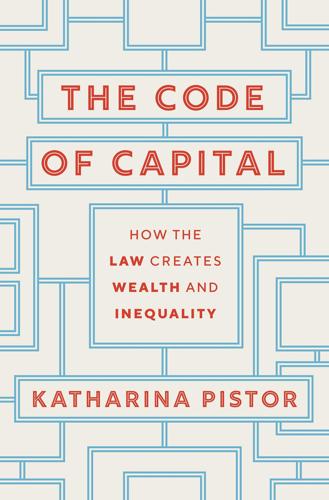
The Code of Capital: How the Law Creates Wealth and Inequality
by
Katharina Pistor
Published 27 May 2019
Shareholder limited liability is the technical term for shielding owners from the liabilities of the business entity. It became a standard feature of corporate law statutes relatively late, because wary legislatures feared that savvy entrepreneurs would set up a corporate shell, convince the creditors to extend loans to the company, and then take the money and run. Facts on the ground proved that they were not entirely wrong about this; in the nineteenth century, legal system after legal system adopted free incorporation statutes, which made it possible to establish corporations without the need for prior approval. When these statutes were enacted, almost invariably a founders’ boom would follow, then end in a crash.28 In response, some legislatures tried to backtrack, but once the genie was out of the bottle, it was almost impossible to put it back in.
…
Eli Lilly fought a lonely battle, but the strategy of shedding doubts on the impartiality of courts and intimidating governments has been effectively tried and tested to discredit the legal system of foreign countries; this time it was used even against a country that scores high on indicators that measure the rule of law and non-corruptibility; and consistent with these data, the Canadian government was unwilling to budge.57 The story about ISDA and its lobbying of legislatures and regulators in dozens of countries takes the relation between private actors and law enforcers to another level entirely. ISDA created facts on the ground by developing the MA, a contractual device that was soon used for millions of transactions involving derivatives, many of which were used in cross-border deals. After having demonstrated that a private contract can sustain a global market in financial instruments, ISDA began to lobby legislatures to adapt their laws to make them consistent with ISDA’s contractual instrument—turning the principle that contracts have to be consistent with the law on its head.

Like Dreamers: The Story of the Israeli Paratroopers Who Reunited Jerusalem and Divided a Nation
by
Yossi Klein Halevi
Published 4 Nov 2014
But Yehudah Etzion, Yoel’s devoted student and a member of the executive, was enthusiastic. He offered to organize a work group. Yoel backed Yehudah: here was a way of bypassing the Rabin government’s opposition, infiltrating rather than storming the territories. “We need to walk a thin line,” said Yoel. “Create facts on the ground, and if possible without going head-to-head with the government.” Yehudah brought together ten friends willing to work on the base. Hanan convinced the contractor to hire them and secured a work permit from the defense ministry, granted on condition that the group not stay overnight in the West Bank and create a de facto settlement.
…
He was learning to regard his own flawed being with the same pity with which he regarded the inadequacies of others. Meir mentioned to Tirza that his album had come out. But Tirza, afraid perhaps to discover in his songs a lover who wasn’t her, appeared indifferent. Meir didn’t mention the album again. FACTS ON THE GROUND EIN SHEMER’S JUBILEE YEAR ended. The greenhouse had succeeded beyond Avital’s hopes. Kibbutzniks spent their leisure hours cultivating tomatoes, offering each other agricultural advice while Avital brewed Turkish coffee. The kibbutz allowed him to spend most of his workday in the greenhouse, and Avital hadn’t felt so fulfilled since his early years in the orchards.
…
The government body in charge of holy places forbade the group from bringing in books and furniture. But after each visit the yeshiva students “forgot” religious books and thereby created a small library. And then one night students brought in tables and chairs via a back entrance through the adjacent Muslim cemetery. Classic Hanan: create facts on the ground and force the government to live with it. The growing public protests forced the government to modify its plan: Rachel’s Tomb would remain under Israeli military protection, but Palestinian police would patrol the road leading to the tomb. That arrangement, said Hanan bitterly, was reminiscent of the time of exile, when Jews visited Mother Rachel under foreign rule.
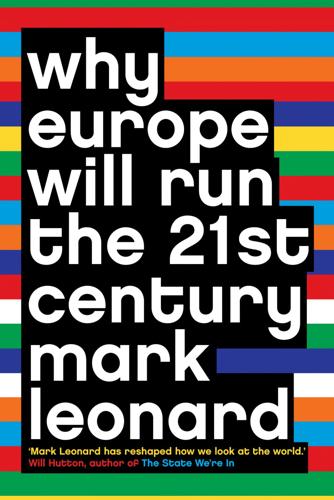
Why Europe Will Run the 21st Century
by
Mark Leonard
Published 4 Sep 2000
He tried to tackle contentious issues by breaking them down into component parts – it is a lot easier to get agreement on coal and steel tariffs than war and peace. And once the governments of France and Germany were sucked into endless negotiations, they were less likely to go to war. The best way to change the facts on the ground was through gradual change – what Monnet called engrenage. Each agreement to co-operate at a European level would lead inexorably to another agreement that deepened European integration. Once Europe’s leaders had agreed to remove tariffs, they focused on non-tariff barriers such as regulations, health and safety standards, and qualifications.
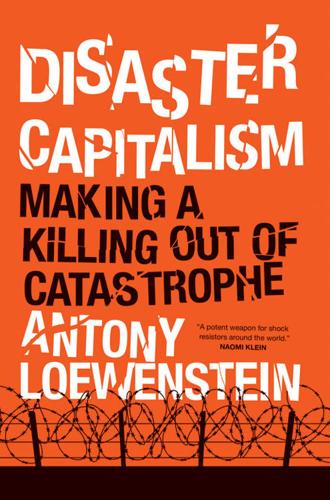
Disaster Capitalism: Making a Killing Out of Catastrophe
by
Antony Loewenstein
Published 1 Sep 2015
These included “public-private partnerships,” “flexible labor laws,” and the opening up of the economy to privatization.26 For this book, I visited places that provide unique insights into the cashed-up world of disaster profiteers, resource hunters, war contractors, and aid leeches. The narrative of supposed progress is seemingly unstoppable, and beyond the reach of critique. After all, who would not want to help the people of Papua New Guinea become independent through mining if this is their path to nirvana? But the facts on the ground tell a different story. The book is divided into two parts. Part I features the most egregious examples of exploitation: Pakistan and Afghanistan, Greece, Haiti, and Papua New Guinea. These nations have endured hardships because of the determination of particular factions to impose policies that enrich only a local elite and foreign entities.
…
Canberra even appeared willing to tolerate the loss of funds to PNG corruption, despite spending more than $160 million on Australian advisers in the first decade of the twenty-first century to “strengthen governance.”66 In 2011, AusAID introduced a “Mining for Development” initiative, which claimed to “provide countries with the expertise they need to build a sustainable mining sector, making better use of revenues, improving socially and environmentally sustainable development, and growing the economy.” All fine words, except that in PNG they were completely contradicted by the facts on the ground.67 Canberra had even brought out politicians and bureaucrats from across the world, mainly Africa, on “study tours” to see how apparently model corporations such as BHP Billiton and Rio Tinto conducted their business. In November 2012, ten women from five African countries toured Queensland and Western Australian mines and their communities.

The Strange Death of Europe: Immigration, Identity, Islam
by
Douglas Murray
Published 3 May 2017
The failure of local German authorities to communicate with each other, added to Europe’s lax external and absent internal borders systems had served Amri well. The same systems had served the shoppers at a Christmas market in Berlin less well. While large-casualty atrocities like this caught the headlines and galvanised the European press for a couple of news cycles, all the time the facts on the ground were changing the continent as a whole. The German authorities recorded an additional 680,000 arrivals into their country in 2016 alone. Such continuing mass immigration, high birth rates among immigrants and low birth rates among native Europeans all ensured that the changes underway would only accelerate in the years ahead.
…
For this German MP speaking in late 2016 must have known what anybody reading a newspaper must know, which is that the flow of migrants has not slowed because the need had slowed. It had slowed because the governments of Europe – and the government of Germany in particular – had changed the facts on the ground. If there was a reason why in 2016 the numbers had fallen by several hundred thousand from the year before it was because of two things. Firstly because of the deal that the EU (led by the German government) did with the Turkish government earlier in the year, paying the Turks to keep migrants inside their country and preventing boats from setting off for Greece.

Goliath: Life and Loathing in Greater Israel
by
Max Blumenthal
Published 27 Nov 2012
These are the stories of people living under a regime of separation, grappling with the consequences of ethnic division in a land with no defined borders. Readers may not agree with all of my conclusions, but I hope they will carefully consider the facts that appear on these pages. They are, after all, the facts on the ground. —Max Blumenthal PART I THE CAMPAIGNS 1 To the Slaughter By the end of 2008, the 1.5 million residents of the Gaza Strip had been left to fend for themselves. Gaza was surrounded on all sides by Israeli sniper towers, electrified fences, concrete walls, and a naval blockade that prevented fishermen from trawling waters more than 3 kilometers from shore.
…
He went on to recount how he convinced a “rich Christian friend from Nazareth” to immigrate to Canada. He remembered telling his friend, “Your children will never have it good here.” When the right-wing Likud Party came into power in 1977, the new minister of agriculture, Ariel Sharon, began transforming Koenig’s recommendations into facts on the ground with characteristic ruthlessness. In 1978, Sharon ordered construction to begin on a new round of Jews-only settlements, reviving the dormant campaign of Judaizing the Galilee. Though these small communities operated without any official discriminatory rules, they each contained a “welcome committee” devoted to excluding the Arab undesirables (and oftentimes, homosexuals, Mizrahim, and single people) from settling inside their confines.
…
Erected entirely on privately owned Palestinian land, the tent village stood directly in the way of what would be the capstone of Israel’s settler-colonial enterprise in the West Bank. Abir Kopty, a thirty-eight-year-old Palestinian feminist and human rights activist handling media for the Popular Struggle Coordination Commitee, remarked to me about Bab Al Shams, “Israel has been imposing facts on the ground, and we are doing exactly the same. We want to impose facts on our land. So, yes, it might seem that we have taken a model from them, but the difference is that we are building on our land and we are not taking others’ land and building on it.” Netanyahu reacted to news of the Palestinian protest village with extreme consternation.
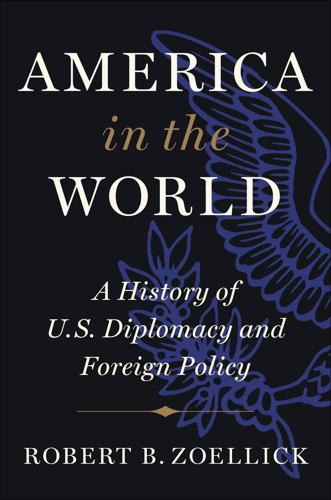
America in the World: A History of U.S. Diplomacy and Foreign Policy
by
Robert B. Zoellick
Published 3 Aug 2020
Lincoln drew Britons to his noble cause by recognizing that the workers’ meetings provided “an energetic and reinspiring assurance of the inherent power of truth and the ultimate and universal triumph of justice, humanity, and freedom.”45 Diplomacy and democracy mixed to stir a new public opinion that bridged the Atlantic. Historians debate the ultimate effect of the Emancipation Proclamation on foreign intervention. Lincoln recognized that the military facts on the ground would be determinative. He believed unsentimentally that people acted according to self-interest, so he made clear to London the high price of recognizing the Confederacy. Yet Lincoln also believed that the Union stood for a higher purpose—as an example of government by the people and in opposition to slavery.
…
Japan even eyed Russia’s Trans-Siberian Railway across Manchuria to Vladivostok, the czar’s remaining significant port on the Pacific. Japan did not want any foreign mediation, however; Tokyo feared any suggestion of peace would signal weakness. The Russians rejected TR’s informal advice, through unofficial channels, that it was time to end the war.18 Stalemate The facts on the ground created their own complex diplomatic logic. On March 10, 1905, after a two-week-long clash between two massive armies, in the largest battle in modern history up to that time, Japan captured Mukden (today’s Shenyang) in southern Manchuria. The disorganized Russians fled north; the exhausted Japanese were unable to encircle or pursue their enemy.
…
Nevertheless, when Nixon thwarted the massive North Vietnamese offensive of 1972 with devastating airpower, neither Beijing nor Moscow exacted a price, and the U.S. domestic response was not as explosive as after the U.S. assault into Cambodia in 1970. Washington’s primary problems were North Vietnamese military power, Hanoi’s resolve to complete the takeover of the country, and Saigon’s inability to resist on its own. Triangular diplomacy could not overcome the facts on the ground in Vietnam and the United States. As Michael Green aptly summarized, the “contradictions between [Nixon’s policy] of predictable withdrawal and unpredictable use of force” were unsustainable on the political home front.90 Realpolitik’s primary target was the Soviet Union. The effects were mixed.

How Everything Became War and the Military Became Everything: Tales From the Pentagon
by
Rosa Brooks
Published 8 Aug 2016
Of course, though law is “game-like,” it’s not truly a game. Law differs from tennis because the “rules” of law and legal interpretation are not there for the entertainment of the players: they’re not merely self-referential. Law is supposed to bear some relation to facts on the ground, and law enables coercive action to be taken in ways that can permanently alter the facts on the ground. If we create a legal system in which cheating is widespread—or, worse, if we overlook game-ending moves by those with power and treat them as legitimate modifications of the game—then it isn’t merely the rules that get bent, but the rule of law itself
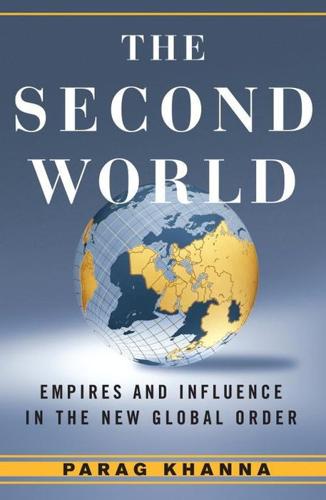
Second World: Empires and Influence in the New Global Order
by
Parag Khanna
Published 4 Mar 2008
If international relations is the meteorology of current events, then geopolitics is the climatology, the deep science of world evolution; geopolitics cannot be updated by clicking “Refresh” on an Internet browser. At the turn of the twentieth century, the German political geographer Friedrich Ratzel argued that empires needed to expand in order to survive. Like rubber bands, empires stretch as people move, altering the facts on the ground and establishing institutions that extend loyalty across territory as far as possible without causing the rubber band to snap. Ratzel’s student, Rudolf Kjellen, coined the term Geopolitik, which the Nazi geographer Karl Haushofer appropriated in order to expound his theory of expansive pan-regions requiring racially homogenous lebensraum.
…
But Israel’s existence does not guarantee its security, for the migratory force of Palestine’s Arabs has yet to achieve sufficient resolution. Since its victory in the Six-Day War, Israel’s occupation of Gaza, the West Bank, and East Jerusalem has created demographic bridgeheads of almost 250,000 settlers. Yet though these settlements are often called “the facts on the ground,” it is still an open question who will occupy them in the future. The growing presence of Palestinians—either as refugees, guest workers, or citizens—in Israel, Jordan, and Lebanon has given striking impetus to Palestinian statehood, for their own imposed lack of national identity challenges that of each of their neighbors.

Kingdom of Olives and Ash: Writers Confront the Occupation
by
Michael Chabon
Published 29 May 2017
Eventually, however, the Israel Antiquities Authority came on board with the transfer of a supposedly important site to a private nonprofit organization, which, in the eyes of some, had little or no credibility in the world of academic archaeology, and in 2008 the director stated that he couldn’t see a problem with Jews discovering more about their heritage and “didn’t like bringing politics into archaeology.” Elad was now the law in Silwan, a law always tending in one direction, towards the erosion of the Palestinian presence on its hillsides. There are facts and there are facts on the ground. Ancient history grows out of the barrel of a gun, and reportedly out of offshore accounts in Panama. Between 2006 and 2013, Elad took in $115 million in donations. At the opening of the City of David visitor’s center, the guests included Roman Abramovich, the owner of Chelsea football club, Lev Leviev, who made his fortune processing and mining diamonds in Angola and apartheid-era South Africa, and the former Soviet refusenik Natan Sharansky.
…
As more Palestinian land is lost and Palestinians are pushed into tighter and tighter ghettos, choked by a horrendous separation wall snaking through their lands and cutting them off from their families, fields, schools, and work, as they are forbidden from using many roads, and as they continue to be the target of random killings and sometimes mass arrests, Israel has already created facts on the ground that make the realization of a truly independent and viable Palestinian state impossible. I have always found it curious, however, how both Palestinians and the international community have come to view this military occupation as an isolated problem, removed from the historical context of the nakba: the founding of Israel on 78 percent of historic Palestine, the dispossession of around 85 percent of the Arab, Palestinian population of this part of the land, and the ethnic cleansing and destruction of more than four hundred Palestinian villages.
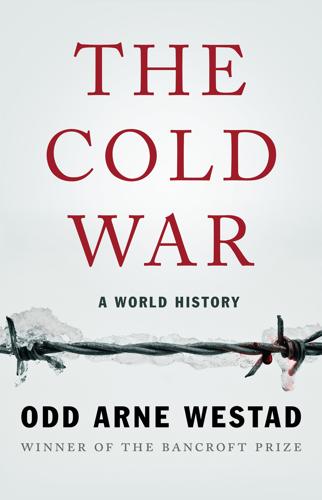
The Cold War: A World History
by
Odd Arne Westad
Published 4 Sep 2017
It also talked about “the restoration of sovereign rights and self-government to those peoples who have been forcibly deprived of them.”10 The American and British leaders expected the Soviets to at least go through the motions of “democracy” and “elections” in the parts of Europe occupied by the Red Army. It was more than a fig leaf. Leaders in London and Washington needed these concessions both for their own public opinion and as a sign of trust among allies. But they did not think they could alter the facts on the ground in eastern Europe. “It is the best I can do for Poland at this time,” FDR told his advisers at Yalta.11 Churchill went further. As he told his Cabinet after returning from the Crimea, “Stalin I’m sure means well to the world and Poland” and would deliver the “Polish people [a] free and more broadly-based gov[ernmen]t to bring about [an] election.”12 Even battle-hardened politicians can give in to wishful thinking as a long war is coming to an end.
…
In January 1945, before the Yalta Conference, the Soviets had established a provisional government of the Republic of Poland, ignoring the government-in-exile, with which it (understandably) had bad relations. At Yalta, the powers had agreed to a merger of the two governments and free elections in Poland as soon as possible. It was an attempt at a compromise that made nobody happy, but it was based on military facts on the ground: the Red Army was in full control of Poland. President Roosevelt’s chief of staff, William Leahy, pointed out to the president privately that Stalin’s promise was “so elastic that the Russians can stretch it all the way from Yalta to Washington without ever technically breaking it.”12 The new “coalition” government in Warsaw was a marvel of Communist dissimulation: technically it had a non-Communist majority, including some ministers who had returned from London, but in reality it was controlled by Polish Communists under Soviet tutelage.
…
Most of those present at this table roughly belonged to his generation—they had still experienced the war as children, too young to become guilty, but old enough to understand. It was the task of this generation to settle some things at the end of this century before passing the baton on to the next generation.”35 Emotional as he was about unification and a new German-Russian relationship, Kohl did not neglect creating facts on the ground to make the unification process irreversible. In the summer of 1990 the deutschmark was made the official currency of East Germany and a full “monetary, economic, and social union” between the two states came into being. West German laws were gradually introduced in East Germany, and in August the East German parliament made a formal request to the West German government to be incorporated into the Federal Republic of Germany.
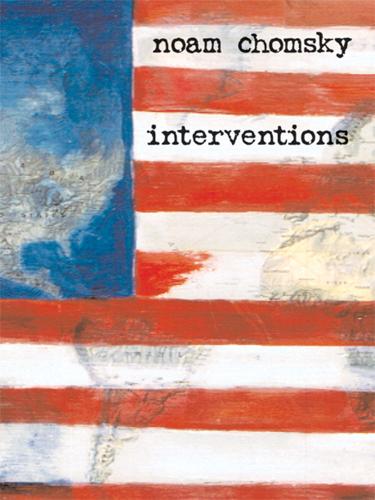
Interventions
by
Noam Chomsky
Furthermore, while Israel formally accepted the “road map,” it immediately issued fourteen reservations that completely eviscerated it, with the support of the United States. Hence both Israel and the U.S. were at once in violation of the “road map” that is commonly though inaccurately described as a Bush administration initiative.4 “The facts on the ground,” Israeli journalist Amira Hass comments, “are determining—and will continue to determine—the area where the road map will be applied, the area where the entity known as the ‘Palestinian state’ will be established.” With the barrier and by its other actions, Israel—and, by extension, its “boss-man called ‘partner’”—undermine hopes for a peaceful diplomatic settlement, surely by design, since the consequences are so obvious.
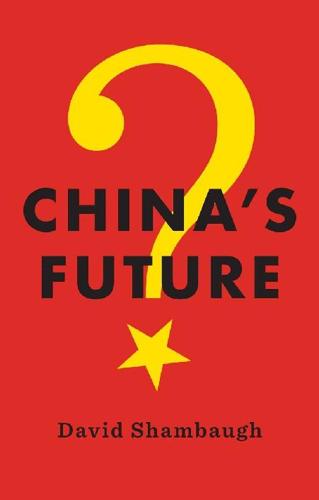
China's Future
by
David Shambaugh
Published 11 Mar 2016
Finally, China’s sustained decades-long military modernization program, which has been fueled by 12 percent average annual budget increases,24 is altering the security environment in the Asia-Pacific region where the United States has enjoyed unrivaled preeminence since 1945. China also regularly rhetorically denounces the U.S. alliance system in the region, and its assertive moves to enforce its disputed maritime claims are changing “facts on the ground” (indeed, they are literally creating ground from submerged atolls it controls in the South China Sea) and directly challenging key American allies. Hence, all three of the core premises that have undergirded more than four decades of American China policy are unraveling and coming under increasing criticism in Washington.
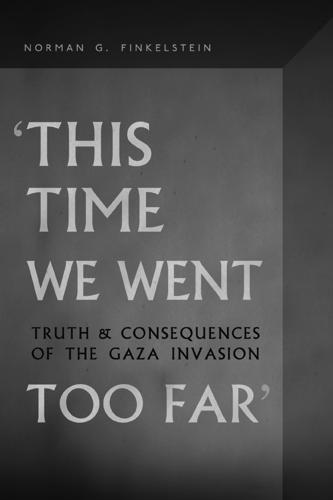
This Time We Went Too Far
by
Norman G. Finkelstein
Published 1 Jan 2010
Israel... sought to provide and facilitate humanitarian assistance” and implemented a “far-reaching effort to ensure that the humanitarian needs of the civilian population in Gaza were met.”75 Lest Israeli solicitude be doubted, Cordesman repeatedly cited Israeli press statements as well as “Israeli Ministry of Defense claims” affirming it.76 He also included an unimpeachable statement from none other than Defense Minister Ehud Barak that “we are well aware of the humanitarian concerns; we are doing and will continue to do everything possible to provide all humanitarian needs to the residents of Gaza.”77 The facts on the ground, however, looked rather different. “U.N. agencies and humanitarian NGOs continued to carry out operations despite extreme insecurity,” the United Nations Office for the Coordination of Humanitarian Affairs (OCHA) observed. “In the course of the three weeks of hostilities, five UNRWA [United Nations Relief and Works Agency] staff and three of its contractors were killed while on duty, and another 11 staff and four contractors were injured; four incidents of aid convoys being shot at have been reported; at least 53 United Nations buildings sustained damage.”78 Foreign Minister Tzipi Livni’s assertion in the midst of the attack that “no humanitarian crisis” existed in Gaza provoked a rebuke from UNRWA’s director of operations: “We have a catastrophe unfolding in Gaza for the civilian population....
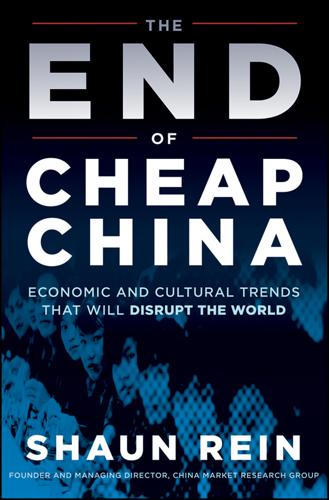
The End of Cheap China: Economic and Cultural Trends That Will Disrupt the World
by
Shaun Rein
Published 27 Mar 2012
The main reasons were that they were worried about the high costs of raising two children, and how having two children would influence the couple’s career development. The Shanghai Academy of Arts and Sciences found that 45 percent of Shanghainese couples did not want a second child. Positive trends toward gender quality, accompanied by the hard facts on the ground, all add up to one thing: Chinese women are becoming empowered in the workplace, and their changing role in family dynamics, especially rural families, has had more impact on Chinese society than is understood by most Westerners. Amy is typical of the generation of Chinese women born in the late 1970s and early 1980s that shifted from being meek girls to confident, aggressive consumers and entrepreneurs.
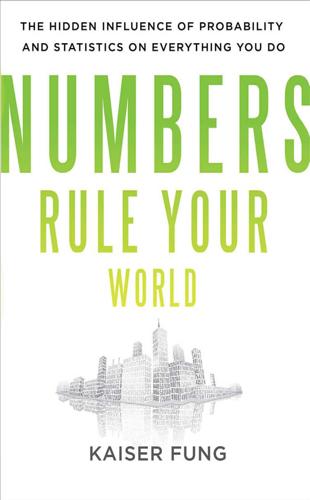
Numbers Rule Your World: The Hidden Influence of Probability and Statistics on Everything You Do
by
Kaiser Fung
Published 25 Jan 2010
. ~###~ Upon analyzing the lottery win data, Rosenthal uncovered an unusual pattern of wins by retail store insiders, much too unusual to have been produced by chance. With similar logic, some people stopped flying after the EgyptAir crash because to them, four crashes in four years seemed like an unusual pattern of disasters in the same region—too many to have happened completely at random. Did such behavior constitute a “personality disorder”? The facts on the ground were immutable: the four flights, the location, the accident times, and the number of casualties were there for all to see. Many rejected random chance as an explanation for the pattern of crashes. Yet, to Professor Barnett, four in four looked just like the work of chance. He even used the same tool of statistical testing but arrived at a different conclusion.

The Currency Cold War: Cash and Cryptography, Hash Rates and Hegemony
by
David G. W. Birch
Published 14 Apr 2020
To recapitulate and emphasize the importance of this architecture, I should point out that once digital identities can exchange digital money with each other in complete security, we will have a functioning base layer for a new financial system built on digital bearer instruments that require no clearing or settlement; this is as opposed to the existing financial system, which is based on electronic currency, accounts and fiat cash. Such a realistic platform for the digital currency of the future is distinct from the intermediary-free world of the Bitcoin maximalists. As Tim Swanson puts it, the facts on the ground clearly suggest that the vision of ‘everyone being their own bank’ has no basis in reality (Swanson 2015b). A world of tokens is not a world without middlemen, but it could be a world where the overall total cost of robust and reliable financial intermediation is reduced. Dumb money versus smart money As I set out in Before Babylon, Beyond Bitcoin, the money created by the communities of the future will be very different from the money of today because it will be smart: money with an application programming interface (API); money that has apps (or ‘smart contracts’, as some people insist on calling them, even though they are neither); money that has the capacity to facilitate more complex kinds of transactions because it enables so much more information exchange, including a history of the transactions themselves (Rogoff 2016).

The Weed Runners: Travels With the Outlaw Capitalists of America's Medical Marijuana Trade
by
Nicholas Schou
Published 31 Aug 2013
In dozens of interviews with sources at all levels of the industry, the idea that the momentum building in the past few years could so quickly crumble never came up. It was taken as an a priori assumption among the weed runners who I traveled with that the businesses they were creating and the markets they were opening were the economic equivalent of new “facts on the ground,” to borrow the military-diplomatic term for something that could not so easily be reversed. Looking back, those who placed the most faith in the notion that what they were trying to accomplish wouldn’t backfire on them in a big way tended to fare the worst. Mark Moen, who could have spent decades behind bars after being arrested with a large quantity of marijuana and cash while running back and forth between the Emerald Triangle and his dispensary in Southern California, wisely took a plea deal.
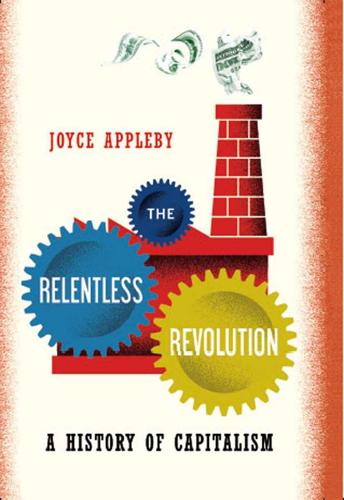
The Relentless Revolution: A History of Capitalism
by
Joyce Appleby
Published 22 Dec 2009
The issue was whether or not the clipped coins should be reminted with the official silver content or lowered to match the devaluation by chisel. Sharply divided, the antagonists carried the conceptualization of money to a new level of sophistication. Locke’s opponents—for the most part merchants and entrepreneurs—started with the facts on the ground, as it were. Coining silver added value, as was evident when people accepted clipped coins as easily as they pocketed unclipped ones. The monarch under whose authority the coins were issued had added extrinsic value to the intrinsic value of silver by turning it into legal tender. Practical rather than philosophical, many of these writers broke free of Locke’s dogmatic position.
…
To counter these attitudes, labor leaders have awakened to the need to rebuild the solidarity that once existed between the public and organized labor. With the goal of representing a third of the American work force, as it did in its heyday in 1950, the AFL-CIO began a campaign explaining how a strong labor movement energizes democracy and keeps alive a moral commitment to living wages and decent working conditions worldwide. The facts on the ground back it up: Between 1978 and 2008 CEO salaries went from levels 35 times those of an average worker to 275 times. Nor have corporate heads been generous to their workers, as Henry Ford once was. Although the rate of American productivity has risen since 2003, wages have not, and benefits have declined in value.
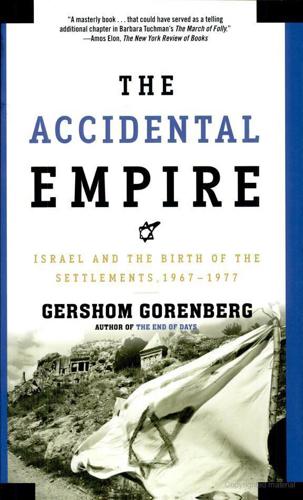
The Accidental Empire: Israel and the Birth of the Settlements, 1967-1977
by
Gershom Gorenberg
Published 1 Jan 2006
But it is not true that he was simply dragged by events, or that the settlement enterprise was imposed on him. He spearheaded the decisions to annex East Jerusalem and build Jewish neighborhoods there. By the fall of 1967, he fell back on his personal experience in settlement as a response to the new situation. He created facts on the ground, and sometimes imposed faits accomplis on ministers in order to do so. Wanting to improve Israel’s defenses and worrying about demography, he essentially adopted the Allon Plan, without formal approval. Like Allon, he bent the logic to fit his feelings about Kfar Etzion and Hebron. In Admoni’s insider description, Eshkol virtually returned to his role as Settlement Department chief.
…
As long as the settlers did not publicly demand approval, as long as their challenge to government authority stayed low-key, he satisfied himself with warnings aimed at Peres not to flout the cabinet in which he served. Galili’s suspicions that Peres was actively supporting Ofrah had a basis. Ofrah, according to settlement adviser Netzer, “fit our conception in the defense establishment—a work camp created a fact on the ground without closing options for the future.”37 Since the purpose of “creating facts” is to close options, this is a claim to have eaten a cake while leaving it untouched. Ofrah’s location fit Peres’s views on settlement. Labeling it as a temporary camp, only serving those working at putting up a fence, helped him reduce friction with others in the government.
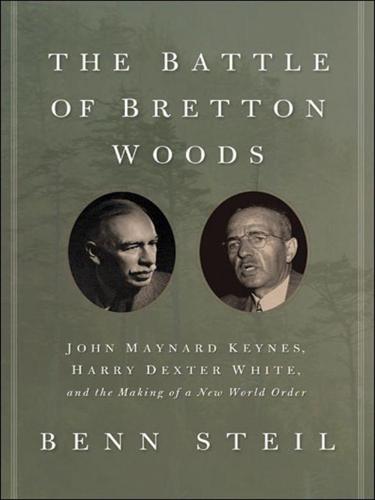
The Battle of Bretton Woods: John Maynard Keynes, Harry Dexter White, and the Making of a New World Order
by
Benn Steil
Published 14 May 2013
For Henderson, as with the formidable German economic architect Hjalmar Schacht, managed trade and bilateral barter agreements were the wave of the future—not just a wartime exigency.45 Keynes was deeply troubled by the seeming impossibility of reconciling Britain’s need for what he called a “Schachtian device” to manage its postwar trade and American demands for nondiscrimination. His correspondence during 1941 reflects a gyration between despair over American bullheadedness and optimism that the Americans would ultimately be compelled to adapt their ambitions to the facts on the ground, and the facts on the ground to their ambitions. He presciently suggested, for example, that the United States would be compelled to try to “mitigate her task [of reducing global imbalances] by making large presents for the reconstruction of Europe,”46 which ultimately came in the form of the Marshall Plan.
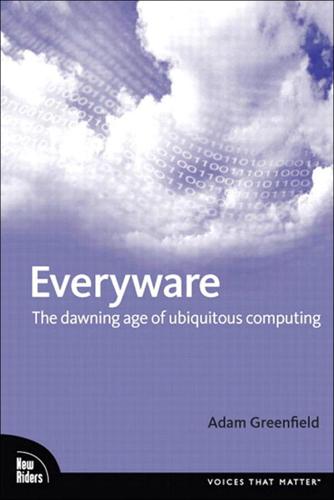
Everyware: The Dawning Age of Ubiquitous Computing
by
Adam Greenfield
Published 14 Sep 2006
Despite the rather self-serving nature of this proposition, and its prima facie falsehood in the context of Western culture, it's probably something close to the truth in Japanese terms. This is a country where, more so than just about anywhere else, people plan gatherings, devise optimal commutes, and are advised of the closest retailers via the intercession of their phones. Given the facts on the ground, Japanese developers wisely decided to concentrate on the ubiquitous delivery of services via keitai—for example, the RFID-tagged streetlamps of Shinjuku already discussed, or the QR codes we'll be getting to shortly. And as both phones themselves and the array of services available for them become more useful and easier to use, we approach something recognizable as the threshold of everyware.

The Techno-Human Condition
by
Braden R. Allenby
and
Daniel R. Sarewitz
Published 15 Feb 2011
This explicit tying together of analytical and moral judgment ("I believe that it is possible to be more objective than most of us are, but that it involves a moral effort,,18) is, of course, totally against the rules of the Enlightenment; but once we recognize that the world is as much constituted of moral (and other subjective) conditions as it is of the facts on the ground, this becomes a strength and not a fault. Indeed, the most important part of Orwell's analytical authority comes from his moral clarity (as contextual and contingent as that might be): we know where he stands, so we understand why he sees things as he does. Yet what makes this clarity most compelling is the satta voce "of course I may well be wrong about this" that seems to shadow his every observation.

The Great American Stickup: How Reagan Republicans and Clinton Democrats Enriched Wall Street While Mugging Main Street
by
Robert Scheer
Published 14 Apr 2010
Certainly that has been obvious in many of the recent corporate scandals, but there are still some who believe, despite the evidence to the contrary, that a completely unfettered free market is the way to go. Certainly, Reagan believed that, and his rhetoric about ending oppressive government regulation had a compelling impact for most of three decades. But the problem is that the deregulatory forces he unleashed eventually provided the annoying facts on the ground that demolished his grand expectations for the efficiency of fully self-regulated markets. Ironically, the real economic legacy of what has been ballyhooed as the Reagan Revolution was to set the stage rhetorically for the unheralded yet dramatic changes that would come later, under Clinton.

Strong Towns: A Bottom-Up Revolution to Rebuild American Prosperity
by
Charles L. Marohn, Jr.
Published 24 Sep 2019
Like a seedling emerging in the springtime, these places need to be nurtured, but not overwhelmed with affection. I was present at a speech given in 2016 by Detroit Mayor Mike Duggan where he promised that no Detroit neighborhood would be left behind. While it was an absurd statement that belied every discernible fact on the ground, I’m fine cutting the mayor some slack. Even today, there is no cultural dialogue in Detroit about intentional neighborhood abandonment. There is no room for the mayor to state the obvious. And so a destructive cultural farce ensues, one that demands the allocation of scarce resources to places with no future, while the areas of despair continue to atrophy, the people in them trapped in a feedback loop of decline.
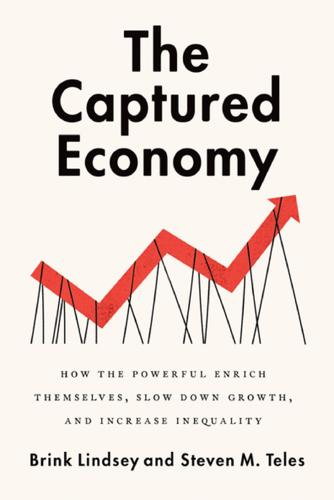
The Captured Economy: How the Powerful Enrich Themselves, Slow Down Growth, and Increase Inequality
by
Brink Lindsey
Published 12 Oct 2017
By allowing producers of ideas to recoup more of the value they create, they “internalize” some of the “externalities” associated with their efforts, thereby better aligning both resource allocation and incentives with maximization of welfare. Or at least that’s the idea. It’s a plausible argument with only one problem: the facts on the ground don’t provide much support for it. The market failure theory suggests that vulnerability to copying and imitation creates serious disincentives for would-be artists and inventors, such that only exclusive rights over reproduction and use can create the proper incentives for cultural production and technological innovation.

Better: A Surgeon's Notes on Performance
by
Atul Gawande
Published 2 Apr 2007
ON JUNE 25, less than twenty-four hours after the report of the Karnataka polio case came in, Sunil Bahl, a WHO physician and technical officer in the Delhi office, sent an e-mail to key people at WHO, at UNICEF, and in the Indian government. It was his job to provide the initial assessment of the facts on the ground. "The case is in an area that has a history of being the worst in Karnataka," he wrote; it had poor routines of immunization and the most polio cases in the early years of the campaign. "Risk of establishment of virus in the area high, unless quick wide and strong measures in the form of a wide mop-up are taken."

The Reluctant Spy
by
John Kiriakou
Published 30 Jan 2009
But as numerous books in recent years have pointed out, the administration completely botched the critical months after President Bush announced an end to major combat operations. The answer to why we’re still in Iraq to this day has almost everything to do with the failures of leadership in 2003 and 2004 and, in some cases, the ascendance of rank deception—deliberate distortions of the facts on the ground. It’s also important to concede that we probably dropped the ball on our reading of Saddam and what he would do. In many respects, during the period leading up to the beginning of the war, Saddam seemed to be goading us to invade. Why would he do that if he didn’t actually have weapons of mass destruction?
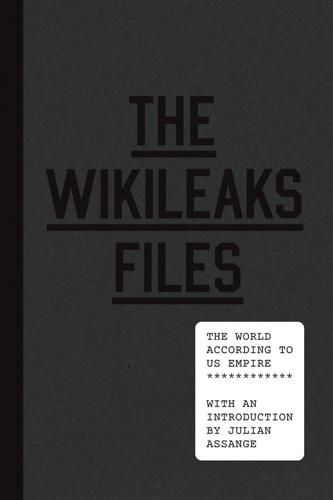
The WikiLeaks Files: The World According to US Empire
by
Wikileaks
Published 24 Aug 2015
Now Israel is hearing that the US wants no construction at all. Israelis consider this position to be unfair, he said. The question is whether the US is seeking a geographic or a demographic restriction on settlements. [09TELAVIV1184] Palestinians have long considered the Israeli settlement project an attempt to create “facts on the ground” to force Palestine to cede more land to Israel proper in any agreement over a future Palestinian state. Indeed, in an apparent effort to encourage young Palestinians to leave Israeli-occupied lands, the Israeli government has routinely denied growing Palestinian families in occupied territories the right to build additional housing on their property or even expand existing homes, ruthlessly bulldozing houses that violate such restrictions.
…
See also Chris Woods, “Analysis: Obama Embraced Redefinition of ‘Civilian’ in Drone Wars,” Bureau of Investigative Journalism, May 29, 2012, at thebureauinvestigates.com; and Glenn Greenwald, “‘Militants’: Media Propaganda,” Salon, May 29, 2012, at salon.com. 66Spencer Ackerman, “41 Men Targeted but 1,147 People Killed: US Drone Strikes—The Facts on the Ground,” Guardian, November 24, 2014; “US Drone Strikes Kill 28 Unknown People for Every Intended Target, New Reprieve Report Reveals,” Reprieve press release, November 24, 2014. 67Madelyn Hsiao-Rei Hicks, Hamit Dardagan, Gabriela Guerrero Serdán, Peter M. Bagnall, John A. Sloboda, and Michael Spagat, “The Weapons That Kill Civilians—Deaths of Children and Noncombatants in Iraq, 2003–2008,” New England Journal of Medicine 360: 1,585–1,588 (April 16, 2009). 68Quoted in Mohammad-Mahmoud Ould Mohamedou, Understanding Al Qaeda: The Transformation of War (London/Ann Arbor, MI: Pluto Press, 2007), p. 43. 69https://wikileaks.org/wiki/Classified_U.S_report_into_the_Fallujah _assult; https://wikileaks.org/wiki/Complex_Environments:_Battle_of_Fallujah_I,_April_2004. 70Global Policy Forum, “War and Occupation in Iraq,” June 2007, at globalpolicy.org. 71Martin Shaw, The New Western Way of War (Cambridge: Polity Press, 2005). 72For example, the prison’s oldest detainee, Mohammed Sadiq, was eighty-nine when detained.
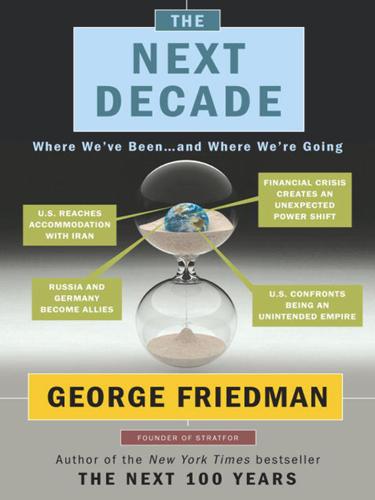
The Next Decade: Where We've Been . . . And Where We're Going
by
George Friedman
Published 25 Jan 2011
We should also remember Reagan’s active support for Muslim jihadists in Afghanistan fighting the Soviets. As with Roosevelt and Stalin, a future enemy can be useful to defeat a current one. The decade ahead will not be a time of great moral crusades. Instead, it will be an era of process, a time in which the realities of the world as presented by facts on the ground will be incorporated more formally into our institutions. During the past decade, the United States has waged a passionate crusade against terrorism. In the next decade, the need will be for less passion and for more meticulous adjustments in relations with countries such as Israel and Iran.

Radical Cities: Across Latin America in Search of a New Architecture
by
Justin McGuirk
Published 15 Feb 2014
In 2003, U-TT launched its first properly funded research project in the barrios of Caracas, inviting international artists such as Marjetica Potrč to collaborate on projects, including that dry toilet. The results became Informal City, which remains one of the best, most accessible books about informality in Latin America. It set out clearly that barrios were not merely a problem awaiting a solution but extraordinary self-regulating systems, places with qualities. Above all, they were facts on the ground, an urban condition too pervasive to be reversed. ‘The planned city can neither eliminate nor subsume the informal qualities and practices of its inhabitants,’ wrote Brillembourg and Klumpner. ‘The informal persists; its inherent strengths resist and deflect efforts to impose order. The totally planned city is, therefore, a myth.’
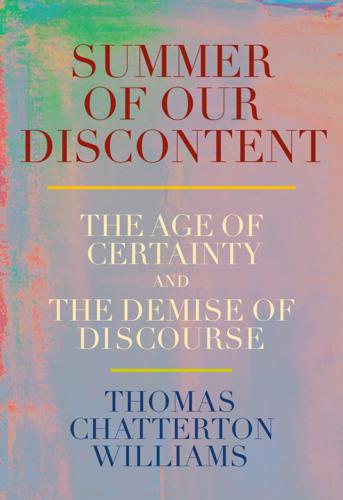
Summer of Our Discontent: The Age of Certainty and the Demise of Discourse
by
Thomas Chatterton Williams
Published 4 Aug 2025
Thus took hold an excruciatingly simplistic tale, fueled by a powerful unwillingness and incapacity to grapple with contemporary American racial and social complexity. It would be repeated from institution to institution, ad nauseam. By the time that Rittenhouse was acquitted of all charges one year later—an anticipated outcome for many legal scholars, given the videotaped facts on the ground in Kenosha and the laws on the books in the state of Wisconsin—universities across the country, for example, felt compelled to issue ideologically committed and reductive moralizing statements in the same vein as Kendi. “Certainly, the verdict raises questions about the wide availability of guns in the United States, this nation’s broad definitions of ‘self-defense,’ and vigilantism in the service of racism and white supremacy,” wrote Dwight A.

Fiasco: The American Military Adventure in Iraq
by
Thomas E. Ricks
Published 30 Jul 2007
I sent a back channel message to Wolfowitz and Rice saying, 'You're setting yourself up, this number isn't right, I am overseeing the training, and there are just ten thousand.' I also told them that electricity was much worse than they thought." 268 FIASCO Rumsfeld's response was to send out survey teams that could determine the facts on the ground. Bremer objected to the first team, and its trip was cancelled, Kellogg recalled. The second team was led by Maj. Gen. Karl Eikenberry, an Army general fresh from working on training issues in Afghanistan. He reviewed the training of Iraqi police and military units and concluded that things weren't going well.
…
"We now spend ninety percent of our time talking about the Abu Ghraib stuff, and one percent talking about the valor of the troops," said Bing West, the chronicler of the Marines in Iraq. The op-ed pages try reverse gear In the wake of the unraveling of the Bush administration's rationales for invasion, and the tarring of the U.S. military presence, expert opinion in the United States began to catch up with the facts on the ground. The op-ed pages of the New York Times, the Washington Post, and the Los Angeles Times in May 2004 looke almost like the reverse of the 2002 and 2003 stampedes that culminated in the gushing reviews of Powell's presentation to the UN. The New York Times' Thomas Friedman, probably the most influential writer on foreign affairs in the United States, and one of the more prominent journalistic supporters of going to war in Iraq, sounded the alarm in early May.
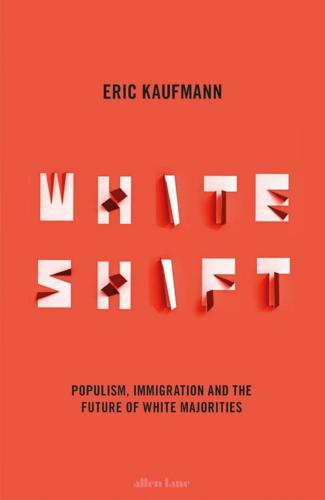
Whiteshift: Populism, Immigration and the Future of White Majorities
by
Eric Kaufmann
Published 24 Oct 2018
Similarly, the integration of provincial intellectuals into national networks and identities militates against them spearheading a new anti-metropolitan cultural movement. Instead, a conservative intellectual climate is more likely to emerge as a response to changing ‘facts on the ground’ or to a popular new theory which plugs into one of modernity’s holy trinity of liberty, equality and rationality. The rise of right-wing populism, for example, is a ‘fact on the ground’ which dragged centre-left intellectuals away from multiculturalism in Europe in the 1990s and 2000s.18 In a related vein, there is a new politics of the white working class. Their electoral assertiveness has challenged the prevailing intellectual climate as populist leaders brandish egalitarian arguments about peripheral whites being neglected and ‘left behind’ by metropolitan elites.

Before Babylon, Beyond Bitcoin: From Money That We Understand to Money That Understands Us (Perspectives)
by
David Birch
Published 14 Jun 2017
But he didn’t explain why this is different for the United Kingdom. How is the insanity of trying to maintain a currency union between Germany, Luxembourg and Greece any different to the insanity of trying to maintain a currency union between England, Wales and Scotland? The fact that they are in a political union does not alter the facts on the ground: they have fundamentally different economies. The Chancellor was arguing that if Scotland opted for independence, it would be impossible to maintain a currency union between England and Scotland. But surely if that is true, it is true now! The best monetary policy for England is not necessarily the best monetary policy for Scotland, and technology means that what was optimal for commerce at the time of the Napoleonic Wars may no longer best for the modern economy.
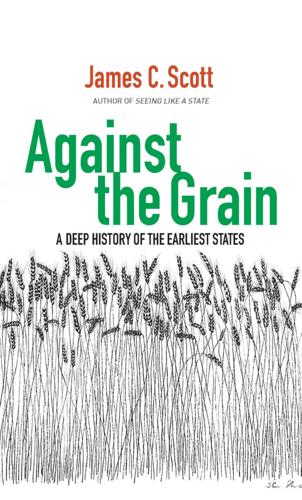
Against the Grain: A Deep History of the Earliest States
by
James C. Scott
Published 21 Aug 2017
They reveal, at a minimum, the massive effort through a system of notation to make a society, its manpower, and its production legible to its rulers and temple officials, and to extract grain and labor from it. Surely we know enough about even quite modern bureaucracies to realize that there is no necessary relation between the records on the one hand and the facts on the ground on the other. Documents are forged and fiddled for private advantage or to please superiors. Rules and regulations laid out meticulously in the documents may be a dead letter on the ground. Land records may be corrupt, absent, or simply inaccurate. The order of the records office, like the order of the parade ground, too often masks rampant disorder in actual administration and on the battlefield.
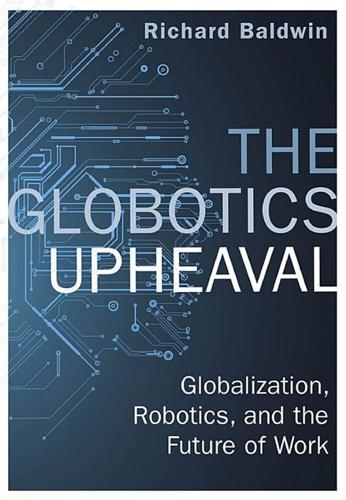
The Globotics Upheaval: Globalisation, Robotics and the Future of Work
by
Richard Baldwin
Published 10 Jan 2019
This new economic transformation was not as great as the original Great Transformation, but it did disorder the lives of millions and reshape economic social and economic realities into what the sociologist Alain Touraine called the “post-industrial society.”2 Jobs shifted from factories to offices, urbanization continued, many rural communities declined or disappeared, and the fulcrum of value creation shifted from capital to knowledge. The nature of globalization changed, and the unquestioned economic dominance of the West was questioned by facts on the ground. This economic transformation produced upheaval—just as it did in the nineteenth century. The twenty-first-century upheaval was nowhere near as great as that of the nineteenth and early twentieth century. It was, nevertheless, traumatic—especially in the US where government safety nets had been removed or not put in place as they were in Europe and Japan.
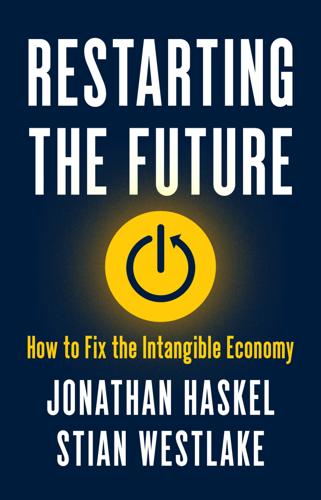
Restarting the Future: How to Fix the Intangible Economy
by
Jonathan Haskel
and
Stian Westlake
Published 4 Apr 2022
Technocrats versus Politicians It seems, then, that remote working will not make cities obsolete or solve the problems of congestion and housing shortages. Let’s now turn to two ways of addressing rising demand for city living: the technocrat’s solution and the politician’s solution. The technocrat takes a deep breath and starts with the facts on the ground. Economic growth will happen in cities if we let them grow, but towns are a losing bet. So, let’s change planning rules to allow towns to grow. The holy grail of technocrats in UK public policy is to shrink or even get rid of greenbelts, the 1.6 million hectares of protected, undeveloped land around cities and towns first established under the 1947 Town and Country Planning Act to discourage sprawl and ribbon development.
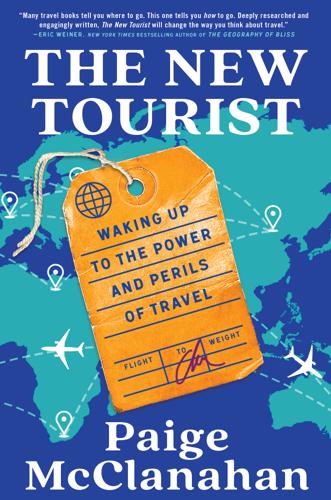
The New Tourist: Waking Up to the Power and Perils of Travel
by
Paige McClanahan
Published 17 Jun 2024
To take the most famous example of a reef in decline: in 2021, UNESCO’s World Heritage Committee recommended that the Great Barrier Reef, which has been a World Heritage site since 1981, be added to the list of UNESCO sites “in danger,” noting that the long-term outlook for the ecosystem was “very poor.”14 The government of Australia fiercely—and successfully—opposed the “in danger” listing, but that doesn’t change the facts on the ground.15 If and when life collapses in that reef, it will be both an ecological disaster and an economic one: tourism in the Great Barrier Reef supports sixty thousand jobs and contributes $3.8 billion to the local economy.16 The Maldives, where tourism accounts for 28 percent of the national gross domestic product, is another tourist spot that climate change could quite literally wipe off the map.
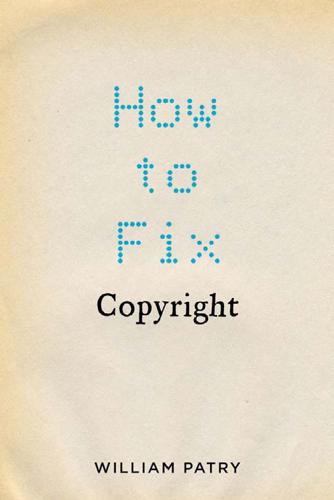
How to Fix Copyright
by
William Patry
Published 3 Jan 2012
In place of renegade Scottish and Irish book publishers we have local producers and distributors in developing countries, as well as global peer-to-peer (P2P) networks. THE EARLY ENGLISH EXPERIENCE While some have misdescribed the 1710 English Statute of Anne as landmark legislation favoring authors over booksellers because the right vested initially in authors rather than in booksellers,16 the facts on the ground were that authors benefitted no more after the Statute of Anne than they had before it was enacted. Dr. Isabella Alexander has written: Authors always had at least the right to consent to publication by virtue of their physical possession of the manuscript. Practically speaking, the right to print was of little use to authors, unless they happened to own a printing press and have access to a distribution network.17 84 HOW TO FIX COPYRIGHT After the Statute of Anne, as before, the only purchasers of authors’ works were a small group of London booksellers.
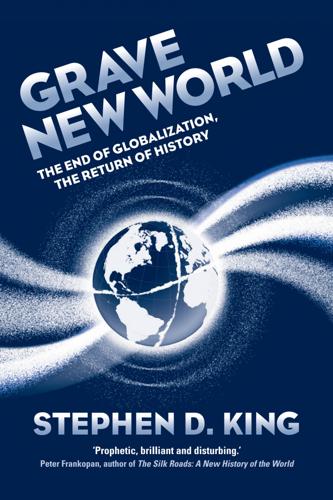
Grave New World: The End of Globalization, the Return of History
by
Stephen D. King
Published 22 May 2017
In East Asia there is no shortage of hotspots. In the South China Sea, China, Taiwan, the Philippines, Malaysia, Vietnam and Brunei all make territorial claims over the Spratly Islands, which offer plenty of fish and potentially bountiful supplies of oil and gas. China has been in the process of establishing ‘facts on the ground’ – or, more accurately, ‘facts on reclaimed reefs’ – through the construction of airstrips, the provision of a mobile phone network and even the erection of a lighthouse. In July 2016, and following protests by the Philippines, the Permanent Court of Arbitration in The Hague declared much of this unlawful.
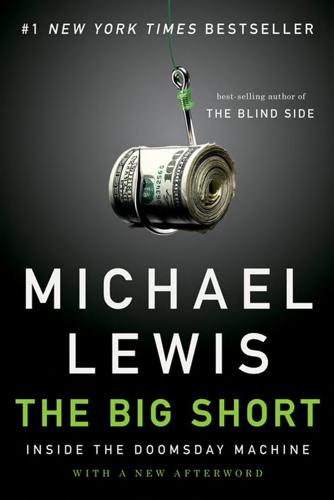
The Big Short: Inside the Doomsday Machine
by
Michael Lewis
Published 1 Nov 2009
To Michael Burry, the subprime mortgage market looked increasingly like a fraud perpetrated by a handful of subprime bond trading desks. "Given the massive cheating on the part of our counterparties, the idea of taking the CDS[s] out of the side pocket is no longer worth considering," he wrote at the end of March 2007. The first half of 2007 was a very strange period in financial history. The facts on the ground in the housing market diverged further and further from the prices on the bonds and the insurance on the bonds. Faced with unpleasant facts, the big Wall Street firms appeared to be choosing simply to ignore them. There were subtle changes in the market, however, and they turned up in Burry's e-mail in-box.

Incognito: The Secret Lives of the Brain
by
David Eagleman
Published 29 May 2011
So we see that the invisibly small molecules we call narcotics, neurotransmitters, hormones, viruses, and genes can place their little hands on the steering wheel of our behavior. As soon as your drink is spiked, your sandwich is sneezed upon, or your genome picks up a mutation, your ship moves in a different direction. Try as you might to make it otherwise, the changes in your machinery lead to changes in you. Given these facts on the ground, it is far from clear that we hold the option of “choosing” who we would like to be. As the neuroethicist Martha Farah puts it, if an antidepressant pill “can help us take everyday problems in stride, and if a stimulant can help us meet our deadlines and keep our commitments at work, then must not unflabbable temperaments and conscientious characters also be features of people’s bodies?

Ludicrous: The Unvarnished Story of Tesla Motors
by
Edward Niedermeyer
Published 14 Sep 2019
As Tesla’s market cap climbed to match or exceed that of “incumbent” automakers whose production volume and profits eclipsed the upstart, this logic was increasingly trotted out as justification for its frothy valuation. But the perception that automakers wouldn’t invest as aggressively in electric vehicles as an unencumbered startup like Tesla was just that: a perception. This belief may have matched the popular understanding of The Innovator’s Dilemma, but it simply didn’t match the facts on the ground. Apparently nobody ever told Nissan that its core internal combustion–powered car business should prevent it from developing and deploying new technologies and products. The Japanese automaker built its first electric car, the Tama, in 1947 as a response to postwar oil shortages, and it never stopped developing the technology.

The Israel Lobby and U.S. Foreign Policy
by
John J. Mearsheimer
and
Stephen M. Walt
Published 3 Sep 2007
Secretary of State Colin Powell made that point in a round of phone calls to Arab foreign ministers.”70 Ari Fleischer, the White House press secretary, said, “The issue is not Israel,” it is “terrorists who are killing in an attempt to stop a hopeful process from moving forward.”71 Later that month, the House passed a resolution—by a vote of 399 to 5—expressing “solidarity with the Israeli people” and saying that Israel was fully justified in using force to deal with terrorism.72 Bush had once again tried to curb Israeli actions that strengthened anti-Americanism in the Arab and Islamic world and undermined the administration’s war on terrorism, but he ended up suffering another humiliating defeat.73 UNILATERALISM IN, ROAD MAP OUT Much the same pattern was evident in late July 2003, when the Bush administration began to voice its objections to Israel’s so-called security fence, which was widely seen as an Israeli attempt to create “facts on the ground” that would be a major obstacle to a negotiated settlement. The issue was not construction of the fence itself but rather its intended route, which in effect would incorporate additional parts of the Occupied Territories and impose significant additional hardships on thousands of Palestinians.74 Bush ex pressed his displeasure at a joint White House press conference with Palestinian Prime Minister Mahmoud Abbas on July 25: “I think the wall is a problem, and I discussed this with Ariel Sharon.
…
In the United States today, it just isn’t possible to have a civil debate about Israel, because any serious criticism of its policies is instantly countered with charges of anti-Semitism.”120 Sixth, the lobby went to work to limit the damage from the cluster bomb controversy. On August 31, B’nai B’rith International sent a letter to Jan Egeland, the UN leader who had criticized Israel’s use of cluster bombs, accusing him of acting “as an un-appointed moral arbiter with regard to disputed, unproven facts on the ground and the interpretation of international humanitarian law.”121 A week later, the Senate was debating legislation that would ban the use of cluster bombs in civilian areas and prohibit the transfer of those deadly weapons to countries that refused to accept that ban. AIPAC lobbied hard against the legislation, which went down to defeat by a vote of 70–30.122 Key organizations in the lobby have been open and candid in discussing their influence on U.S. policy in Lebanon.

Zbig: The Life of Zbigniew Brzezinski, America's Great Power Prophet
by
Edward Luce
Published 13 May 2025
The main Allied powers, the US, the USSR, and Britain, agreed to divide Germany into four administrative zones, with France controlling the fourth. A few days after Potsdam, America dropped the “Little Boy” atom bomb on Hiroshima. Three days after that, “Fat Man” obliterated Nagasaki. “This is the way in which the Second World War ended,” Zbigniew observed drily.46 It was also at Potsdam that the victorious powers bowed to Stalin’s facts on the ground and recognized the new Communist-led government of Poland. Canada followed suit, thus putting Tadeusz out of a job. That the Brzezinskis knew it was coming did not blunt their feelings of betrayal. Zbigniew called it a government of “Soviet agents and traitors.” Amid the “paroxysms of joy” that Canadians expressed on Victory in Europe day a few weeks earlier, he had been overwhelmed “essentially by sadness—I knew that Poland was once again occupied.”
…
Early into Obama’s presidency, Brzezinski urged him to convene talks on a final Israel-Palestine settlement. That was in accordance with Brzezinski’s long-held view that a step-by-step process would inevitably unravel. Instead, Obama called for a freeze on new Israeli settlements. Israeli prime minister Binyamin Netanyahu immediately called Obama’s bluff by creating new “facts on the ground” with a green light to another round of settlements. In that first eyeball-to-eyeball with Israel’s leader, Obama blinked. “In hindsight, our proposed settlement freeze was a mistake,” said Rhodes. “It was like getting half pregnant.”72 Brzezinski was peeved. He warned Obama that this would happen

Chokepoints: American Power in the Age of Economic Warfare
by
Edward Fishman
Published 25 Feb 2025
That’s what I heard from some folks.” Obama flashed a slight grin. “Well, today, it is America that stands strong and united with our allies, while Russia is isolated with its economy in tatters.” America’s economic weapons could throw even a big power like Russia off balance. Sanctions had not, however, changed facts on the ground in Ukraine. Russian flags still fluttered over Crimea, and Kremlin-backed militias still ruled swaths of the Donbas. And as Obama’s speech beamed to TV screens around the world, Putin’s fighters were readying a new offensive. 32 Back from the Edge January in Moscow was cold, dark, and snowy.
…
By the time numbers are crunched and diplomacy is complete, the crisis is well underway, making it much harder to reverse or resolve. When the United States figured out how to throttle Iran’s economy, the country’s nuclear program was already advanced. When the Obama administration imposed sanctions on Russia in 2014, troops had already created facts on the ground in Crimea and the Donbas. And Washington’s full-court press against Huawei got started when the Chinese firm already dominated the global telecom market. As Putin was plotting to seize Kyiv, by contrast, Washington caught him dead to rights. There was ample time to prepare a counterpunch.
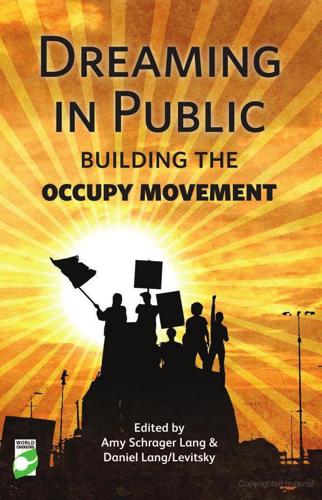
Dreaming in Public: Building the Occupy Movement
by
Amy Lang
and
Daniel Lang/levitsky
Published 11 Jun 2012
We are overfishing our oceans, polluting our water with fracking and deepwater drilling, turning to the dirtiest forms of energy on the planet, like the Alberta tar sands. And the atmosphere cannot absorb the amount of carbon we are putting into it, creating dangerous warming. The new normal is serial disasters: economic and ecological. These are the facts on the ground. They are so blatant, so obvious, that it is a lot easier to connect with the public than it was in 1999, and to build the movement quickly. We all know, or at least sense, that the world is upside down: we act as if there is no end to what is actually finite – fossil fuels and the atmospheric space to absorb their emissions.
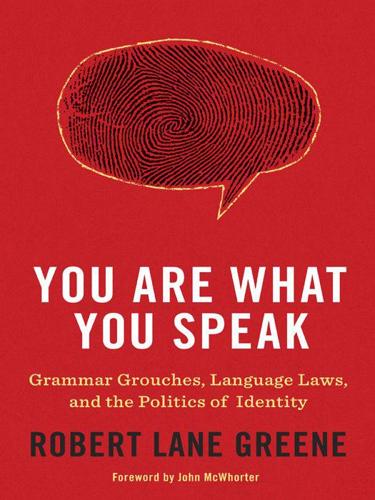
You Are What You Speak: Grammar Grouches, Language Laws, and the Politics of Identity
by
Robert Lane Greene
Published 8 Mar 2011
So Serbs and Croats will probably be able to understand each other for some time yet. Not nearly enough time has passed for nationalist language fiddlers to render “Croatian,” “Bosnian,” “Serbian,” and the new “Montenegrin” pure enough that the speakers can’t rub along. It remains to be seen whether they will ever succeed. The result will depend not on real linguistic facts on the ground—remember that “Croatian” differs more internally than it does from “Serbian.” It will depend on the old Yugoslav republics’ political future, and that depends on the rest of Europe. Polyglot Paradise? The European Union The European Union has twenty-three official languages. Romanian and Bulgarian became official when Romania and Bulgaria joined the Union, in line with the traditional policy that each official national language is an EU language.

Present Shock: When Everything Happens Now
by
Douglas Rushkoff
Published 21 Mar 2013
Did you hear what I found out about the factory they’re made in? Do the chemicals in this fabric softener get absorbed through a baby’s skin? When people are concerned with questions like these, brand mythologies cease to have any relevance—except when they serve as ironic counterpoint to the facts on the ground. Instead, people compete to provide one another with valuable information or informed opinions as a way of gaining popularity, or social currency, in their networks. They feedback not just to companies or governments, but to one another. So, as we have seen, narrative has collapsed, branding has become irrelevant, consumers see themselves as people, and everyone is engaged in constant, real-time, peer-to-peer, nonfiction communication.
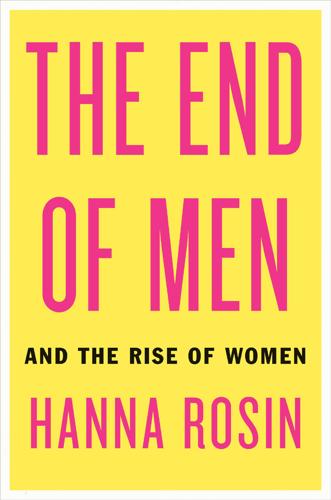
The End of Men: And the Rise of Women
by
Hanna Rosin
Published 31 Aug 2012
So she asked a follow-up: “If you look at pharmacy right now, isn’t the most underrepresented group men?” The applicant was unconvinced, and explained that men had been in a privileged position all their lives—a sure sign for Mount that the applicant had been locked in academic ideology too long and was missing the obvious facts on the ground. “I thought, ‘This person just doesn’t get it,’” she said. “He just doesn’t get how bad it’s gotten.” Recently she printed out photos of the various student groups—school government, campus fraternities, national service organizations—for a newsletter she had to write. It was the first time she noticed that the entire leadership of nearly every group was made up of women.
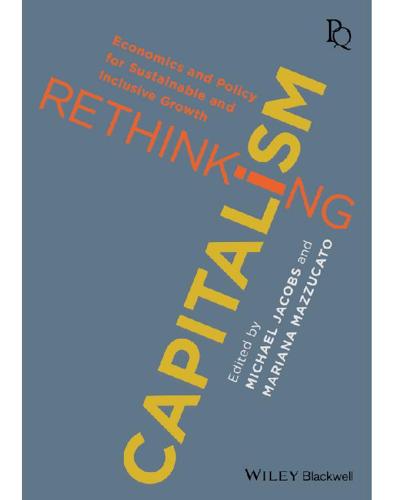
Rethinking Capitalism: Economics and Policy for Sustainable and Inclusive Growth
by
Michael Jacobs
and
Mariana Mazzucato
Published 31 Jul 2016
See for example Hatzius’ 2012 interview with the Business Insider: http://www.businessinsider.com/goldmans-jan-hatzius-on-sectoral-balances-2012-12?IR=T (accessed 4 May 2016). 18 M. Wolf, ‘The balance sheet recession in the US’, Financial Times, 19 July 2012, http://blogs.ft.com/martin-wolf-exchange/2012/07/19/the-balance-sheet-recession-in-the-us/ (accessed 4 May 2016). 19 P. McCulley, Global Central Bank Focus: Facts on the Ground, Policy Note 2010/2, Levy Economics Institute of Bard College, 2010, p. 3, http://www.levyinstitute.org/pubs/pn_10_02.pdf (accessed 4 May 2016). 20 L. R. Wray, Understanding Modern Money: The Key to Full Employment and Price Stability, London, Edward Elgar Publishing, 1998. 21 S. Kelton, ‘Yes, deficit spending adds to private sector assets even with bond sales’, New Economic Perspectives, 2010, http://neweconomicperspectives.org/2010/11/yes-deficit-spending-adds-to-private.html (accessed 4 May 2016). 22 Figures 2 and 3 also depict the foreign sector (grey dashed line), which is part of the non-government sector.
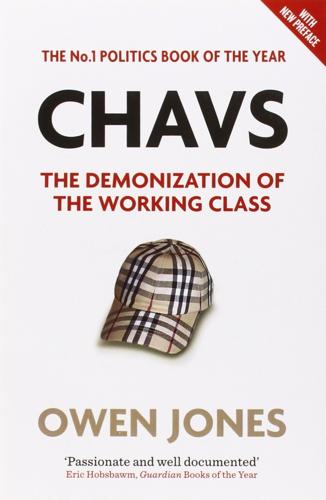
Chavs: The Demonization of the Working Class
by
Owen Jones
Published 14 Jul 2011
This is the legacy of Thatcherism-the demonization of everything associated with the working class. 3 Politicians vs Chavs Now the working classes are no longer feared as a political peril they no longer need respect, and the uppers can revel in their superiority as if this were the eighteenth century. -Polly Toynbee Conservative Prime Minister David Cameron cannot be said to lack courage. When he trekked up to Glasgow East to support the Tory candidate in a 2008 by-election, there were a number of suitable observations he could have made given the facts on the ground. Glasgow has twice as many people out of work as the national average. More than half of the city's children live in poverty. The city tops Scottish league tables for drug addiction, overcrowded housing and pensioner poverty. Life expectancy in Glasgow's Calton neighbourhood is fifty-four years -well over thirty years less than men in London's Kensington and Chelsea district, and lower than in the Gaza Strip.
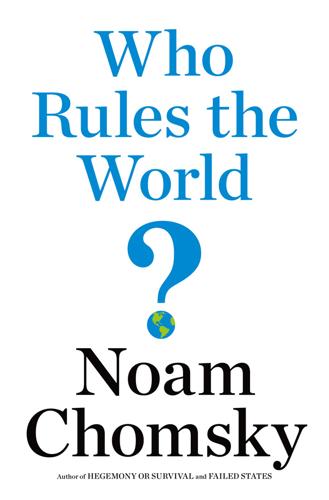
Who Rules the World?
by
Noam Chomsky
Dayan also called for Israel’s “permanent rule” (“memshelet keva”) over the Occupied Territories.15 When Netanyahu expresses the same stand today, he is not breaking new ground. For a century, the Zionist colonization of Palestine has proceeded primarily on the pragmatic principle of the quiet establishment of facts on the ground, which the world was to ultimately come to accept. It has been a highly successful policy. There is every reason to expect it to persist as long as the United States provides the necessary military, economic, diplomatic, and ideological support. For those concerned with the rights of the brutalized Palestinians, there can be no higher priority than working to change U.S. policies—not an idle dream by any means. 17 The U.S.

Green and Prosperous Land: A Blueprint for Rescuing the British Countryside
by
Dieter Helm
Published 7 Mar 2019
Much of the fauna has ingested plastic of one form or another, and the fashion for rewilding is best seen as just another form of eco-engineering, a switch from one man-made landscape to another. Wild, as a concept, has lost its practical meaning, even if its cultural power remains. For all the angst this human transformation of nature causes environmentalists, it is not only a fact on the ground, it is also one that has proved remarkably successful from a human perspective. Over the last couple of centuries, we have broken out of thousands of years of virtually zero economic growth. The Industrial Revolution, and then the Age of Oil in the twentieth century, ushered in a wholly new historical experience.
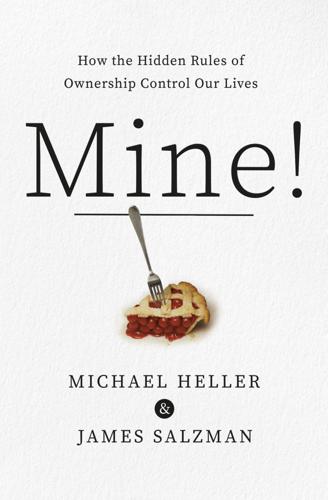
Mine!: How the Hidden Rules of Ownership Control Our Lives
by
Michael A. Heller
and
James Salzman
Published 2 Mar 2021
But if a trespasser succeeds in entering your land and gets established there, then the rules shift; you can no longer use force but must go to court to evict the possessor, a potentially lengthy and costly process. If you fail to act, and enough time passes, the trespasser automatically becomes the new owner. A lawsuit like the one against the Kirlins simply confirms the facts on the ground: physical possession has ripened into legal ownership. This rule explains the small bronze plaques in plazas and wide sidewalks all over American cities bearing opaque messages like private property, permission to pass revocable at any time. By giving explicit permission, owners ensure that pedestrians’ sidewalk use is not “adverse.”

The Premonition: A Pandemic Story
by
Michael Lewis
Published 3 May 2021
In a week or two everything is going to change. And these people have no idea what is about to happen.’ Debbie is looking at me. And she said, ‘Maybe that’s a good thing—not to know what’s about to happen.’ ” * Charity Dean had been living for years with a mental model that fit exactly with the facts on the ground. Her model started with two assumptions. One, something was coming. Two, the CDC wouldn’t deal with it. The CDC reminded Charity of a person who allows a false but flattering story about himself to circulate. If everyone has somehow come to believe that you speak French fluently, why contradict them?

The Stack: On Software and Sovereignty
by
Benjamin H. Bratton
Published 19 Feb 2016
For Schmitt (and for Heidegger and any number of subsequent political programs, both left and right, irredentist and esoteric), “the very possibility of legal relations is dependent upon an original act of collective appropriation of land which establishes the material matrix—literally the ground—of those legal relations.”21 Even forgetting that this is the same ox plow that Jacques Derrida used, once upon a time, to prosecute for writing against ontologies of presence, it should be obvious that “facts on the ground” absolutely do not defend sites against revision and innovation.22 It should be said that for Schmitt, if not for Heidegger, it is the physical taking and defense of land that matters most, not the transgenerational claims of autochthonous bloodlines that may have lost out against new forces.
…
What is today most legal and most explicitly protected by the formal apparatus of law is what may be the most dangerous. Meanwhile many forms of connection and interfaciality that are technically illegal—or alegal—adapt to emergent conditions in ways that formal securitarian urbanism could never preprogram, and also represent some of the most secure public policy paths available. In the repetition as facts on the ground, these translegal forms (software or hardware) come to take on the force of law, and then just maybe, if urbanists are savvy, these designate as law, and geography is recompiled and restocked, brick by brick, in their image. For design, working with alegal interfaces represents a form of constraint and also a medium for the proliferation or suppression of utopian and dystopian alliances and enemies.
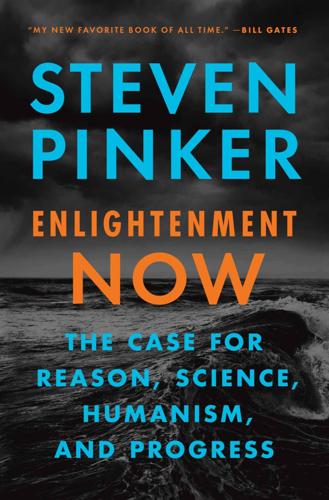
Enlightenment Now: The Case for Reason, Science, Humanism, and Progress
by
Steven Pinker
Published 13 Feb 2018
The top five countries that still execute people in significant numbers form an unlikely club: China and Iran (more than a thousand apiece annually), Pakistan, Saudi Arabia, and the United States. As in other areas of human flourishing (such as crime, war, health, longevity, accidents, and education), the United States is a laggard among wealthy democracies. This American exceptionalism illuminates the tortuous path by which moral progress proceeds from philosophical arguments to facts on the ground. It also showcases the tension between the two conceptions of democracy we have been examining: a form of government whose power to inflict violence on its citizens is sharply circumscribed, and a form of government that carries out the will of the majority of its people. The reason the United States is a death-penalty outlier is that it is, in one sense, too democratic.
…
Cabinet secretaries have publicly repudiated various quips, tweets, and stink bombs; courts have struck down unconstitutional measures; senators and congressmen have defected from his party to vote down destructive legislation; Justice Department and Congressional committees are investigating the administration’s ties to Russia; an FBI chief has publicly called out Trump’s attempt to intimidate him (raising talk about impeachment for obstruction of justice); and his own staff, appalled at what they see, regularly leak compromising facts to the press—all in the first six months of the administration. Also boxing a president in are state and local governments, which are closer to the facts on the ground; the governments of other nations, which cannot be expected to put a high priority on making America great again; and even most corporations, which benefit from peace, prosperity, and stability. Globalization in particular is a tide that is impossible for any ruler to order back. Many of a country’s problems are inherently global, including migration, pandemics, terrorism, cybercrime, nuclear proliferation, rogue states, and the environment.
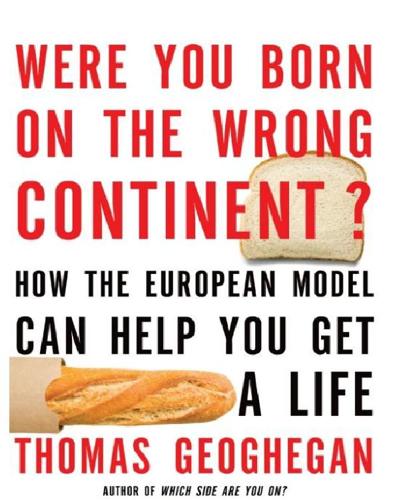
Were You Born on the Wrong Continent?
by
Thomas Geoghegan
Published 20 Sep 2011
If Europe is uniting “constitutionally,” if Europeans are voting in a new constitution with their feet via high-speed rail and the like, the U.S. is disuniting “constitutionally” when we’re sitting in gridlock, when it gets harder and harder to get from here to St. Louis. Our constitutional scholars should pay more attention to what army people call the “facts on the ground.” With no Henry Clay pushing a U.S.-type Eurostar, when the Obama stimulus just goes toward resurfacing the clogged roads, it’s harder each year to get from A to B, from Chicago to St. Louis, or from Chicago to Milwaukee. Or even from Chicago to Chicago: I am in terror of getting into the traffic here on a Saturday.

The Case for Israel
by
Alan Dershowitz
Published 31 Jul 2003
Any attempt to unravel the complexly disputed and ultimately unverifiable historical contentions of extremist Israelis and Arabs only produces unrealistic arguments on both sides. It is, of course, necessary to have some description of the history—ancient and modern—of this land and its ever-changing demographics, for no reason other than to begin to understand how reasonable people can draw such diametrically opposed conclusions from the same basic facts on the ground. The reality, of course, is that only some of the facts are agreed upon. Much is disputed and believed to be absolute truth by some, while others believe that its opposite is equally true. This dramatic disparity in perception results from a number of factors. Sometimes it is a matter of the interpretation of an agreed-upon event.
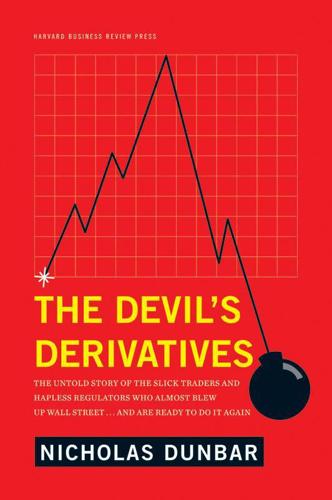
The Devil's Derivatives: The Untold Story of the Slick Traders and Hapless Regulators Who Almost Blew Up Wall Street . . . And Are Ready to Do It Again
by
Nicholas Dunbar
Published 11 Jul 2011
“We just want to get the right collateral so we can go and do our jobs.” But Lee felt the firm’s reputation was at stake if it couldn’t get a market price for the AIGFP swaps that justified its collateral calls. Lee declared that Goldman had to come up with a credible price. Since the CDO market was virtually frozen, Goldman would have to create some facts on the ground. It was what Lee called a trade spot, executing trades in order to get a handle on what things are worth, or, as he explained to Sparks, “You’re going to have to sell some of your portfolio to demonstrate where the price actually is.” Hitting Their Mark Over in London, Yusuf Alireza was oblivious to the Goldman-AIGFP death match.
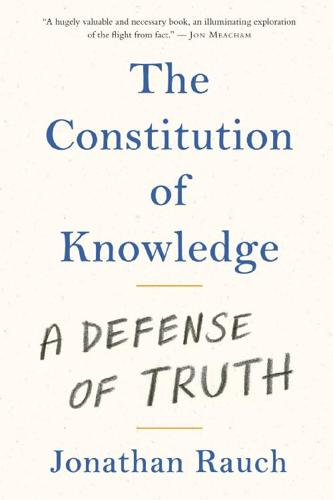
The Constitution of Knowledge: A Defense of Truth
by
Jonathan Rauch
Published 21 Jun 2021
In Britain’s North American colonies, a printer and journalist named John Peter Zenger, who was prosecuted by the crown for seditious libel, beat the charge by arguing that truth is a defense even when criticizing the government. Political liberalism was developing organically and creating facts on the ground, a process which would soon culminate in a revolutionary breakthrough in North America. In parallel, philosophers and practitioners laid groundwork for the Constitution of Knowledge. The Scottish philosopher David Hume, writing in the 1740s, completed the skeptical demolition of absolute certainty begun by Montaigne.
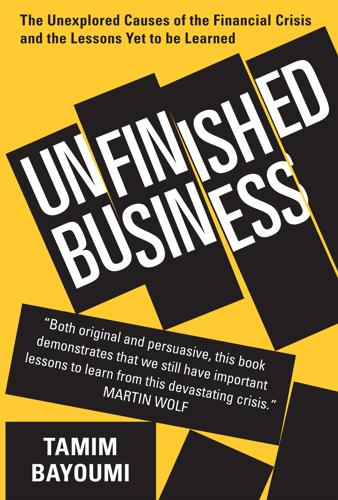
Unfinished Business
by
Tamim Bayoumi
Another objection is that monetary policy is the most flexible of policies and hence that intransigence by (say) fiscal policymakers could force the central bank into policies it would rather not follow. In terms of game theory, fiscal policymakers could end up using their inability to change plans quickly to force monetary policymakers to respond to facts on the ground. However, this is already the case in that fiscal policy is set less often than monetary policy, and hence monetary policy generally has to respond given a fiscal stance that has already been announced. It is difficult to see why organized policy discussion, in which the central bank could voice concerns about any problems created by fiscal and other policies, would not improve matters.
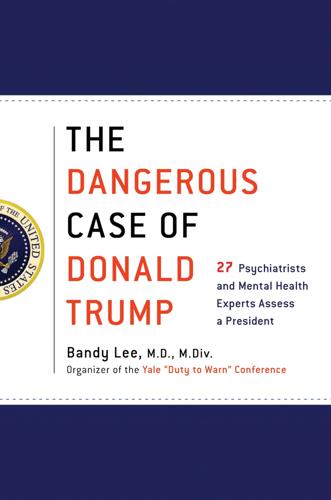
The Dangerous Case of Donald Trump: 27 Psychiatrists and Mental Health Experts Assess a President
by
Bandy X. Lee
Published 2 Oct 2017
He cultivated European allies and gained a strong endorsement—“It is exactly what I would have done”—from President Charles de Gaulle, the assertively nationalist leader of France and its greatest World War II hero. In cultivating his allies, President Kennedy was highly aware of the importance of his and the United States’ credibility. He was careful throughout the crisis to communicate honestly, with neither hyperbole nor minimization, about the facts on the ground and the U.S. response. Finally, President Kennedy was a cagy negotiator. In the course of negotiations, Premier Khrushchev raised a counterdemand that the United States remove its own Jupiter rockets from Turkey. This was especially frustrating because President Kennedy had previously recognized their obsolescence and very modest strategic value and so, sometime before the Cuban Missile Crisis, had directed that they be removed.
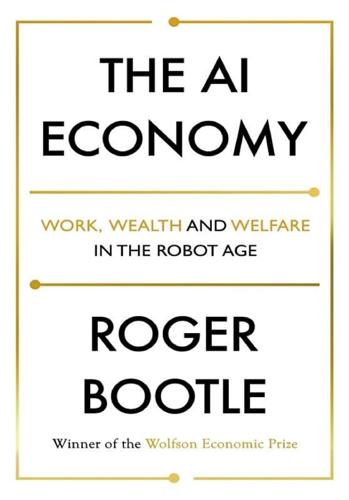
The AI Economy: Work, Wealth and Welfare in the Robot Age
by
Roger Bootle
Published 4 Sep 2019
Scholars seems united in admiration for the work Piketty has done to assemble data on a range of countries over such a long period. But few find his theory convincing. And nor do I. We do not need Piketty’s simple but potentially powerful theory to explain what has happened to inequality. What’s more, many of the facts on the ground seriously challenge his thesis. Accordingly, we can now leave Piketty to the economic historians to use as a database – and the foundation for umpteen keenly fought academic disputes. Jobs and pay So now we can turn our attention to the impact on the distribution of income of the AI revolution.
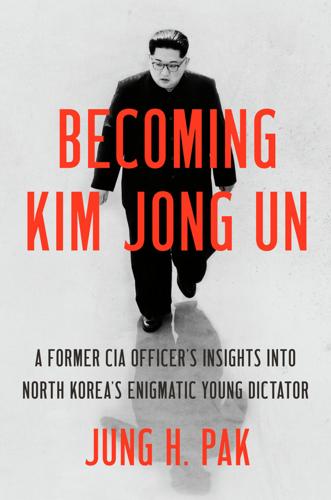
Becoming Kim Jong Un: A Former CIA Officer's Insights Into North Korea's Enigmatic Young Dictator
by
Jung H. Pak
Published 14 Apr 2020
Despite the harsh talk, Trump also said in May 2016 that he would have no problem speaking to Kim. Amid uncertainties about altered regional dynamics, resulting from the new leadership in the United States, Kim wasn’t about to sit around. As the new government in Washington sought to get its footing in the aftermath of an unexpected win, Kim went about laying out the facts on the ground. In his New Year’s speech, he set forth his successes and his intentions, fueling concerns and sparking speculation about how he might approach the era of Trump. Kim touted North Korea’s purported first hydrogen bomb test in September 2016, its fifth and most powerful test, which the regime at the time alleged had been of a “nuclear warhead that has been standardised to be able to be mounted on strategic ballistic rockets.”

Break Through: Why We Can't Leave Saving the Planet to Environmentalists
by
Michael Shellenberger
and
Ted Nordhaus
Published 10 Mar 2009
Two things stand out from Bullard’s lists. First, the majority of EJ groups do not work on nonpollution issues. WE ACT’s fetishization of diesel pollution and its lack of interest in other causes of asthma, including inadequate health care, is typical. Bullard’s seemingly expansive framework is simply not borne out by the facts on the ground. Second, it’s revealing that Bullard excludes in his definition the most important determinants of human health: diet, exercise, smoking, and alcohol. Such an exclusion is consistent with Bullard’s disparagement of risk assessment. [back] 43. On the dangers of fetishizing single causes, like diesel exhaust, Pamela Davidson (“Risky Business,” 99) concludes: Environmental justice research will have to move beyond a single substance methodology to capture the effects of synergies between chemical substances.

My Glorious Defeats: Hacktivist, Narcissist, Anonymous: A Memoir
by
Barrett Brown
Published 8 Jul 2024
That having been conveyed to the prosecutor, we were asked to come up with another charge that I felt comfortable pleading to, because of course they needed something to justify the original investigation. My lawyer Ahmed Ghappour came up with the idea for me to accept an “accessory after the fact” on the grounds that I’d made the call to Stratfor’s executives on behalf of the hackers, offering to redact any sensitive information that could have endangered its foreign informants; we could pretend that this constituted an effort to assist the hackers in avoiding detection, even though that made no sense given that the hackers weren’t going to contact Stratfor themselves and anyway could have easily done so without giving away their identities, since of course these guys actually communicate with all sorts of people all day and sometimes break into their computers without there being any means of tracing them.
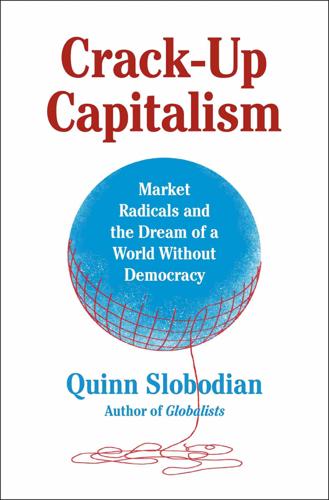
Crack-Up Capitalism: Market Radicals and the Dream of a World Without Democracy
by
Quinn Slobodian
Published 4 Apr 2023
Yet one of the successful examples he offered was telling: the state of Israel. This was indeed a reverse diaspora, organized through newspapers and texts that produced a kind of cloud country of a Jewish homeland through the media of the time. Kicked off by the publication of Theodor Herzl’s Jewish State in 1896, the Zionist plan translated only slowly into facts on the ground through small-scale acts of colonization, which were eventually accepted and given legitimacy by the dominant imperial powers of the day. But consider the consequences of this example. The land in Palestine was no more bare than anywhere else in the world, and it remains rent by competing historical claims over territory.

The Second World Wars: How the First Global Conflict Was Fought and Won
by
Victor Davis Hanson
Published 16 Oct 2017
Later Hitler confirmed his suspicion when he somehow sent considerable reinforcements under more trying conditions to Tunisia, much of them by air, to meet the Americans in November 1942 and early 1943. Rommel rightly believed that his supply dilemma had hinged on willpower, or perhaps on creating facts on the ground through spectacular victories that would force OKW to send help.20 The experience of all successful invading European captains in North Africa—whether Scipio Africanus’s invasion of Carthage in 203 BC, Gaius’s defeat of the Numidian king, Jugurtha (107–105 BC), or the Byzantine Belisarius’s destruction of the Vandal Empire in AD 528—hinged on relatively small armies advancing with secure supply routes, usually ensured by sea from Europe.
…
This was an extraordinary achievement, given that Britain had a continental army far smaller than those of either Germany, Russia, or the United States. Although Churchill may have despaired frequently—after the fall of France when an inglorious defeat seemed likely, the ignominious surrenders at Singapore and Tobruk, and in negotiations about the postwar world with undemocratic Joseph Stalin creating facts on the ground throughout Eastern Europe—he was the first Allied leader to see a way to beat Hitler and the only one to fight him from the beginning to the end. FRANKLIN ROOSEVELT, ON the other hand, approached the war as if it were another political contest to enter and win what, until December 1941, had been seen as someone else’s distant conflict.

The Idea of Israel: A History of Power and Knowledge
by
Ilan Pappe
Published 30 Apr 2012
To examine this will help us appreciate the distance the challengers had to travel within their own society. Paradoxically, this representation was accompanied by a strong belief in the importance of objective, empirical, scientific research. In confronting the idea, therefore, one either could claim that the facts on the ground did not match the self-congratulatory representation, or could arrive at a better understanding of how the same facts can be manipulated so as to produce differing narratives such as those formulated by the Zionists on the one hand and the Palestinians on the other. Zionism in this book appears as a discourse.

The Everything Store: Jeff Bezos and the Age of Amazon
by
Brad Stone
Published 14 Oct 2013
So that holiday, Wilke’s second one at the company, during the annual race to Christmas that the company internally referred to as the big push, Wilke started a series of daily conference calls with his general managers in the United States and Europe. He told his general managers that on each call, he wanted to know the facts on the ground: how many orders had shipped, how many had not, whether there was a backlog, and, if so, why. As that holiday season ramped up, Wilke also demanded that his managers be prepared to tell him “what was in their yard”—the exact number and contents of the trucks waiting outside the FCs to unload products and ferry orders to the post office or UPS.
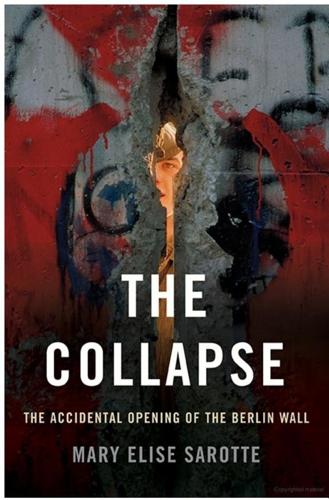
The Collapse: The Accidental Opening of the Berlin Wall
by
Mary Elise Sarotte
Published 6 Oct 2014
As his country finally gained the freedoms for which he had struggled, Wonneberger had to learn anew how to speak.184 Thanks to him and to the marchers of October 9, the regime was now facing a struggle of its own. On that night, there had been a yawning gap where orders from the center should have been. As one activist, Tobias Hollitzer, would later remark, the “only central decision . . . was the belated blessing of the facts on the ground that had already been created by the courage and peacefulness” of the protestors.185 The SED had to recover from its defeat in Leipzig and to regain control somehow. Krenz decided that the best way to begin doing so was to commence his coup against Honecker. Then Krenz would try to suppress the widespread desire for travel and emigration as well as the rising power of the peaceful revolution, hoping to be more successful than Honecker had been.
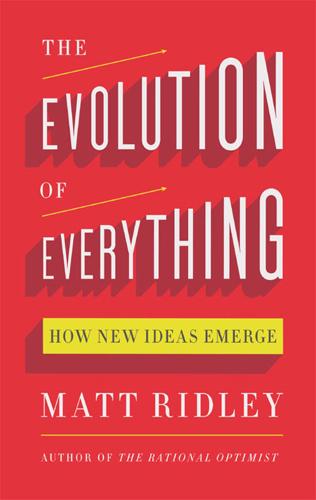
The Evolution of Everything: How New Ideas Emerge
by
Matt Ridley
It emerged in an iterative, evolutionary manner much like a language emerges.’ Trying to replace the common law with a rationally designed law is, he jests, like trying to design a better rhinoceros in a laboratory. Judges change the common law incrementally, adjusting legal doctrine case by case to fit the facts on the ground. When a new puzzle arises, different judges come to different conclusions about how to deal with it, and the result is a sort of genteel competition, as successive courts gradually choose which line they prefer. In this sense, the common law is built by natural selection. Common law is a peculiarly English development, found mainly in countries that are former British colonies or have been influenced by the Anglo-Saxon tradition, such as Australia, India, Canada and the United States.
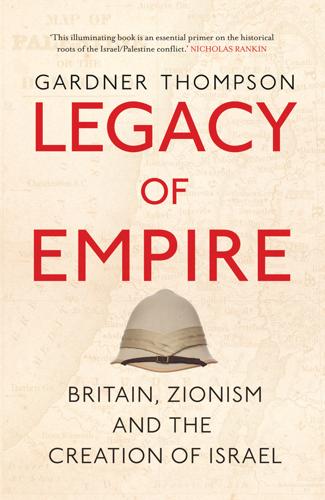
Legacy of Empire
by
Gardner Thompson
For the great majority of those who left their homes in Central and Eastern Europe, the Promised Land was – as long as it remained welcoming – America, not Palestine. Even so, emigration to Palestine was taking place long before the First World War. Jewish settlers, at the very heart of the Zionist project, began to change the facts on the ground. As the twenty-two-year-old David Ben-Gurion, himself among Jews recently arrived in Palestine, wrote to his father in 1909: ‘Settling the land – that is the only real Zionism. The rest is just self-delusion, idle chatter, and time-wasting.’42 The Zionist goal was indeed to acquire land for settlement.

Shielded: How the Police Became Untouchable
by
Joanna Schwartz
Published 14 Feb 2023
* * * — Defenders of qualified immunity have not been able to summon a reason why officers who violate the Constitution should be protected from liability simply because a court has not previously ruled nearly identical conduct to be unconstitutional. Instead, the strongest defenses of qualified immunity have been various predictions that the world would be worse off without it. But claims about the need for qualified immunity are unsupported by the facts on the ground. Although the Supreme Court and defenders of qualified immunity are quick to say that the doctrine protects officers from bankruptcy, settlements and judgments against officers are almost always paid by their employers. I studied police misconduct settlements and judgments in eighty-one jurisdictions across the country, over a six-year period, and found that officers paid just 0.02 percent of the more than $735 million that plaintiffs received.

Adriatic: A Concert of Civilizations at the End of the Modern Age
by
Robert D. Kaplan
Published 11 Apr 2022
Sometimes the most dangerous thing a writer can do is to describe what he sees in front of his face, since the very ideals and assumptions that many of us live by are dependent upon maintaining a comfortable distance from the evidence. For example, the world is simple in a place like Washington, where big abstract ideas about democracy obscure complex facts on the ground thousands of miles away. Thus, I have always believed that journalism is invigorated by a return to terrain, to the kind of firsthand, solitary discovery of a place best associated with old-fashioned travel writing. Travel writing has always meant much more to me than what appears in the Sunday supplements: rather, it can be a deft vehicle for rescuing geography and geopolitics from the jargon and obscurantism of academia at its worst.
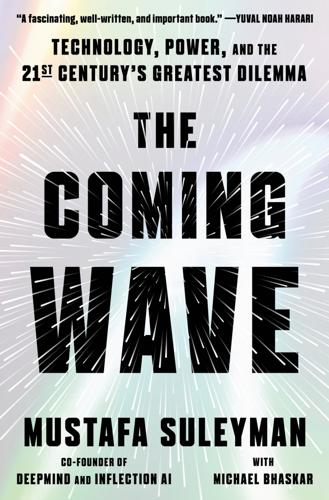
The Coming Wave: Technology, Power, and the Twenty-First Century's Greatest Dilemma
by
Mustafa Suleyman
Published 4 Sep 2023
I believed in local government—and the UN, for that matter; to an outsider, they seemed grand, effective institutions where we could work together to tackle the big questions. I thought, like many around that time, that globalism and liberal democracy were defaults, the welcome end state of history. Contact with reality was enough to show the gulf between hopeless ideals and the facts on the ground. Around that time, I also started to pay attention to something else then taking shape. Facebook was growing at unprecedented speed. Somehow, even as everything from local government to the UN seemed to operate at a glacial pace, this small start-up had grown to more than 100 million monthly users in just a few years.

Brazillionaires: The Godfathers of Modern Brazil
by
Alex Cuadros
Published 1 Jun 2016
Much as Eike touted an American culture of risk, Mauá held up the Anglo-Saxon line that self-interest was the engine of progress, and in this way too he went against the grain. The standard economic text in those days, the Viscount of Cairu’s Princípios de Economia Política, was supposed to be an adaptation of The Wealth of Nations, but Cairu jettisoned whatever concepts didn’t jibe with facts on the ground. Forget the invisible hand: “The sovereign of each nation must be considered the chief or head of a vast family, and thus care for all those therein like his children, cooperating for the greater good.” It was a “cordial man” approach to economic policy, state capitalism before the term ever existed.

The Village Effect: How Face-To-Face Contact Can Make Us Healthier, Happier, and Smarter
by
Susan Pinker
Published 30 Sep 2013
When fifteen-year-old Malala Yousafzai, an activist for girls’ education in Pakistan, was shot in the face by the Taliban in 2012, it seemed like universal education might be an intractable problem. The jubilant international response to Malala’s recovery and her continued activism haven’t altered the dire facts on the ground: Pakistan has the second highest number of unschooled children and, at fifty million people, one of the highest illiteracy rates in the world. Laptop programs haven’t solved the problem of access to education, as we discovered in Chapter 6. But a teacher’s proximity to students provides a hint at what works, for school attendance in general and for girls’ achievement in particular.
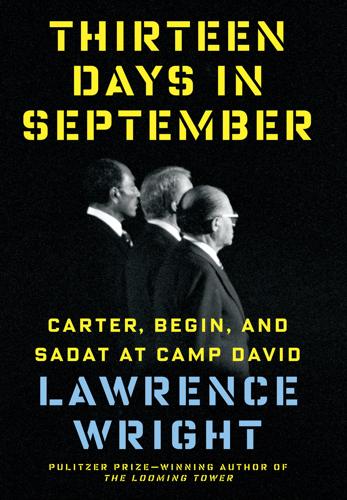
Thirteen Days in September: Carter, Begin, and Sadat at Camp David
by
Lawrence Wright
Published 15 Sep 2014
But any goodwill he might have accumulated with the Americans he promptly exploded when he endorsed a scheme by General Ariel Sharon to place a number of dummy settlements in Sinai—specifically, in places that the Israelis had previously pledged to restore to Egypt under a prospective peace agreement. The idea was to swiftly create “facts on the ground” in order to enhance Israel’s claim on the peninsula. The “settlements” were nothing more than phony water derricks and rusted old buses. If nothing else, Sharon argued, these props could be used as bargaining chips to preserve the actual settlements that Israel hoped to keep. It was a stunning misstep.
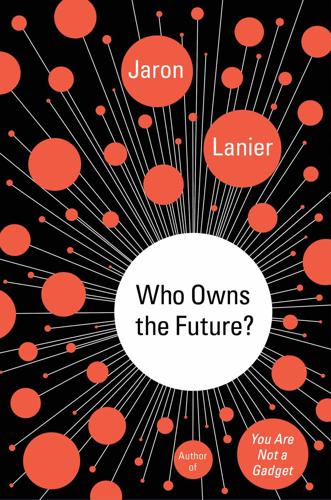
Who Owns the Future?
by
Jaron Lanier
Published 6 May 2013
But it is more than interesting if a technologist can manipulate urges and behaviors; it is a new world order. The actions of the technologist change events directly, not just indirectly, through discourse. To put it another way, the nontechnical ideas of scientists influence general trends, but the ideas of technologists create facts on the ground. PART FOUR Markets, Energy Landscapes, and Narcissism CHAPTER 10 Markets and Energy Landscapes The Technology of Ambient Cheating Siren Servers do what comes naturally due to the very idea of computation. Computation is the demarcation of a little part of the universe, called a computer, which is engineered to be very well understood and controllable, so that it closely approximates a deterministic, non-entropic process.
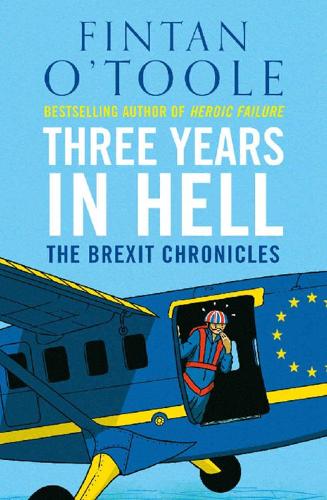
Three Years in Hell: The Brexit Chronicles
by
Fintan O'Toole
Published 5 Mar 2020
This is the tyranny of fact: there is nowhere in the world where two different customs and/or market regimes have a frontier across which trade flows without checks, controls and infrastructure. But all the energy among the Brexiteers has gone into trying to escape this inescapable reality. They have been in search of a magical technology that make the facts on the ground disappear. And ever since it became clear that this technology does not exist, the internal project has been what Whitehall officials privately call ‘keeping the corpse warm’. The corpse is now cold. Johnson’s proposals acknowledge that even if all the magical technology works, there will still be checks, controls and (implicitly) infrastructure.
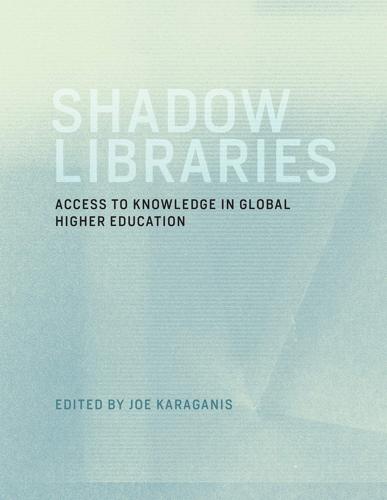
Shadow Libraries: Access to Knowledge in Global Higher Education
by
Joe Karaganis
Published 3 May 2018
E-book availability was correctly identified in 69 percent of the cases, while the share of false positives and negatives was around 15 percent for each. Since publisher-provided e-book availability data does not perfectly coincide with the date of data collection from Amazon, and includes other e-book providers besides Amazon, we concluded that the Amazon-gathered data adequately represents the actual facts on the ground in terms of theoretical availability, but overestimates actual availability in local, non-U.S. markets. 6 E-libraries are electronic text collections available through university libraries or publisher portals, such as Oxford Scholarship Online. The 60 percent number requires some methodological caveats.
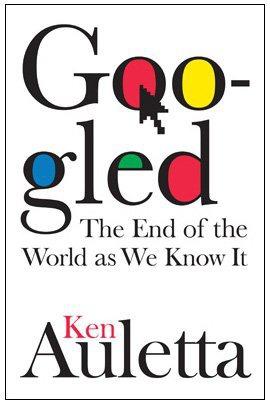
Googled: The End of the World as We Know It
by
Ken Auletta
Published 1 Jan 2009
Although Meeker gave an unremittingly bleak analysis of the American economy at large, she offered a euphoric analysis of the tech world’s “opportunities,” expressing her faith that YouTube would be able to make the abundant ad sales that had so far eluded them. To Doerr and others in the Valley, Meeker’s optimism seemed at odds with the facts on the ground. Layoffs spread even here, fueling talk of another dot-com bust. Intel and Cisco would report that their sales were heading south. Nokia predicted that global mobile phone sales would fall 10 precent in 2009, reversing a long trend. With PC sales slumping, Microsoft would cut five thousand jobs, 5 percent of its work force.
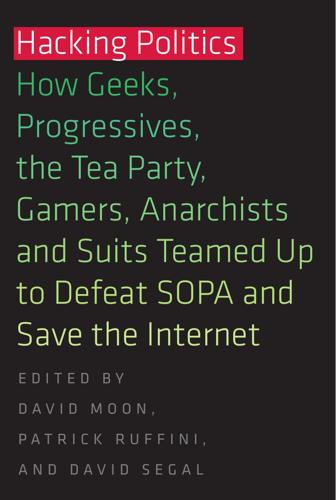
Hacking Politics: How Geeks, Progressives, the Tea Party, Gamers, Anarchists and Suits Teamed Up to Defeat SOPA and Save the Internet
by
David Moon
,
Patrick Ruffini
,
David Segal
,
Aaron Swartz
,
Lawrence Lessig
,
Cory Doctorow
,
Zoe Lofgren
,
Jamie Laurie
,
Ron Paul
,
Mike Masnick
,
Kim Dotcom
,
Tiffiniy Cheng
,
Alexis Ohanian
,
Nicole Powers
and
Josh Levy
Published 30 Apr 2013
Senate had any plans to take up the issue, and a White House statement served as a strong signal that the President had no intention of signing an election year bill that would alienate an increasingly important constituency, the tech community. The next day, Reid was compelled to address the issue on Meet the Press, biding his time and talking up the prospect of further compromise. Reid’s statement exemplified how legislative talk could so often be detached from facts on the ground. First, he suggested that California’s Dianne Feinstein, a PIPA cosponsor who nonetheless had barely uttered a word about it, was serving as a sort of emissary between the two great industries in her state. He then expressed hope for a Manager’s Amendment from Leahy that would make the bill palatable to all sides.
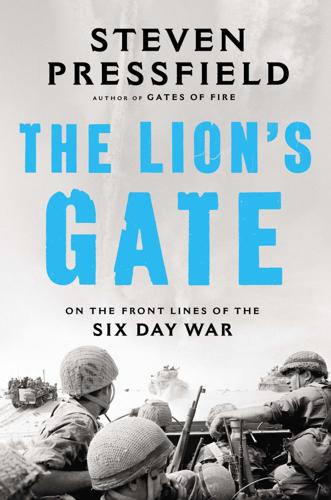
The Lion's Gate: On the Front Lines of the Six Day War
by
Steven Pressfield
Published 5 May 2014
Every soldier of spirit wished to serve under Sharon and to wear the red beret of the paratroopers. Second, the policy of reprisals kept the enemy on the defensive and bought time for the fledgling Israeli nation to put down roots. Sharon called this “practical Zionism.” He meant that, within the secure perimeter provided by our soldiers’ enterprise, our countrymen could create “facts on the ground”—farms and cities, schools and railroads, ports and highways that would in time come to be viewed, not only by the Arabs but by the world at large, as permanent and ineradicable. Sharon was a realist. He recognized, as did Ben-Gurion and Dayan, that the Arabs had as legitimate a claim to this land as we did, and that they possessed pride and courage and anger, against which no rejoinder existed except the sword.
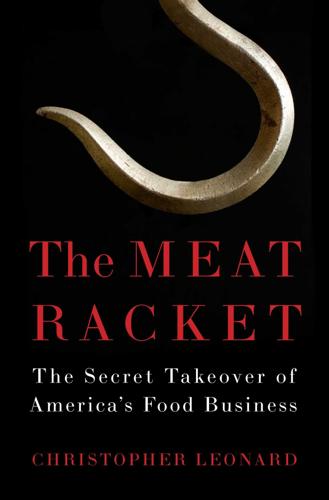
The Meat Racket: The Secret Takeover of America's Food Business
by
Christopher Leonard
Published 18 Feb 2014
Those around him could count on Moeller to boast about the swine division’s profits and growth prospects. There were plans to expand with new hog farms in states like South Dakota. Every month seemed to deliver better profits from hogs. But Jim Blair was unimpressed. Moeller seemed a little too eager to make his unit look good at the meetings, Blair thought. The facts on the ground seemed to say otherwise. Blair got the impression that Tyson’s swine division was juicing its profit figures in part by taking money out of the pockets of the hog farmers. The hog contracts had a number of provisions that docked farmers’ pay and dinged them for any losses in production. Even Tyson’s massive hog plant in Marshall, Missouri, didn’t give the company the scale it needed to compete against Smithfield.
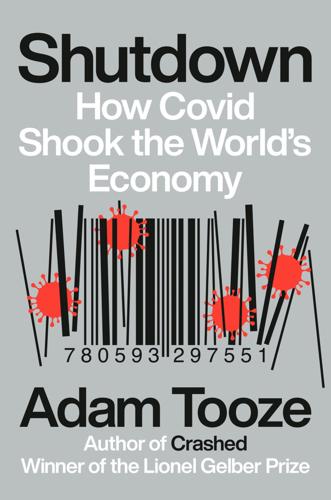
Shutdown: How COVID Shook the World's Economy
by
Adam Tooze
Published 15 Nov 2021
The CCP was indeed an ideological antagonist and its ambition was formidable, but was “containing” China a realistic twenty-first-century prospect, or was it a distorted echo of the Cold War with the Soviet Union? Was the aggressive way in which the Trump administration took up this historic challenge in 2020 a reflection of the facts on the ground in Asia, or did it have more to do with the mounting tension within the United States itself? The anti-China campaign of the Trump administration reached its high point in the summer of 2020 at an extraordinary moment in American public life. Against a backdrop of nationwide protests, sporadic rioting, and curfews across many American cities, senior figures in the Trump administration delivered a blazing denunciation not only of China’s communist regime, but of its American fellow travelers, including those in American business.

Worn: A People's History of Clothing
by
Sofi Thanhauser
Published 25 Jan 2022
The name was important, one executive said, “because it gave a personality to the system, so [employees] hate the system and not us.” * * * — The global supply chain that brings us our clothing can seem intimidatingly complex. But what if it isn’t? Clothing brands farm out the making of goods to whomever in the world can do it most cheaply, and then divorce themselves in the eyes of customers from the facts on the ground. That’s pretty simple. The complexity only comes in when brands really need it to: to prove how many layers removed they are from the human lives being touched—sometimes lost—as a direct result of their purchase orders. Western brands have come to prefer a model for ethical commitment, commonly enshrined in the “Corporate Responsibility Code” or the “Code of Conduct.”
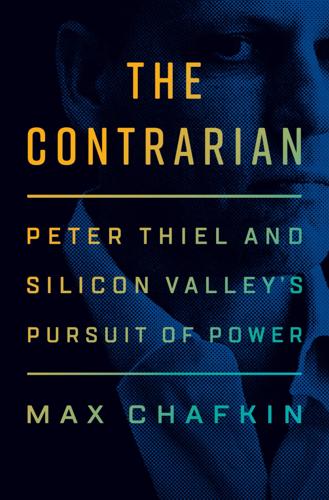
The Contrarian: Peter Thiel and Silicon Valley's Pursuit of Power
by
Max Chafkin
Published 14 Sep 2021
Schmidt laughed it off, saying he’d take that as a compliment, but Thiel’s broadsides continued for the next half hour. He said that Schmidt and his colleagues “like computers more than people, in many cases” and then suggested that Schmidt had inappropriately taken credit for the Arab Spring, the wave of revolutionary fervor that was sweeping the Middle East. “The actual facts on the ground are that food prices rose by 30 to 50 percent in the previous year and you basically had people who had become—you had desperate people who had become more hungry than scared, who revolted,” Thiel said. “Then Eric goes around and says, ‘Let them eat iPhones.’ ” Finally, Thiel focused his complaints on Google’s balance sheet, which showed that the company had $30 billion in cash but was out of good ideas for what to do with the money.

The Billionaire Raj: A Journey Through India's New Gilded Age
by
James Crabtree
Published 2 Jul 2018
Back in 2013, Ramesh had been India’s environment minister and a particular bête noire of the tycoons. He often blocked investments, including a number of major mining and power projects in forested areas. The tycoons pushed their luck, he argued, starting work without proper permission, with the aim of creating “facts on the ground” and assuming that their political connections would smooth over problems later. “You also had the prime minister, a man of great integrity, who kept talking about unleashing animal spirits,” he told me. “This just reinforced the sentiment among industrialists that they could do whatever they wanted.”

The Hype Machine: How Social Media Disrupts Our Elections, Our Economy, and Our Health--And How We Must Adapt
by
Sinan Aral
Published 14 Sep 2020
The amount of bot activity and the number of unique accounts spreading the disinformation were also statistically significantly higher for the Crimean mixed news stories than for all other verified mixed political news. In social media data, outliers like these typically signal a coordinated attempt to distort reality, an orchestrated effort to influence human thinking and behavior. With Russia claiming vociferously that Crimea desired accession, and with the facts on the ground being distorted by fake news, the Obama Doctrine in response to the annexation stopped short of intervening and imposed economic sanctions instead. And today Crimea is part of Russia. As dramatic as the Crimean disinformation campaign was, the social and economic impact of social media on our lives far outstrips any single geopolitical event.
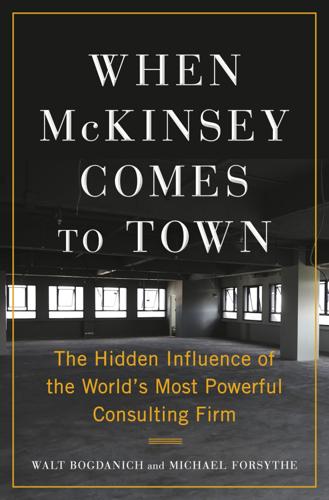
When McKinsey Comes to Town: The Hidden Influence of the World's Most Powerful Consulting Firm
by
Walt Bogdanich
and
Michael Forsythe
Published 3 Oct 2022
Such a pathway would require dramatic emissions reductions over the next ten years—starting now.” What companies cannot do, McKinsey says, is to engage in public relations, focusing on “feel-good initiatives” without really changing the behavior of a company, from climate change to mentoring women and minorities. “Our challenge to our clients is: how can you go from words on a page to facts on the ground? How do you move from branding and slogans to something that is lived in the day-to-day?” That was the challenge Gillian Tett, the moderator in Aspen, posed to Pinner. Given the urgency of the crisis, she asked a logical question: “Have you tried to take this to Washington? Have you tried to take it to the White House?”
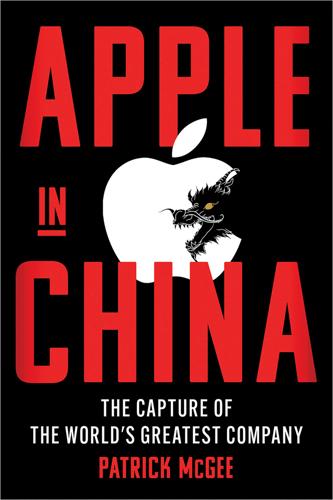
Apple in China: The Capture of the World's Greatest Company
by
Patrick McGee
Published 13 May 2025
A Communist society had loosened state controls, enabling human ingenuity to flourish; pockets of capitalism ushered in a wave of changes, rewarding people for hard work and creating a virtuous circle that gave rise to both supply and demand. Guthrie didn’t find this view wrong per se, but the absence of local context was painful for his sociologist brain. The narrative didn’t pay enough heed to facts on the ground. The “ruins” of China’s previous system had, he argued, shaped the new systems as they emerged. So Guthrie put special focus on Chinese culture and local institutions. What emerged was a nuanced view of a China in transformation. Western academics had a tendency to view China through their own lens.

Wall Street: How It Works And for Whom
by
Doug Henwood
Published 30 Aug 1998
For Keynes, the financial markets aren't neutral and efficient allocators of capital or the friends of social development, but rather irrational, destabilizing, and paradoxically conservative institutions that do more to expand rentier wealth than they do to nourish a broad and secure prosperity. Since, in his view, investment in real assets is the driving force of capitalist economies, and since the level and allocation of real investment depends heavily on the state of the financial markets, material progress is hostage to the whimsical forces of finance. facts on the ground Perhaps the best place to start this off-road tour is by exploring a fundamental social fact that efficient market theorists and Modigliani-Miller partisans have tried to finesse: financial investment and real investment WALL STREET are distinct activities undertaken "by different sets of people influenced by different sets of motives, each not paying very much attention to the other" (Keynes, CWV, p. 250).'

The Rights of the People
by
David K. Shipler
Published 18 Apr 2011
The concern was so urgent that agents invoked a FISA provision allowing secret searches to begin without a court order—and therefore with scant justification—provided a judge is notified within seventy-two hours. The investigation was then propelled into its own orbit with little gravitational pull from the facts on the ground. The FBI used FISA, not ordinary criminal warrants that would have authorized wiretapping, because it was convinced that it could not show a criminal violation by Mayfield. A senior attorney in the Justice Department disagreed, “stating that given the gravity of the Madrid bombings and the fingerprint identification of Mayfield, he believed the government could have obtained a criminal wiretap.”
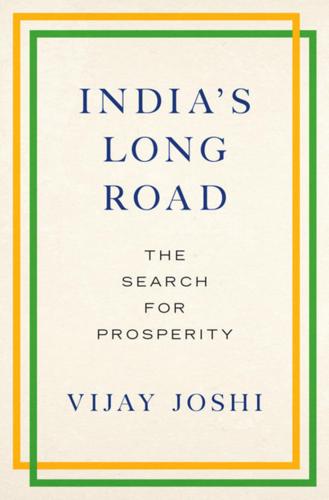
India's Long Road
by
Vijay Joshi
Published 21 Feb 2017
Whether public or private provision is more effective cannot be settled a priori. For example, a plausible candidate for state provision is primary education since ‘good education’ is not easy to specify in a contract, and it is also possible that state schools may be better able to attract selfless teachers. Whether these abstract points have merit depends on the facts on the ground. The facts may not be supportive. For example, in India, government schools deliver education of very poor quality (see Chapter 9). Another illuminating way to look at the difference between public and private provision is to think of it in relation to Albert Hirschman’s famous distinction between ‘exit’ and ‘voice’.26 In competitive markets, the threat of customer-exit helps to keep price low and quality high, and induces producers to pay close attention to consumer wants.

The Gamble: General David Petraeus and the American Military Adventure in Iraq, 2006-2008
by
Thomas E. Ricks
Published 14 Oct 2009
On the morning of Thursday, December 7, President Bush sparred with reporters over Iraq. One asked if he were in denial about the state of the war. “It’s bad in Iraq,” he replied with a glare. “Does that help?” Actually, it may have. Finally, and years later than he should have, the president was beginning to grapple with the ugly facts on the ground in Iraq. ONE WEEKEND AT AEI CHANGES THE WAR The 2003 invasion of Iraq arguably was conceived at the American Enterprise Institute, the right-wing think tank that is the mecca of American neoconservativism. Its boxy building across from the National Geographic Society’s headquarters in downtown Washington, D.C., was the roost of a variety of prominent hawks—Fred Kagan, Richard Perle, Gary Schmitt, Tom Donnelly, William Kristol.

After the Music Stopped: The Financial Crisis, the Response, and the Work Ahead
by
Alan S. Blinder
Published 24 Jan 2013
Elaborating a few months later, Bernanke observed that while the Fed has “two broad means of tightening monetary policy at the appropriate time—paying interest on reserve balances and taking various actions that reduce the stock of reserves,” it would “likely would use both in combination.” The Fed chairman did not, of course, indicate anything about exit dates, nor even about what facts on the ground might trigger exit. But he certainly suggested that he had a plan in mind and was waiting for the right moment to put it into effect. An interesting historical question, which Bernanke may never answer, is whether he actually felt the need to have an exit plan ready as early as mid-2009 or was just going through the motions to placate the Fed’s hawks—who were itching to exit.
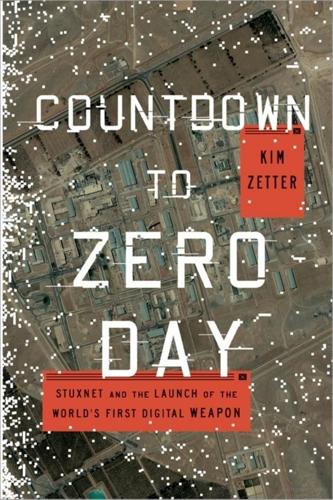
Countdown to Zero Day: Stuxnet and the Launch of the World's First Digital Weapon
by
Kim Zetter
Published 11 Nov 2014
“If you come out with a policy that subverts Microsoft certificates, subverts Windows Updates to spread malware, it’s difficult to get yourself to a position where cyberspace is safer, more secure and resilient,” he says. “In some ways I feel like the Fort Meade crowd are the Israeli settlers of cyberspace—it doesn’t matter what the official policy is, they can go out and they can grab these hills, and they’re changing the facts on the ground.… If we’re ever going to get defense better than offense, some things should be more sacrosanct than others.…[But] if we have a norm that it’s OK to go after these things, if we’re creating this crisis of confidence … that’s just going to bounce back at us.” Healey says a cavalier approach to offensive operations that erodes security and trust in critical systems creates the potential for the information highway to become dense with street skirmishes and guerrilla warfare.

Venice: A New History
by
Thomas F. Madden
Published 24 Oct 2012
Chief among these councillors were representatives from the new families, Orio Mastropiero, Sebastiano Ziani (the richest man in Venice), and Vitale Dandolo (the brother of the patriarch). The councillors advised caution. The reports they had received seemed fantastic, almost unbelievable. They urged the doge to dispatch envoys to Constantinople to ascertain the facts on the ground. If the reports were true, the envoys should assess the damage, inquire as to Manuel’s reasons for inflicting it, and demand release of the hostages and the restoration of their property. The doge agreed to follow this cautious, careful approach, but events soon veered out of his control.

Active Measures: The Secret History of Disinformation and Political Warfare
by
Thomas Rid
When social media users gather in the streets following a bogus event invitation, the demonstration is real. When readers start using racial epithets offline, their views are real. These measures are active, in the sense that operations actively and immediately change views, decisions, and facts on the ground, in the now. Second, disinformation works against itself, and again in unexpected ways. Intelligence agencies and other disinformation actors were, again and again, affected by their own constructions. It’s not that analysts simply believed their own lies; it’s that operators, driven by professional education as well as bureaucratic logic, tended to overstate rather than understate the value of their own disinformation work.

Army of None: Autonomous Weapons and the Future of War
by
Paul Scharre
Published 23 Apr 2018
Often, the correct decision in any given moment depends not on rigid adherence to guidance, but rather on understanding the intent behind the guidance. Militaries have a concept of “commander’s intent,” a succinct statement given by commanders to subordinates describing the commander’s goals. Sometimes, meeting the commander’s intent requires deviating from the plan because of new facts on the ground. Humans are not perfect, but they are capable of using their common sense and better judgment to comply with the intent behind a rule, rather than the rule itself. Humans can disobey the rules and in tense situations, counterintuitively, that may be a good thing. At the heart of the matter is whether more flexibility in how subordinates carry out directions is a good thing or a bad thing.
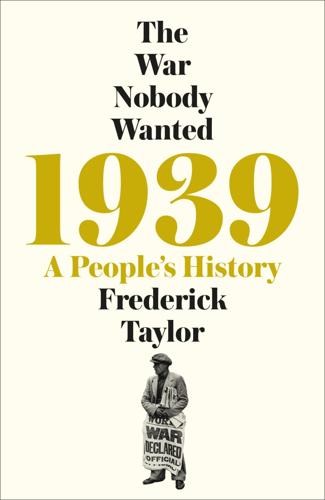
1939: A People's History
by
Frederick Taylor
Published 26 Jun 2019
Before the Western allies knew it, Germany and Poland would be at war over what, on the face of it, was a relatively obscure technical matter. Within weeks, while the world was still puzzling as to the rights and wrongs of the argument, Poland would be defeated. Britain and France would be faced with ‘facts on the ground’ – facts over which, Hitler believed, they would not be prepared to plunge the entire Continent into war.18 The British assurance to Poland, after all, only pledged to defend the country’s ‘independence’; it did not guarantee its borders. In the past few weeks, the Chamberlain government had been pursuing a dual strategy, pursuing rearmament and conscription while at the same time trying to reopen negotiations with Germany, which might conceivably involve the Poles’ agreeing to a territorial compromise regarding Danzig.

Good Economics for Hard Times: Better Answers to Our Biggest Problems
by
Abhijit V. Banerjee
and
Esther Duflo
Published 12 Nov 2019
For him, channeling public funds into regions doing poorly is throwing good money after bad. Blighted towns are meant to shrink while others take their place. It is the way of history. What public policy needs to do is to help people move to the places of the future.56 This analysis seems to give too little weight to the facts on the ground. As we know, the same reasons that make clusters develop also mean they fall apart quickly. Theoretically, the obvious response to this wholesale unwinding ought to be for a lot of people to leave, but as we saw already, they don’t. At least not nearly fast enough. Instead, when their county was hit by the China shock, fewer people got married, fewer had children, and of the children who were born, more were born out of wedlock.

Fancy Bear Goes Phishing: The Dark History of the Information Age, in Five Extraordinary Hacks
by
Scott J. Shapiro
Not every hack of one state by another is legal according to international law. We will later discuss cyber-conflict—or, as it is often called, cyberwar. In these cases, states don’t merely seek and collect information about matters of national security. They degrade their rivals’ systems to change facts on the ground—e.g., disabling air defense systems, crashing their power grid, altering official records, or releasing classified information. If these actions are illegal, retaliation may be appropriate. That global upcode distinguishing espionage and war explains, as we saw, why the FBI did not react to the 2015 DNC hack by Cozy Bear with greater alarm.

The River of Lost Footsteps
by
Thant Myint-U
Published 14 Apr 2006
Many would prefer to keep the West at arm’s length and deal only with China and perhaps a few other neighbors, worried of the dangers to the status quo inherent in allowing foreign businesses and foreign tourists to descend in large numbers and (to borrow a phrase from a different conflict) create new facts on the ground. What is sometimes hard to perceive from the outside is just how damaging forty years of isolation—in particular, isolation from the West and the international scene—has been to those trapped inside. Trade with China and a few other (still developing) economies is no substitute for renewed contacts with people and places around the world.
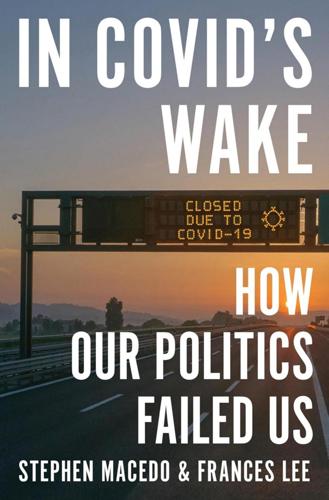
In Covid's Wake: How Our Politics Failed Us
by
Stephen Macedo
and
Frances Lee
Published 10 Mar 2025
Other members of the Joint Mission (identified as “Tim and Chikwe”) apparently pushed back, asking Aylward to “dial it back a bit for a public audience and at least hint to shortcomings.”46 Although there was a need for the ongoing cooperation of Chinese officials, WHO clearly failed in its duty to provide the world with an accurate assessment of facts on the ground in Hubei Province. And yet the delegation drew sweeping conclusions about the policies that governments all around the world should adopt during the pandemic. It is hard to understand how scientists could have accepted China’s narrative about Wuhan with so little skepticism. Epidemiologists would have known from history that pandemics unfold in waves.

The Illegals: Russia's Most Audacious Spies and Their Century-Long Mission to Infiltrate the West
by
Shaun Walker
Published 15 Apr 2025
The next morning, a Directorate S man named Andrei came to lambaste Rudi about his failures in the field. Andrei asked Rudi why his report had claimed there was no chance that progressive forces would emerge victorious in Chile, accusing him of shoddy analysis and an overly pessimistic viewpoint. Rudi was right in his assessment, but the Center was often reluctant to accept the facts on the ground when they were politically inconvenient. Rudi told Andrei that he was an idiot who had no understanding of what was happening in Chile. Andrei moved on to Rudi’s failure to penetrate the Hudson Institute, accusing the illegal of being more interested in pursuing the American dream than in real intelligence work.
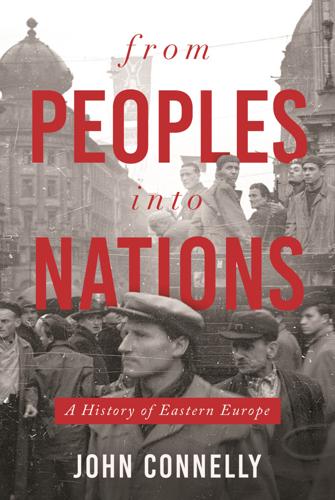
From Peoples into Nations
by
John Connelly
Published 11 Nov 2019
Though the consummation of unity in the fall of 1918—made urgent by the collapse of Habsburg institutions—had indeed been rushed, Slavic intellectuals going back to Jan Kollár and his friend Ljudevit Gaj had been planning some kind of Czechoslovak and Yugoslav unity for generations, most recently in the committees created in Paris in 1915. Yet the men on these committees had not only debated and prepared the postwar orders, they also created facts on the ground, locking in decisions about state formation that bypassed the will of millions of East and Central Europeans. The members of these committees called themselves advocates of popular self-rule, in effect liberals, but they also feared that the new states might not stand a chance if their citizens were actually asked whether they wanted them.
…
Hilberg, Destruction, 32 and passim. 6. Jean Ancel, “The German Romanian Relationship and the Final Solution,” Holocaust and Genocide Studies 19:1 (2005), 252. 7. Pavelić’s deputy Dido Kvaternik doubted as early as July 1941 whether Germany would win the war and became all the more determined to create facts on the ground that could not be nullified. Tomasevich, War and Revolution, 408. 8. Hannah Arendt, Elemente und Ursprünge totalitärer Herrschaft (Munich, 2006), 624. 9. Janina Bauman, Winter in the Morning: A Young Girl’s Life in the Warsaw Ghetto and Beyond (New York, 1986). 10. The total deaths in the ghettos has been estimated at half a million.

The Oil and the Glory: The Pursuit of Empire and Fortune on the Caspian Sea
by
Steve Levine
Published 23 Oct 2007
The worried Kazakhs hoped that this would win them favor with Deuss and Moscow and somehow open up more room for Tengiz exports in the Russian network. It was a vain hope.) The Dutchman could relish the fact that his plan did not require Chevron’s participation. But the important point was how it would change the facts on the ground. He would end up in possession of 155 miles of high-capacity pipeline leading directly to Novorossiysk. In the years ahead, Chevron would need just such a connection to pump its Tengiz crude the final distance to the Black Sea—and Deuss would be waiting there. He still held the exclusive rights to build the oil transportation system from Tengiz and would now have the final stretch of that line already built.
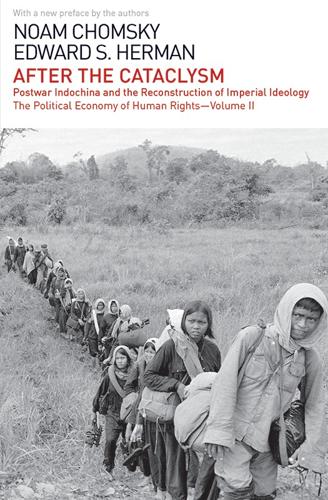
After the Cataclysm
by
Noam Chomsky
Published 17 Dec 2014
We know of few people, in fact, who have offered more positive comments than Ponchaud himself does, in his discussion of the emphasis on self-reliance, the dignity of labor, the “new mentality” with its “spirit of responsibility” and “inventiveness,” etc. But to fall under Ponchaud’s injunction or Shawcross’s obviously false claim, a person would have to both agree that millions have died at the hands of the regime and justify this fact on the grounds of his social theories. We seriously doubt that any such person exists. All of this is simply another of the desperate efforts to create an opposition, which we have observed throughout this review. In fact, there is a different interpretation of Ponchaud’s comment and Shawcross’s elaboration which can be justified, though one at variance with their intention.

The Rough Guide to Jerusalem
by
Daniel Jacobs
Published 10 Jan 2000
They also extended Jerusalem’s municipal boundaries as far as Bethlehem to the south and Ramallah to the north, and 05 Jerusalem contexts 265-290.indd 272 18/06/09 2:56 PM Jewish settlements c onte x t s | A short history of Jerusalem The first Jewish settlements east of the Green Line were established a year after the Six Day War, and were state-sponsored, despite Israel being a signatory to the Fourth Geneva Convention which rules them illegal. Most were placed on high ground around East Jerusalem, such as at Gilo and East Talpiot to the south, and French Hill and Ramot Eshkol to the south, to reinforce Israel’s case for sovereignty with “facts on the ground”. Modern and well provided for, the settlements are a world apart from the surrounding Palestinian neighbourhoods. The 1991 occupation of homes in Silwan (see p.117), marked a new type of settlement. As in the Old City’s Muslim and Christian quarters, Jewish individuals and organizations, rather than the Israeli state, started taking over homes previously occupied by Arab families.
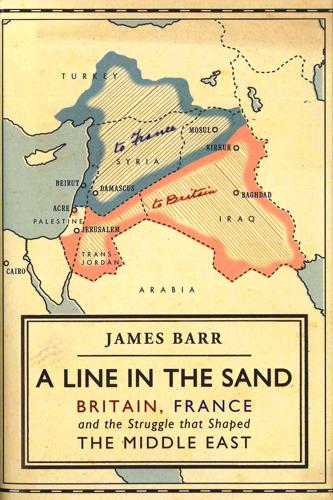
A Line in the Sand: Britain, France and the Struggle for the Mastery of the Middle East
by
James Barr
Published 15 Feb 2011
‘We must never forget that, internationally, the French are a grasping people,’ said Cecil, ‘and we shall have a much better chance of getting reasonable terms out of them if they come to us in the first instance to get something which they want.’³² Cecil’s aim, with which Lawrence would have wholeheartedly agreed, was to create ‘facts on the ground’ that would render the Sykes–Picot agreement irrelevant. Lawrence’s attack on Dara, which fitted with this goal, started on 16 September 1918, three days before Allenby’s own advance began. It formed the tactical climax of the Arabs’ campaign. With a thousand tribesmen on camels, led by him and Stirling, and a handful of other British colleagues in Rolls-Royce armoured cars, he cut the railway to the west and south of the town by destroying railway bridges.
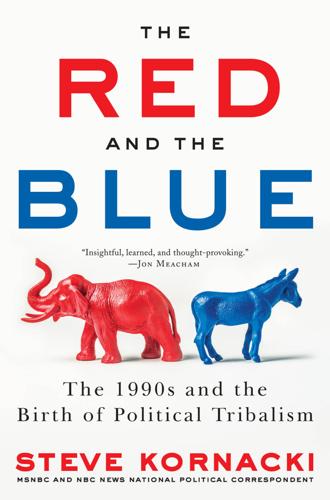
The Red and the Blue: The 1990s and the Birth of Political Tribalism
by
Steve Kornacki
Published 1 Oct 2018
The impetus went beyond the simple fact of accelerating deficits, though those numbers alone could feel staggering. In the first two centuries of its existence, America had accrued just under one trillion dollars in debt; since 1980, that figure had more than quadrupled. Interest payments on that debt were eating up an ever-larger share of federal spending. There were some new facts on the ground, though. People weren’t quite feeling it yet, but the lousy economy that had played such a decisive role in Clinton’s election was already revving to life. The first signs came just before the election, too late to do Bush any good, but just in time to rebalance the incoming president’s priorities.
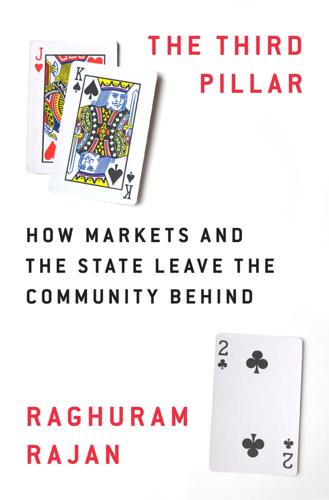
The Third Pillar: How Markets and the State Leave the Community Behind
by
Raghuram Rajan
Published 26 Feb 2019
Typically, any would-be leader has to bring together a team of key players in the community, such as the bureaucracy, the political establishment, business leaders, union leaders, church leaders, respected individuals, and the leaders of voluntary organizations, and unite them with a vision for change. Any such vision has some constants, but the path to it is rarely clear or static. Good leaders continuously adjust their strategies to the facts on the ground, taking advantage of any opportunities that come their way. The vision often has to be sold hard because it is rarely self-evident—if the path to revival were so obvious, would the community not already have embarked on it? In a failing community, it is possible that the usual resistance to new ideas or change is weaker, and key players care less about preserving their own turf than about avoiding collective extinction.
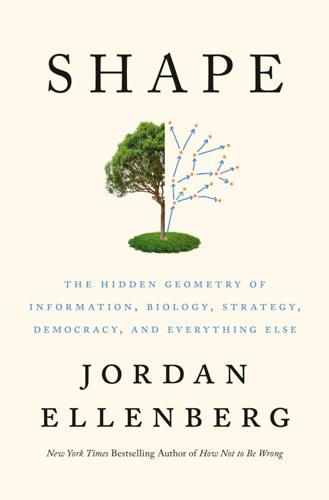
Shape: The Hidden Geometry of Information, Biology, Strategy, Democracy, and Everything Else
by
Jordan Ellenberg
Published 14 May 2021
There’s a long and unimpressive tradition of mathematicians approaching the problem of districting as an exercise in pure geometry, asking questions like “How can we cut up Wisconsin along perfectly straight lines such that the resulting polygonal regions have equal population?” You can do that—but you shouldn’t, because you’ll get districts that have nothing to do with the real political facts on the ground. Those districts might have agreeable geometric properties, but they’ll cut cities and neighborhoods in half, and cross county lines, which, in Wisconsin and many other states, is a constitutional no-no unless you have to do it to make the districts equal in population. On the other hand, when lawyers and politicians think about redistricting while neglecting the mathematical strand, the result of their work will be no better; and that, by and large, is exactly how these issues have been addressed until recently.
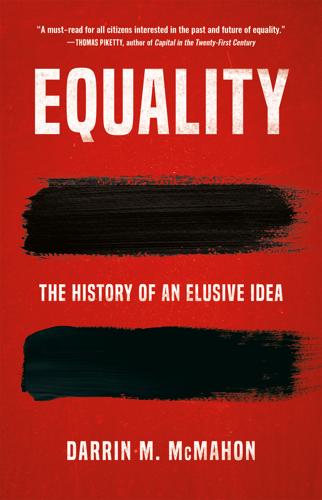
Equality
by
Darrin M. McMahon
Published 14 Nov 2023
A massive literature on the subject has emerged in recent years, with revealing titles and subtitles: “Ten Thousand Years of Inequality” or “Violence and the History of Inequality from the Stone Age to the Twenty-First Century.” Commentators now speak of the rise of an “inequality industry” housed in well-funded think tanks and NGOs, where policy analysts focus on the problem with the best of intentions, issuing yearly “inequality reports.” They are driven to do so by facts on the ground. Scarcely a week goes by without some new and startling revelation: that income and wealth inequality in the United States have approached the highest levels in its history; that almost half the world’s wealth is owned by just 1 percent of the world’s population; that the three richest men in America possess more wealth than the poorest 50 percent.1 Such headline-making revelations are embedded in powerful long-term trends.
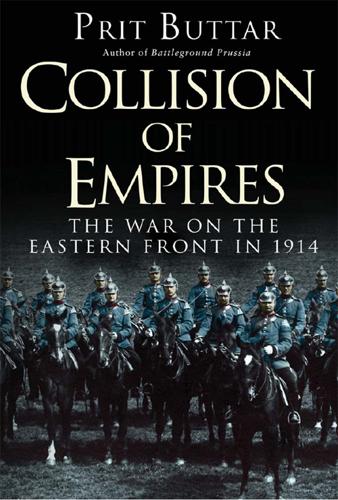
Collision of Empires: The War on the Eastern Front in 1914
by
Prit Buttar
Published 19 Jun 2014
The orders issued by the army commander and the corps commander during those memorable days – ‘The more sweat, the less blood’ and ‘Victory for the Army depends on your legs’ – speak for themselves.11 More than one officer gave testimony similar to this, but none of it was backed up by what actually happened: the formations of First Army moved slowly and cautiously. Regardless of whether the Russian First Army could have pressed forward more energetically, given its supply problems, the facts on the ground were that the retreating Germans came under no significant pressure. Ludendorff and Hindenburg decided to screen Rennenkampf with only 1st Cavalry Division, Brodrück’s division created around the Königsberg garrison, and two Landwehr brigades. XVII Corps and I Reserve Corps, which had been allowed to rest for the day, were ordered to press on.
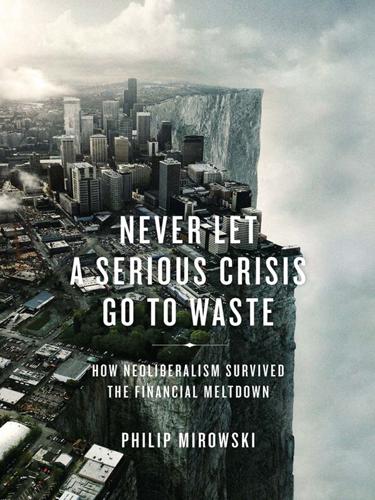
Never Let a Serious Crisis Go to Waste: How Neoliberalism Survived the Financial Meltdown
by
Philip Mirowski
Published 24 Jun 2013
Everything that actually happened, from the waves of neoliberal deregulation to the ratings hand jive to the whitewash of crude evasion of existing rules as financial “innovation” to accounting travesties to outright fraud leave no trace in the model: when in doubt, blame the victims. This is trumpeted to the world as neoclassical economics getting more true to the facts on the ground. In the Odyssey, Proteus assumed a plethora of shapes to escape Menelaus; in the EMF, “information” had to be gripped tight by neoclassical theory, because it kept squirming and changing shape whenever anyone tried to confine it within the framework of a standard neoclassical model. Few have been sensitive enough to the struggle to attend to its twists and turns, but for present purposes it will be sufficient that three major categories of cages to tame the beast have been information portrayed as “thing” or object, information reified as inductive index, and information as the input to symbolic computation.66 For numerous considerations here bypassed, they cannot in general be reduced one to another.
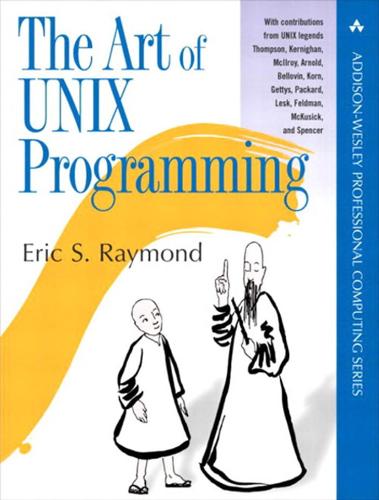
The Art of UNIX Programming
by
Eric S. Raymond
Published 22 Sep 2003
The merged standard became Single Unix Standard version 1. It was followed in 1997 by a version 2. In 1999 X/Open absorbed the POSIX activity. In 2001, X/Open (now The Open Group) issued the Single Unix Standard version 3. All the threads of Unix API standardization were finally gathered into one bundle. This reflected facts on the ground; the different varieties of Unix had re-converged on a common API. And, at least among old-timers who remembered the turbulence of the 1980s, there was much rejoicing. The Ghost at the Victory Banquet There was, unfortunately, an awkward detail — the old-school Unix vendors who had backed the effort were under severe pressure from the new school of open-source Unixes, and were in some cases in the process of abandoning (in favor of Linux) the proprietary Unixes for which they had gone to so much effort to secure conformance.
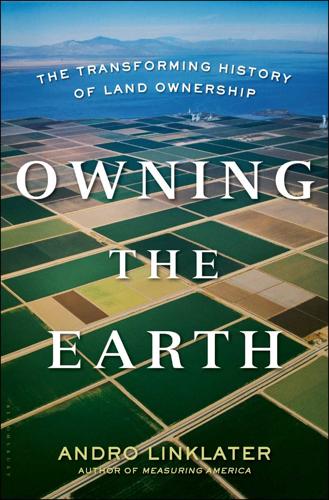
Owning the Earth: The Transforming History of Land Ownership
by
Andro Linklater
Published 12 Nov 2013
Over time his family gradually winkled out all the tenants, and when the Palmers decided to sell just one of the three manors in 1604, the price was £4,600, a profit of more than 1,000 percent. The financial gains to be made from displacing older rights to ownership of the earth ensured that Palmer was neither the first nor the most brutal creator of new facts on the ground. So many peasants were driven off the manors that once supported them, they were deemed a menace to England’s emergent property-owning society. New legislation condemned homeless people without means of support as “rogues and vagabonds” who were liable to branding with a red-hot iron if found begging in the highway.
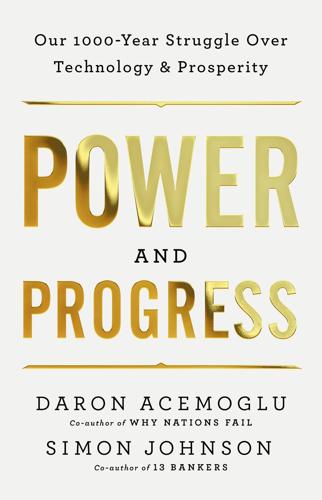
Power and Progress: Our Thousand-Year Struggle Over Technology and Prosperity
by
Daron Acemoglu
and
Simon Johnson
Published 15 May 2023
The tale of two canals illustrates the most pernicious aspect of this dynamic. To Panama, Lesseps brought the same beliefs, the same French expertise and capital, and essentially the same institutional support from Europe. But this time he failed to understand what was needed, and he resolutely refused to update his plans in the face of facts on the ground that contradicted his original view. Lesseps’s sensibilities were remarkably modern in some regards. His penchant for big projects, his techno-optimism, his belief in the power of private investors, and his indifference to the fate of all of those who were voiceless would put him in good company with many contemporary corporate boardrooms.
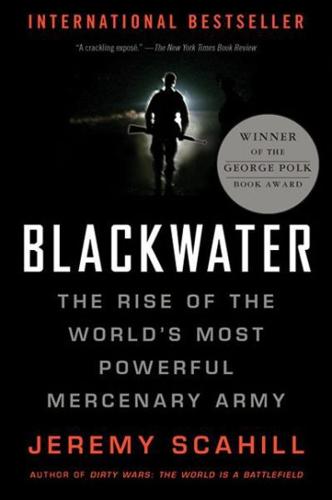
Blackwater: The Rise of the World's Most Powerful Mercenary Army
by
Jeremy Scahill
Published 1 Jan 2007
Change the channel to a legitimate, authoritative, honest news station.” Kimmitt declared, “The stations that are showing Americans intentionally killing women and children are not legitimate news sources. That is propaganda, and that is lies.”46 Dan Senor, Bremer’s senior adviser, asserted that Al Jazeera and Al Arabiya “are misreporting facts on the ground and contributing to a sense of anger and frustration that possibly should be directed at individuals and organizations inside of Fallujah that mutilate Americans and slaughter other Iraqis rather than at the Coalition.”47 On April 15 Defense Secretary Donald Rumsfeld echoed those remarks in still harsher terms, calling Al Jazeera’s reporting “vicious, inaccurate and inexcusable.”48 A reporter asked Rumsfeld if the United States had a “civilian casualty” count.
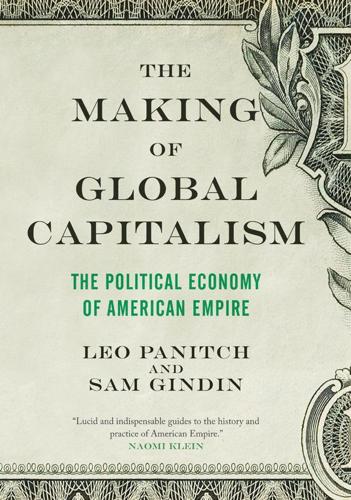
The Making of Global Capitalism
by
Leo Panitch
and
Sam Gindin
Published 8 Oct 2012
Yet not the least difference between these lay in the space it gave white farmers to infiltrate the frontier in a “chaotic and headlong process” that sustained, and often invited, the expansion that occurred through purchase and conquest by the federal government. After establishing settlements as facts on the ground—regardless of native treaty rights, or imperial French or Spanish ones—they agitated for their incorporation by the federal government as new states.28 And state “rights” within the federation meant a lot.29 They were strong enough to eventually produce a civil war; and it was self-government at this level that lay at the heart of the localist democracy that commentators from Hegel and de Tocqueville to Marx all noted as so distinctive of the American state.30 But this does not mean that the federal government was unimportant—far from it.

Spillover: Animal Infections and the Next Human Pandemic
by
David Quammen
Published 30 Sep 2012
“So when you do introduce the virus again,” Plowright said, describing the godlike role of the modeler, “you get a much bigger outbreak.” This is where the Christmas-light metaphor fails to serve, because one light suddenly glows like a supernova among ordinary stars. Plowright of course was working with numbers, not analogies. But her numbers reflected roughly this scenario. The relevance of such modeling to the facts on the ground is that Australian populations of flying foxes have become more isolated in recent decades. “The east coast of Australia used to be one big contiguous forest,” she told me, “and so you had bat populations pretty evenly dispersed along the coastline.” Their roosting aggregations, in the old days, were relatively mobile.

The Marshall Plan: Dawn of the Cold War
by
Benn Steil
Published 13 Feb 2018
This position is more plausible, particularly in regards to Clay—a man who preferred to bulldoze barriers, whether they be French or Russian, than maneuver around them. The Soviets had, as Kennan had predicted, shown themselves uninterested in reasoned compromise. They were too suspicious of the West. Clay, Lippman, and other critics of “Mr. X” were now adapting to the new facts on the ground. The third explanation is the most compelling: that Kennan was, in spite of his writings, never comfortable with the military as a tool of peacetime diplomacy. He reveled in highlighting logical failings in others, but recoiled at seeing his own logic acted upon. Kennan now argued that democracies were ill-suited to the use of armed forces “tactically” in peacetime.
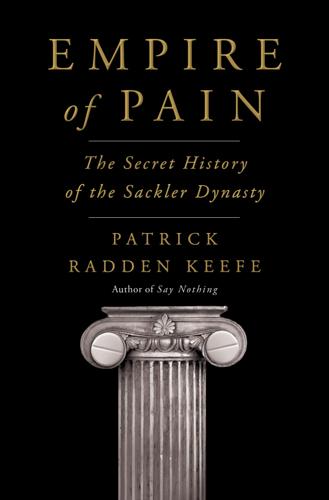
Empire of Pain: The Secret History of the Sackler Dynasty
by
Patrick Radden Keefe
Published 12 Apr 2021
In theory, Purdue was in trouble and would have to recall the drug and start all over again, following the rules this time, with a New Drug Application, an extensive back-and-forth with the agency, approval (if they were lucky) and then a launch meeting. But by blithely upending this process and selling their painkiller without approval, Purdue had created new facts on the ground. There were cancer doctors now—and cancer patients, lots of them—who had come to depend on MS Contin for relieving pain. The FDA’s commissioner, Frank Young, worried that with so many patients already taking the drug, it might be damaging to abruptly yank this course of therapy. Udell and his colleagues argued that this was all just a misunderstanding and they were never obliged to secure approval for MS Contin, because really it was only morphine.

Homeland: The War on Terror in American Life
by
Richard Beck
Published 2 Sep 2024
As for Biden’s insistence that “we need to renew our resolve to pursue this two-state solution,” there are good reasons not to be optimistic, even beyond America’s record of bias and insincerity in attempting to guide prior rounds of negotiations. Israel has a long history of establishing “facts on the ground” even when it knows the United States might not approve of its actions—a good pre–October 7 example is its relentless expansion of settlements in the West Bank—and then waiting patiently for the United States to decide that it can live with those facts after all. How much can a weeklong humanitarian pause matter if those who receive the aid are then immediately subjected to new rounds of bombing?
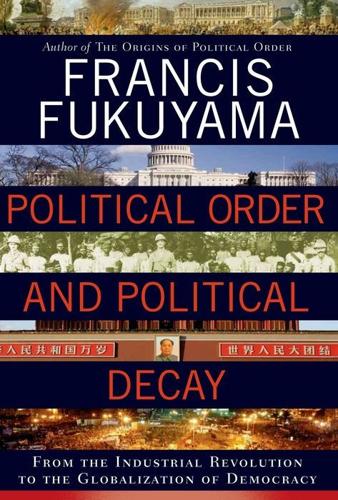
Political Order and Political Decay: From the Industrial Revolution to the Globalization of Democracy
by
Francis Fukuyama
Published 29 Sep 2014
British indirect rule in Africa was in fact an early version of this “good enough” governance strategy. Lugard and other administrators made a virtue of necessity and recognized that they had neither the resources nor the manpower to rule their African colonies the way they ruled Hong Kong and Singapore, and therefore sought to make use of as many local traditions and existing facts on the ground as possible. As we saw, the French, though espousing a very different policy of direct rule and assimilation, ended up in much the same place as the British. As we have seen, indirect rule had many pitfalls and often led to unanticipated and undesirable consequences. In the first place, the local knowledge requirements were huge and often overwhelmed the capabilities of the foreign administration.
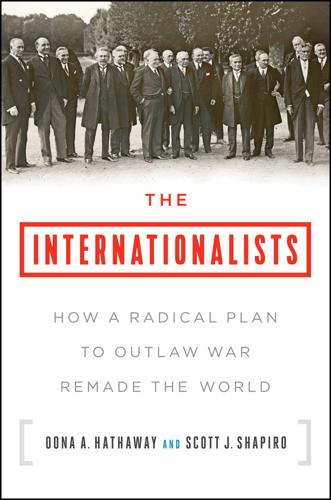
The Internationalists: How a Radical Plan to Outlaw War Remade the World
by
Oona A. Hathaway
and
Scott J. Shapiro
Published 11 Sep 2017
Coastal states such as Brunei, Malaysia, the Philippines, Taiwan, and Vietnam point to their own spotty and incomplete historical records to establish their claims to the Paracel Islands, the Pratas Islands, Scarborough Shoal, and the Spratly Islands, among many others. On most of these tiny bits of land, there were—until recently—no structures, no industry, no inhabitants, and little plant or animal life. Thus China’s building campaign on contested reefs and rocks is an undisguised bid to create facts on the ground that the other claimants cannot match. Until recently, this campaign over specks of land would have appeared the height of foolishness. Peace treaties, for example, frequently failed to mention all but the largest islands. At the close of the Sino-Japanese War of 1895, the Treaty of Shimonoseki provided that China ceded to Japan “the island of Formosa [Taiwan] together with all islands appertaining or belonging to said island of Formosa.”13 Which islands, precisely, appertained or belonged to Formosa was not specified.
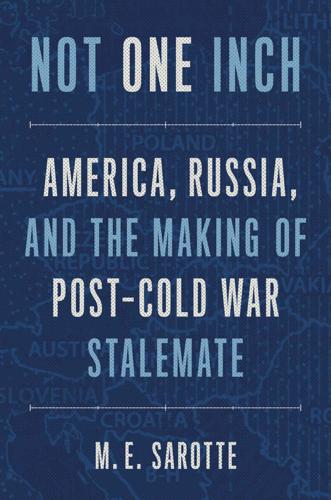
Not One Inch: America, Russia, and the Making of Post-Cold War Stalemate
by
M. E. Sarotte
Published 29 Nov 2021
After learning of these developments, Blackwill later recalled, he woke up every morning dreading that might be the day Gorbachev went public with the deal of no NATO and no nukes in exchange for unification.84 The chancellor decided to spring his own plan first. He could not prevent the Soviets from making their demands public, but he hoped to create as many facts on the ground as possible before they did so. He was already scheduled to address the West German parliament on November 28, 1989, and he decided to use the event to call for a German confederation.85 Because achieving that confederation would, he thought, take many years, it was essential to start as soon as possible.
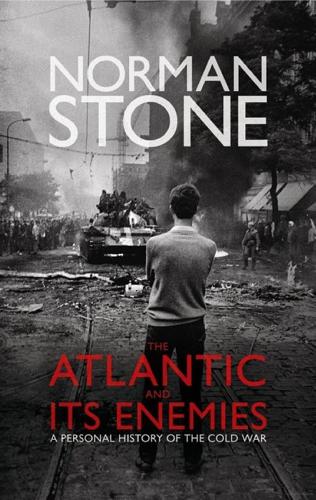
The Atlantic and Its Enemies: A History of the Cold War
by
Norman Stone
Published 15 Feb 2010
They could not get troops to the Suez area inside a month, and though they did have troops at a base in Libya, they shrank from using these, for fear of offending wider opinion. In fact the Chiefs of Staff objected to an immediate action, threatening resignation: they were just not ready. A British force did eventually leave from Malta and Cyprus - bases both too far distant, given that speed was so essential: the world, confronted by the fact on the ground of an immediate occupation, might have accepted it (as Dulles later said, ‘Had they done it quickly, we’d have accepted it’ and Eisenhower shook his head: ‘I’ve just never seen Great Powers make such a complete mess’). Four days’ delay occurred, while British and American diplomats had a public wrangle.

Paris 1919: Six Months That Changed the World
by
Margaret Macmillan; Richard Holbrooke; Casey Hampton
Published 1 Jan 2001
The time had come to take away those props. On September 3 the United States recognized the Czechoslovak National Council as a de facto belligerent government. Like the earlier British recognition, the statement did not specify the territory the new country would occupy.13 From Paris, Beneš decided to create facts on the ground. “A fait accompli,” he wrote to his colleagues, “carried through without noise or struggle and the domination of the situation are now decisive.” On October 28, in Prague, Czech politicians gently but firmly took power from the demoralized Austrian administration. Beneš urged the Allies to evacuate the German and Hungarian forces from the Czech lands and Slovakia and to bring in Allied forces.

How to Survive a Plague: The Inside Story of How Citizens and Science Tamed AIDS
by
David France
Published 29 Nov 2016
The Riders headed first for Montgomery, Alabama, chosen for its symbolism, where they organized a roundtable dialogue with local activists and a touching display of about fifty panels from the quilt. Like their role models from a generation earlier, these Freedom Riders were keenly aware of the huge gulf between their goals and the facts on the ground. The political leaders of the South played to their reputation. “We’ll guarantee them their rights of free speech, but we won’t guarantee they’ll be loved,” the mayor, Emory Folmar, warned in a front-page Montgomery Advertiser story. “I have zero sympathy for them and zero sympathy for the cause of the Gay and Lesbian Freedom Ride.

Jerusalem: The Biography
by
Simon Sebag-Montefiore
Published 27 Jan 2011
Teddy Kollek, the mayor of west Jerusalem who was re-elected to run the united city for twenty-eight years, worked hard to reassure the Arabs, becoming the face of the liberal Israeli instinct to unify the city under Jewish rule but also to respect Arab Jerusalem.* As under the Mandate, the prosperous Jerusalem attracted Arabs from the West Bank - their population doubled in ten years. Now the conquest encouraged Israelis of all parties, but especially nationalists and redemptionist Zionists, to secure the conquest by creating 'facts on the ground'; the building of new Jewish suburbs around Arab east Jerusalem began immediately. At first, Arab opposition was muted; many Palestinians worked in Israel or with Israelis, and, as a young boy visiting Jerusalem, I remember days spent with Palestinian and Israeli friends in their houses in Jerusalem and the West Bank, never realizing that this period of goodwill and mixing would very soon become the exception to the rule.

The Road Not Taken: Edward Lansdale and the American Tragedy in Vietnam
by
Max Boot
Published 9 Jan 2018
EDWARD LANSDALE’S record during World War II suggests that he could have become a successful case officer for what is today known as the CIA’s Directorate of Operations, the unit charged with recruiting and running spies. But that is not the direction in which his postwar career was to take him. He was to become a covert warrior, not an intelligence gatherer. His focus would be on changing the facts on the ground rather than merely ferreting them out. That transformation began in the late summer of 1945 amid events so consequential that their ripples continue to buffet the world to this day. On August 6, a B-29 bomber dropped an atomic bomb over Hiroshima and, in a blinding flash and mushroom cloud, killed more than 130,000 people.
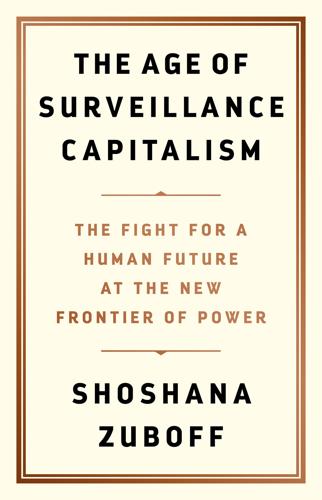
The Age of Surveillance Capitalism
by
Shoshana Zuboff
Published 15 Jan 2019
It did not take long before companies from established sectors with roots far from Silicon Valley demonstrated their determination to compete for surveillance revenues. Among the first in this second wave were the telecom and cable companies that provide broadband service to millions of individuals and households. Although there is some debate about whether these companies can effectively compete with the established internet giants, the facts on the ground suggest that the ISPs are nonetheless determined to try. “Armed with their expansive view over the entire web, internet providers may even be in a position to out-Facebook Facebook, or out-Google Google,” observed the Washington Post.121 The largest of these corporations—Verizon, AT&T, and Comcast—made strategic acquisitions that signaled a shift away from their long-standing models of fees for service in favor of monetizing behavioral surplus.

Lawrence in Arabia: War, Deceit, Imperial Folly and the Making of the Modern Middle East
by
Scott Anderson
Published 5 Aug 2013
He was able to stay ahead of it all by a talent for deceit, but since he was in a position of power, pulling the levers from Jeddah to London and all points in between, at the end of the day there would probably be no final appeal to British ideals of honor or justice, all would be sacrificed to convenience. The only recourse for the Arabs, then, was to try to change the facts on the ground, to strike a blow that might upend the plans of the dealmakers. It was with such thoughts that, two days later, Lawrence set out on the long and dangerous trek toward Aqaba. For what would soon become one of the most audacious and celebrated military exploits of World War I, his accompanying “army” consisted of fewer than forty-five Arab warriors.
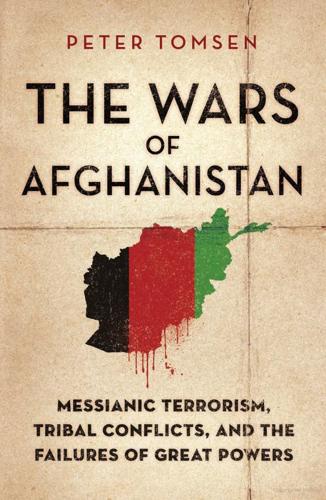
The Wars of Afghanistan
by
Peter Tomsen
Published 30 May 2011
We just don’t know.”47 The Bush administration’s ignorance of the situation at Kunduz and the CIA’s misreading of Musharraf’s motives were all on display during the Kunduz air evacuation. Rumsfeld’s subsequent claim to the media that “neither Pakistan nor any other country flew any planes into Afghanistan to evacuate anybody”48 may have been a cover-up for what he believed at the time was a helicopter evacuation. It may also have been a deliberate misrepresentation of the facts on the ground. Whatever the answer, the American support for Musharraf’s request enabled the first Great Escape. It multiplied the dangers that the ISI, the Taliban, and al-Qaeda would pose to the United States in the coming years. American military and intelligence officers outside of Kunduz told reporters that it had been agreed that the nighttime airlifts would be limited, but they slipped out of control.

Fateful Triangle: The United States, Israel, and the Palestinians (Updated Edition) (South End Press Classics Series)
by
Noam Chomsky
Published 1 Apr 1999
The U.S. has carried out a very impressive power play The events are a remarkable testimony to the rule of force in international affairs and the power of doctrinal management in a sociocultural setting in which successful marketing is the highest value and the intellectual culture is obedient and unquestioning. Classics in Politics: The Fateful Triangle Noam Chomsky Washington’s “Peace Process” 922 The victory is not only apparent in the terms of Oslo I and II and the facts on the ground, but also in the demolition of unacceptable history, the easy acceptance of the most transparent falsehoods, and the state of international opinion, now so submissive on this issue that commentators and analysts have literally forgotten the positions they and their governments advocated only a few years ago, and can even see that “Israel agrees to quit West Bank” when they know perfectly well that nothing of the sort is true.

A Classless Society: Britain in the 1990s
by
Alwyn W. Turner
Published 4 Sep 2013
MacBean is counterbalanced by a dope-smoking, BMW-driving, hippy guru named Zoot, with whom we are expected to have more sympathy, until the denouement reveals that MacBean’s speaking-in-tongues, fire-and-brimstone act is just a cover to conceal the fact that he and Zoot are deeply in love with each other and having a passionate affair. And life in the picturesque village of Lochdubh continues on its liberal, inclusive way. That, however, may have distorted the facts on the ground a little. When the repeal of Section 28 of the Local Government Act was up for debate in the Westminster Parliament, a prominent SNP-supporting businessman, Brian Souter, founder of the Stagecoach transport company, ran a privately funded referendum in Scotland in which over a million Scots registered their wish to keep the legislation.
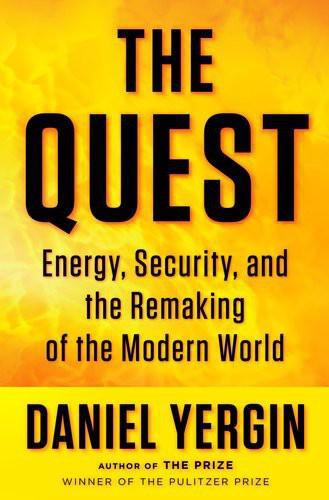
The Quest: Energy, Security, and the Remaking of the Modern World
by
Daniel Yergin
Published 14 May 2011
These decision makers were convinced that “a pluralistic and democratic Iraq” would have a transformative effect in the Middle East, and in something akin to the fall of communism, set off a process of “reform” and “moderation” throughout the region.6 Contrary intelligence and analyses that did not fit this vision were pushed aside. Moreover, after thirty-five years of Baathist dictatorship, some could argue that, in any event, not much was really known about such “facts on the ground” as religious cleavages, sectarian rivalries, the importance of tribal loyalties, and the role of Iran. Those who did know something about these details, or who questioned the basic policy convictions, or who warned that these assumptions were too optimistic, were progressively squeezed out of the decisionmaking process.

Rise and Kill First: The Secret History of Israel's Targeted Assassinations
by
Ronen Bergman
Published 30 Jan 2018
Two terrorists who hijack a bus and kill its passengers died,” he would protest later. “For this you bring down a whole world? Hypocrisy! For years we were cleaning out Israel’s sewage, and everyone knew more or less how the sewage was cleaned.” Ginossar said, “I neither had nor have any moral problem with the slaying of the terrorists.” His problem was “with the facts on the ground. That so many actors outside of the Shin Bet were there.” His solution: “The supreme rule after a failed op is the erasure of the fingerprints of the State of Israel. Not telling the truth is an integral part of removing the problem.” During the day, the commission sat in a Defense Ministry meeting room and heard witnesses—soldiers, Shin Bet operatives, civilians, hostages, and the photographer Alex Levac.

The Rough Guide to Morocco
by
Rough Guides
In 2010, Saharawi residents set up a protest camp at Gdim Izik near Laayoune, at first to protest against discrimination, but with calls for independence soon added; Moroccan police dispersed the camp by force, killing a number of people and sparking riots across the territory. Protests continued into 2011, and in Dakhla, Moroccan settlers and Saharawis came to blows. There were similar skirmishes with police in 2014. Meanwhile, Morocco has started building little villages along the coast to establish “facts on the ground”, and, as an important strategic ally of the West, is unlikely to face much international pressure on the issue. The truth is that prospects for independence are bleak, and limited autonomy is probably the best the Saharawis can hope for. INFORMATION AND ACTIVITIES Tourist information Délégation de Tourisme, Immeuble al Baraka, Bd de Walae, 700m north of Av Hassan II (Mon–Fri 8.30am–4.30pm; 0528 898388).

The Rough Guide to Morocco (Travel Guide eBook)
by
Rough Guides
Published 23 Mar 2019
In 2010, Saharawi residents set up a protest camp at Gdim Izik near Laayoune, at first to protest against discrimination, but with calls for independence soon added; Moroccan police dispersed the camp by force, killing a number of people and sparking riots across the territory. Protests continued into 2011, and in Dakhla, Moroccan settlers and Saharawis came to blows. There were similar skirmishes with police in 2014. Meanwhile, Morocco has started building little villages along the coast to establish “facts on the ground”, and, as an important strategic ally of the West, is unlikely to face much international pressure on the issue. The truth is that prospects for independence are bleak, and limited autonomy is probably the best the Saharawis can hope for. Information and activities Banks There are stacks of banks with ATMs, including the BMCE off Av Hassan II, and the Banque Populaire, a block south of the post office.

Golden Holocaust: Origins of the Cigarette Catastrophe and the Case for Abolition
by
Robert N. Proctor
Published 28 Feb 2012
And that the TIRC’s own Paul Kotin had endorsed the 1957 assessment of the NIH/ACS Study Group on Smoking and Health that “the sum total of scientific evidence” had established “beyond reasonable doubt” that cigarettes were a causal factor in the ongoing epidemic of cancer of the lung.13 FACTS ON THE GROUND Animal experiments, epidemiology, clinical pathology, and chemical analytics were all crucial for the cancer consensus of the 1950s. And researchers often appreciated these mutually reinforcing lines of evidence: Wynder cited Roffo and Doll and Hill; Doll and Hill cited Wynder and Graham; and so forth.

Post Wall: Rebuilding the World After 1989
by
Kristina Spohr
Published 23 Sep 2019
The repressive state apparatus that Mielke had pulled together was not confronted with fearsome ‘enemies of the state’ or anarchic ‘rowdies’ but by well-disciplined ordinary citizens bearing candles and speaking the language of non-violence. What they wanted was recognition by the governing party of their legitimate quest for basic freedoms and political reform: their slogan was ‘Wir sind das Volk’ (‘We are the people’).[30] New facts on the ground had been created. And a new demonstration culture had emerged – spilling out from the church vigils into the squares and the streets. The regime’s loss of nerve that night dispelled the omnipresent climate of fear. This would change the face of the GDR. The civil rights activists and the mass of protestors were beginning to merge.
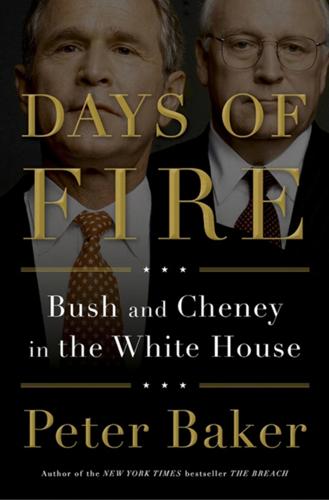
Days of Fire: Bush and Cheney in the White House
by
Peter Baker
Published 21 Oct 2013
But behind the scenes, Wehner was among those in the White House most vocal about the mistakes in Iraq, taking it so personally that he was physically sick and having trouble sleeping at night. To colleagues who blamed media negativity, Wehner argued that “Iraq was not a communications problem, it was a facts-on-the-ground problem.” Finally, that August, he took it upon himself to send a memo to Joshua Bolten arguing that Bush should get rid of Rumsfeld. Bolten invited him for a forty-five-minute conversation about the war. Even if the strategy was changed, Wehner told him, no one would perceive it as change as long as Rumsfeld was there.

The Better Angels of Our Nature: Why Violence Has Declined
by
Steven Pinker
Published 24 Sep 2012
Destructive wars of attrition, Johnson points out, needn’t require that both sides be certain or even highly confident of prevailing. All it takes is that the subjective probabilities of the adversaries sum to a value greater than one. In modern conflicts, he notes, where the fog of war is particularly thick and the leadership removed from the facts on the ground, overconfidence can survive longer than it would have in the small-scale battles in which our positive illusions evolved. Another modern danger is that the leadership of nations is likely to go to men who are at the right tail of the distribution of confidence, well into the region of overconfidence.

Reaganland: America's Right Turn 1976-1980
by
Rick Perlstein
Published 17 Aug 2020
Impolitically, Carter also chose the week of the broadcast to plant a cedar from Lebanon on the White House lawn to recognize that country’s suffering at the hands of Israel’s invasion. The American Israel Public Affairs Committee, which had never lost a vote in Congress since its inception in 1953, took note of these facts on the ground, and prepared to turn up the heat. Gallup reported the president’s approval rating at 39 percent. Only 26 percent of Democrats wanted Jimmy Carter as their 1980 nominee; 36 percent of them wanted Senator Edward “Ted” Kennedy. “Never before in the 43-year history of the Gallup Poll has an incumbent president eligible for reelection stood lower in his party’s esteem,” the New York Times said